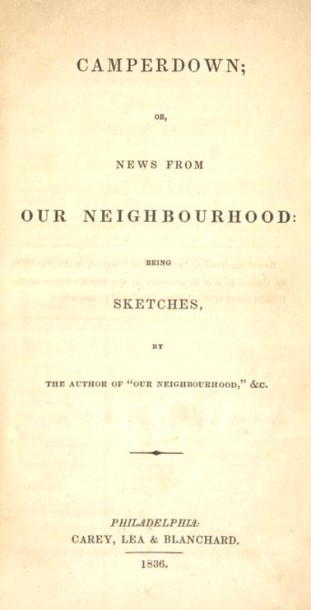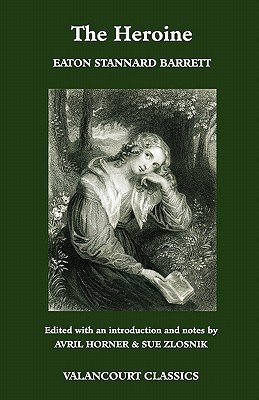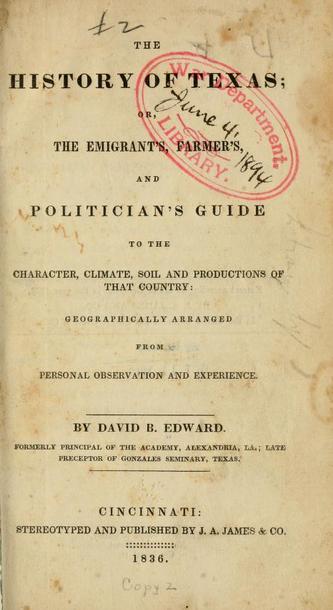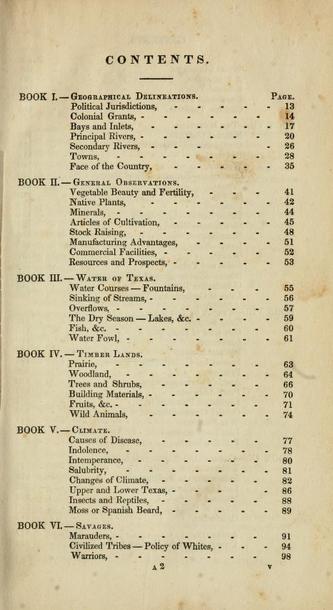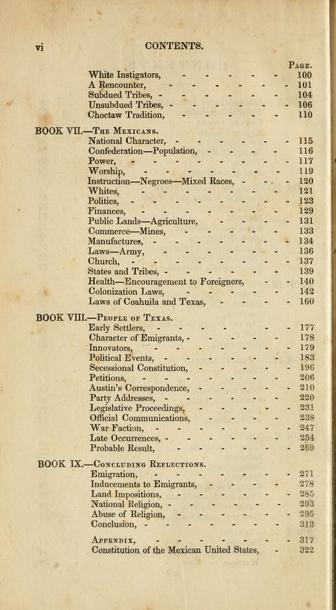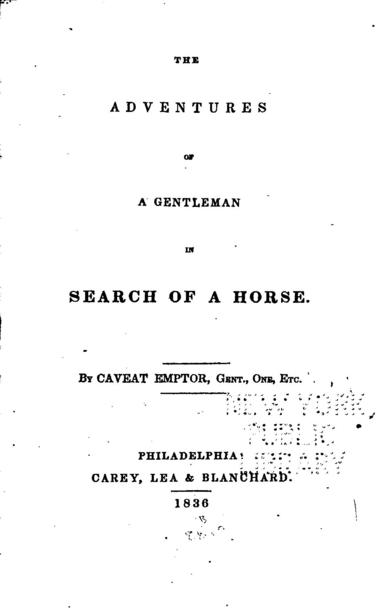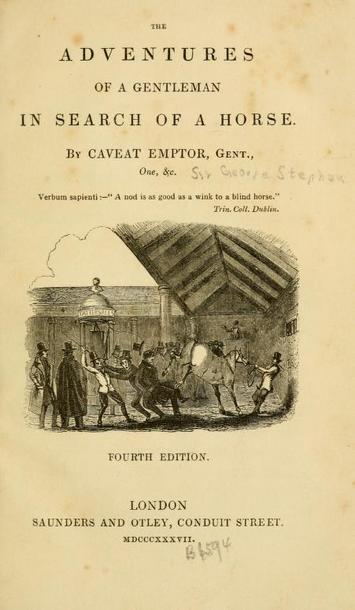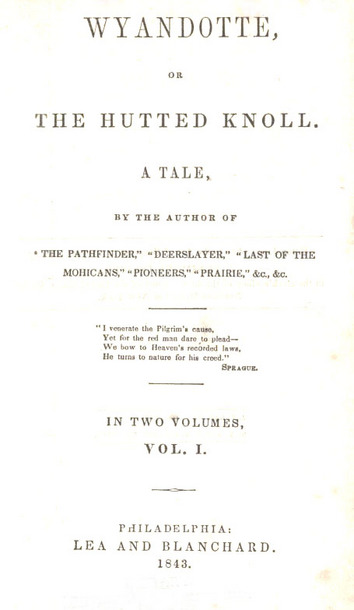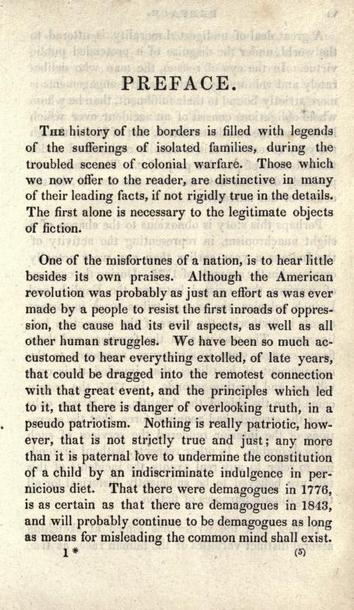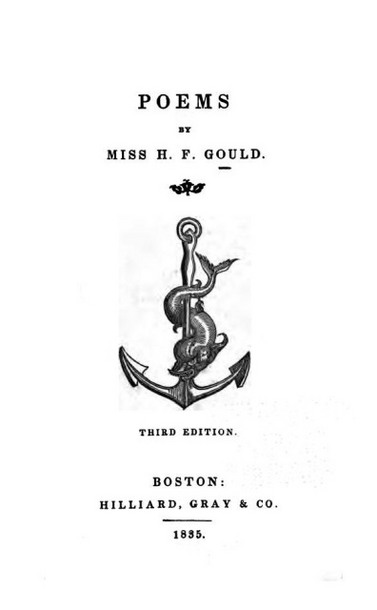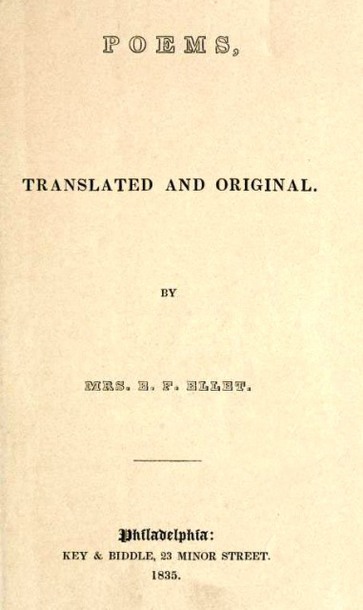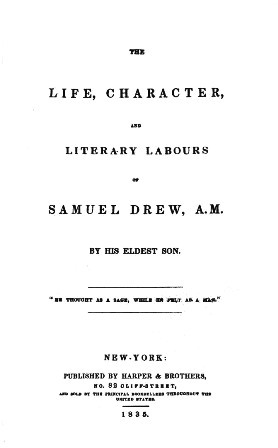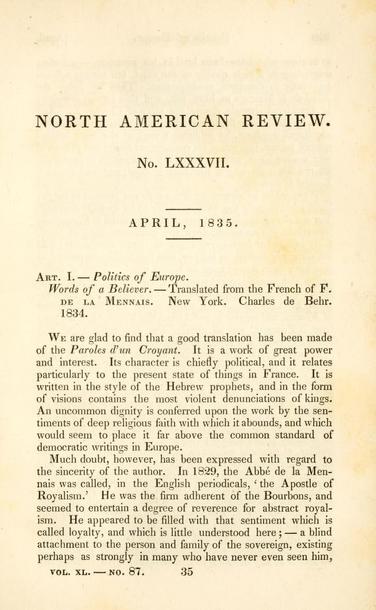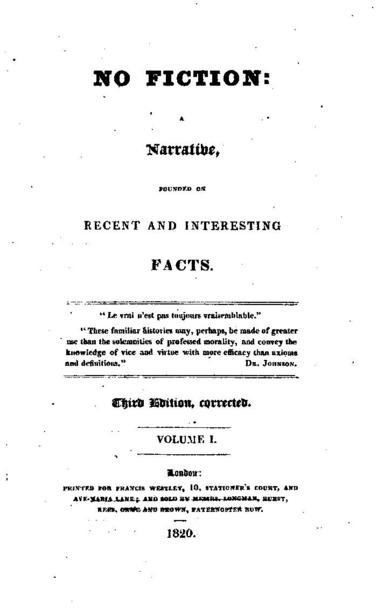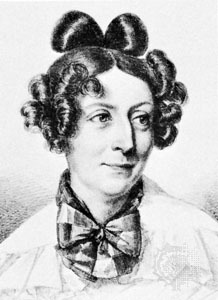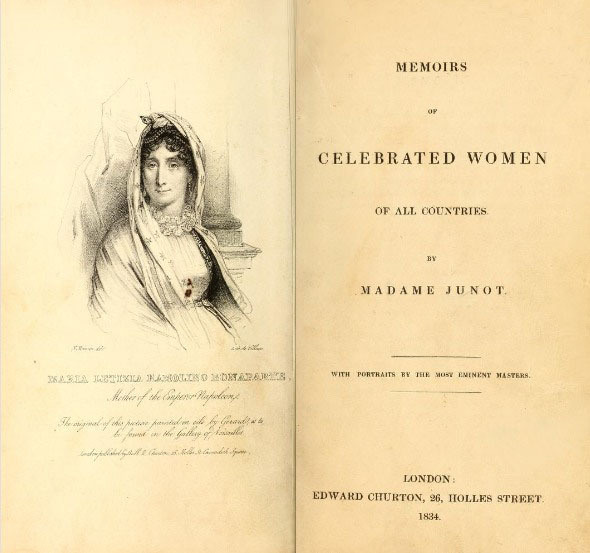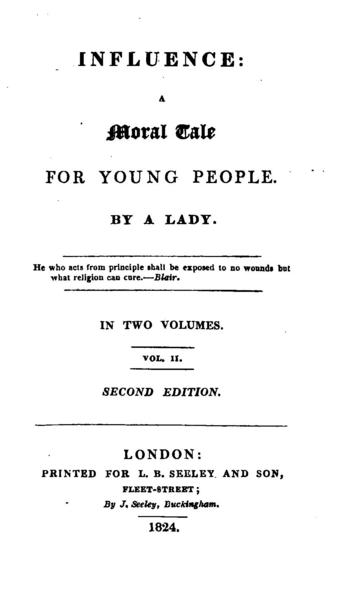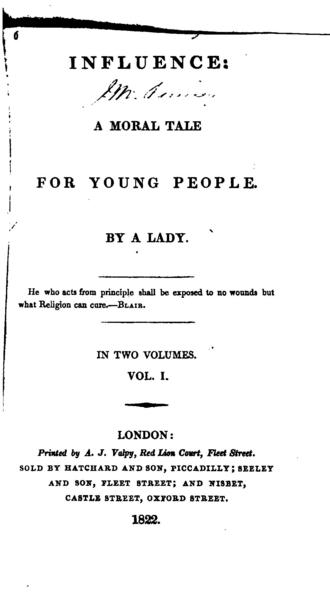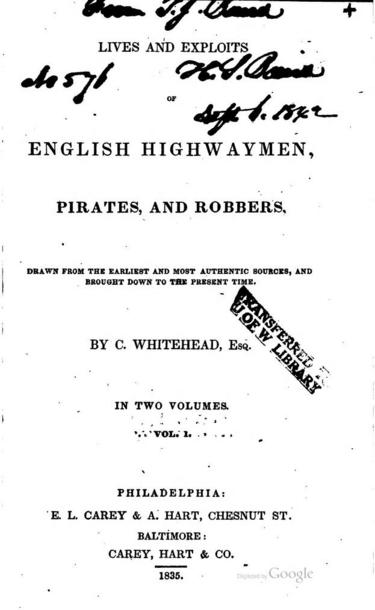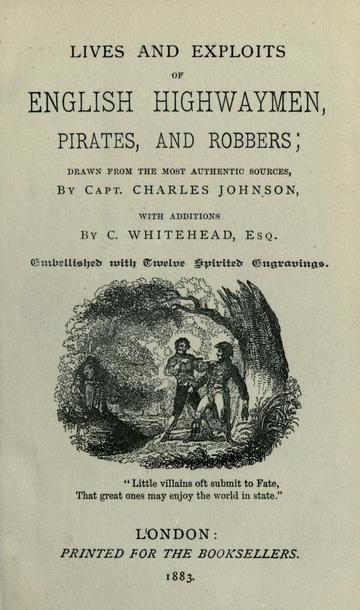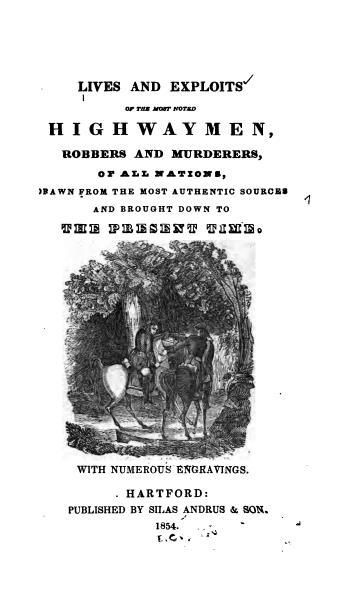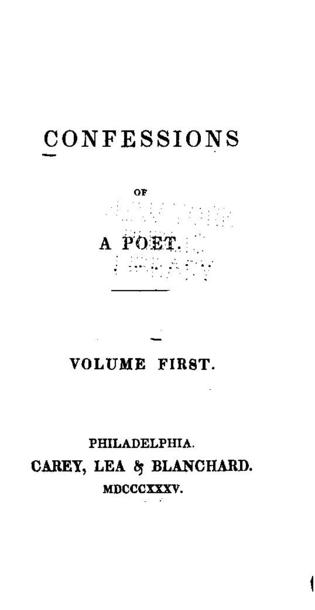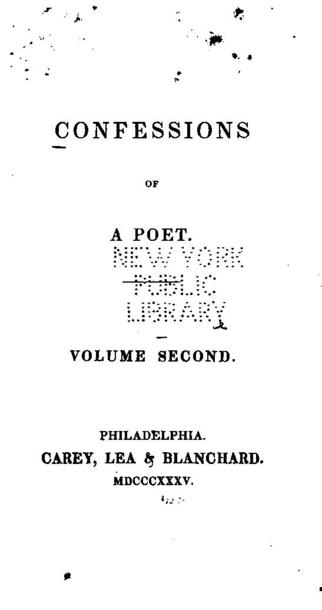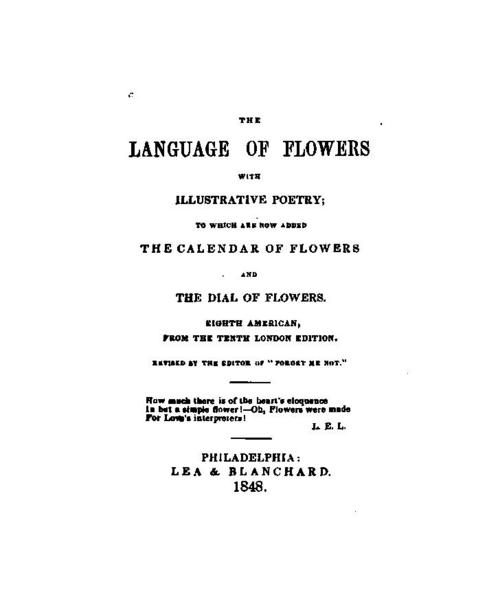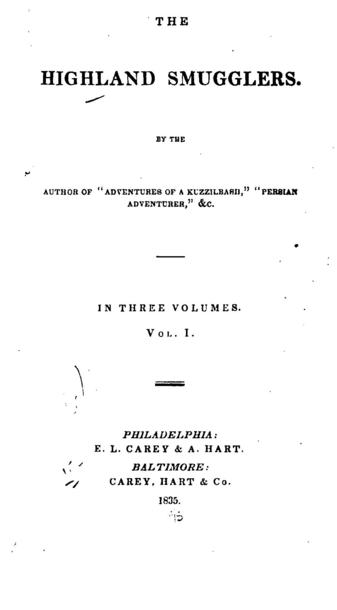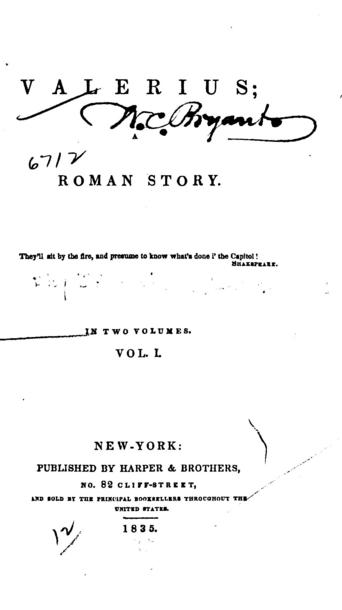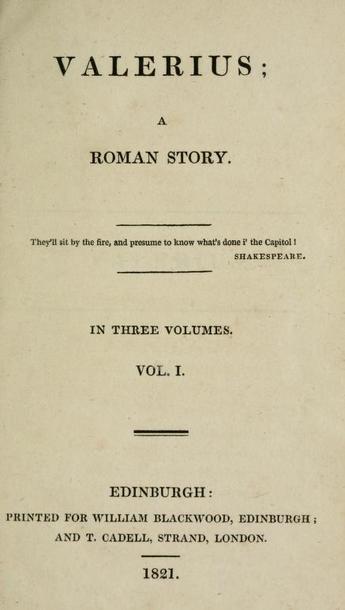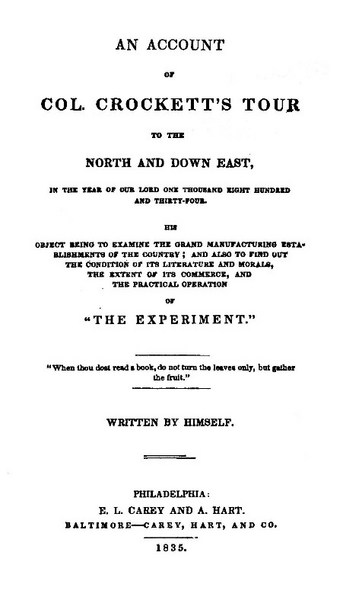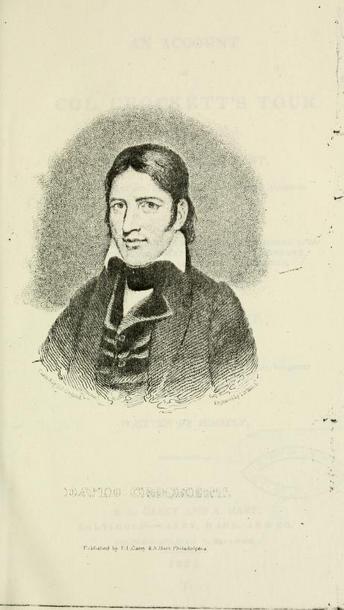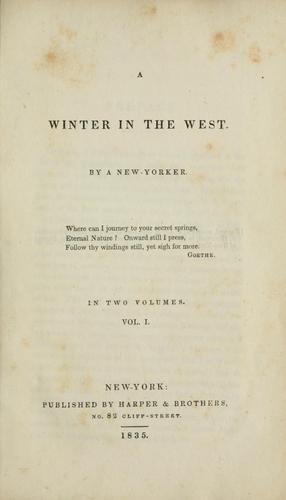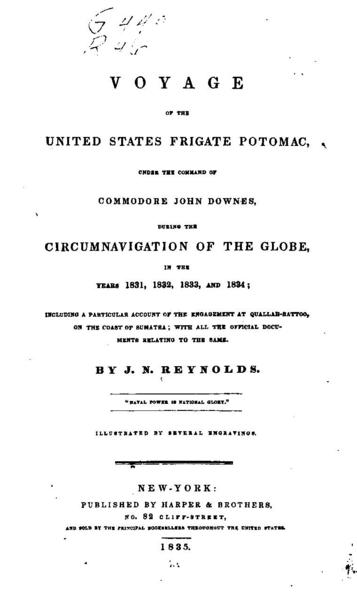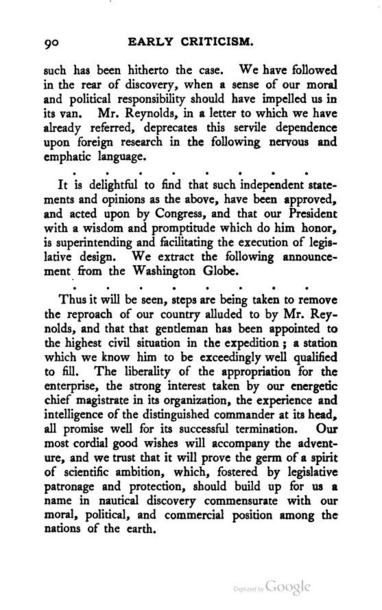ポーが書評した本 (1) メアリー・グリフィスの『キャンパーダウン』 (1836) Books Reviewed by Poe (1): "Camperdown; or, News from Our Neighbourhood" [ポーの書評 Poe's Book Reviews]
ウツウツとする記事ばかり書いているので、心機一転、新規蒔き直しをはかるべく、新たなカテゴリーをうちたてます。エドガー・アラン・ポー (1809-49) が書評を書いた本について。趣旨と意義などは (1) 批評家としてのポーの仕事の広がりを見、 (2) アメリカ19世紀前半の文壇・文学状況をポーを通して展望する、が、そのために、(3) ポーが書評を書いた本の E-text をリンクして容易に読めるようにする(おたがいに読める能力と時間があればの話だが)。 (4) 順序は思いつくまま、気の向くまま。 (5)文章はなるたけ短く(なんか書きたくなったらなるたけ別記事で)。・・・・・・下の記事、書きかけたのが消えてしまい(とほほ)、書き直したら、なんか長くなっていました(わはは)。
☆ ☆ ☆ ☆ ☆ ☆
Camperdown; or, News from Our Neighbourhood―Being a Series of Sketches, by the author of "Our Neighborhood," &c. Philadelphia: Carey, Lea & Blanchard.
〔メアリー・グリフィス著〕『キャンパーダウン――我らが近隣からの便り』
6篇からなる短篇小説集―― (1) "Three Hundred Years Hence"―(2) "The Surprise"―(3) "The Seven Shanties"―(4) "The Little Couple"―(5) "The Baker's Dozen"―(6) "The Thread and Needle Store"
E-text at Internet Archive [University of California Libraries; MSN] <http://www.archive.org/stream/camperdownornews00grifrich#page/n9/mode/2up>
ポーの書評は、『サザン・リテラリー・メッセンジャー The Southern Literary Messenger』1836年7月号所収(短評)。
19世紀は、男でも女でも匿名にして「XXXX〔前作や前前作名〕の著者による By the Author of XXXX」という表記だけで、著者名が本には記述されない場合がけっこうあったのだけれど、そういうのって、ほんとうに匿名だったのか、実は口コミ的に知られている作家も多くいたのか、よくわかりません。この短篇集も著者名は本本体には出てきません。タイトルページ――
本は女性(Mrs. William Minot という Lady)に献じられていて、献辞のなかには「ボストンでは女性が高い敬意と評価を受けている」とかなんとか、ボストン嫌いのポーの頭にきそうなことも書かれているのだけれど、そうなると作者も女性と想像されるのだろうか。
ともあれ、ポーの書評の文章のなかにも著者名は出てこないです。しかし、作者はメアリー・グリフィス Mary Griffith, 1772-1846 という女性作家・農学者(園芸家)・科学者でした。このひとについて語ると長くなるので、ここでは文学関係でのみ補足的に書いておきます。
今日(こんにち)、メアリー・グリフィスは、女性最初のユートピアSF小説を書いたひととして、一部で、知られています。その評価はもっぱら、この短篇集の冒頭の作品「此後三百年 Three Hundred Years Hence」に拠っている(らしい)。英語のWikipedia 参照―― "Mary Griffith" <http://en.wikipedia.org/wiki/Mary_Griffith>。
ポーは、書評の大半をこの短篇小説についての解説に費やしています。ただし、冒頭で「Mercier の模倣」と書くように、常套的なものと見ていて、必ずしも作品自体を評価しているわけではない(かもしれない)。――Three Hundred Years Since is an imitation of Mercier's "Lan [sic] deux milles quatre cents quarante," the unaccredited parent of a great many similar things.
Mercier はフランスの劇作家、ジャーナリストのルイ・セバスチャン・メルシエ Louis Sébastien Mercier, 1740-1814 です。メルシエはディドロにならって戯曲を書き、演劇論 Essai sur l'art dramatique (1873) でディドロの演劇理論を発展させた、ロマン主義の先駆者ですが、1870年に発表した未来小説が L'An 2440 でした。長いタイトルとその英訳題は、ウィキペディアによれば、 L'An 2440, rêve s'il en fut jamais (literally, "The Year 2440: A Dream If Ever There Was One"; translated into English as Memoirs of the Year Two Thousand Five Hundred) 。
眠って目が覚めたら過去だった、とか未来だったとか、眠り(オチ的には夢)と時間旅行(タイム・トラベル)とユートピアないし逆ユートピア(ディストピア)思想が三位一体となった枠組みは、半世紀後のマーク・トウェインの『アーサー王宮廷のコネティカット・ヤンキー』とかエドワード・ベラミーの『顧みれば』などで復活(?)するものですけど、19世紀前半に既に「常套」的な感覚があったところが興味深い(むろんポー自身、未来からの手紙(「メロンタ・タウタ」)とか過去からの眠り(「ミイラとの論争」)とか、関心が重なるところです)。
ポーがあらすじを紹介しているように、フィラデルフィアからニューヨークへむかう旅の前夜、眠りに落ちた主人公が目覚めると未来にいる。東部の未来のありさまが描かれることになります。
ウィキペディアの記事が、本文ではないけれど、参考url としてリンクしている、"Mary Griffith's Pioneering Vision: Three Hundred Years Since" <http://www.highbeam.com/doc/1G1-66454600.html> という論文(のさわり)は、文学作品としての質以上に、男であるとか女であるとかにやたらこだわっているのだけれど、女性性がユートピアのヴィジョンに有意義な刻印をしるしているのかどうかは、読んでから考えたいと思います。
☆ ☆ ☆ ☆
ところで、このシリーズは、ポー関係の事典類(具体的には、Frederick S. Frank and Anthony Magistrale, The Poe Encyclopedia (Westport, CT: Greenwood, 1997) とか、Dawn B. Sova, Edgar Allan Poe A to Z: The Essential Reference to His Life and Work (New York: Facts on File, 2001) など)をタネ本として書いてやれ、と思っておったのですが、『ポー百科事典』のこの項目の記述は、つぎのようです。――
Review of Mary Griffith's collection of six tales appearing in The Southern Literary Messenger for July 1836. Poe found the stories "The Little Couple" and "The Thread and Needle Store" full of "originality of thought and manner" and several others "sufficiently outré." (アメリカの女性作家メアリー・グリフィスの、6篇の物語からなる短篇集の書評。『サザン・リテラリー・メッセンジャー』誌1836年7月号掲載。ポーは短篇「小さなカップル The Little Couple」と「裁縫屋 The Thread and Needle Store」の2篇について「思想と手法の独創性」があると言い、他の数篇が「十分に奇抜outré」と評した。)
最後に原文を全文載せておきますけれど、上の記述は、明らかな読み間違いで、ポーが「思想と手法の独創性」があると言うのは短篇集全体 ("It") ですし、ポーが奇抜と言っているのは、冒頭の短篇小説「此後三百年」の後半部における、フィラデルフィアからニューヨークにわたる300年の差異の記述についてのことです。
ちょっと呆れました。
In "Our Neighbo[u]rhood" published a few years ago, the author promised to give a second series of the work, including brief sketches of some of its chief characters. The present volume is the result of the promise, and will be followed up by others―in continuation. We have read all the tales in Camperdown with interest, and we think the book cannot well fail being popular. It evinces originality of thought and manner―with much novelty of matter. The tales are six in number; Three Hundred Years Hence―The Surpise―The Seven Shanties―The Little Couple―The Baker's Dozen―and The Thread and Needle Store[.] Three Hundred Years Hence is an imitation of Mercier's "Lan deux milles quatre cents quarante," the unaccredited parent of a great many similar things. In the present instance, a citizen of Pennsylvania, on the even starting for New York, falls asleep while awaiting the steam-boat. He dreams that upon his awakening, Time and the world have made an advance of three hundred years―that he is informed of this fact by two persons who afterwards prove to be his immediate descendents in the eighth generation. They tell him that, while taking his nap, he was buried, together with the house in which he sat, beneath an avalanche of snow and earth precipitated from a neighboring hill by the discharge of the signal-gun―that the tradition of the event had been preserved, although the spot of his disaster was at that time overgrown with immense forest trees―and that his discovery was brought about by the neccesity for opening road through the hill. He is astonished, as well he may be, but, taking courage, travels through the country between Philadelphia and New York, and comments upon its alterations. These latter are, for the most part, well conceived―some are sufficiently outré. Returning from his journey he stops at the scene of his original disaster and is seated, once more, in the disentombed house, while awaiting a companion. In the meantime he is awakened―finds he has been dreaming―that the boat has left him―but also (upon receipt of a letter) that there is no longer any necessity for his journey. The [The] Little Couple, and The Thread and Needle Store are skilfully told, and have much spirit and freshness.
///////////////////////////////////////
[Mary Griffith.] Camperdown; or, News from Our Neighbourhood―Being a Series of Sketches, by the author of "Our Neighborhood," &c. Philadelphia: Carey, Lea & Blanchard. E-text at Internet Archive [University of California Libraries; MSN] <http://www.archive.org/stream/camperdownornews00grifrich#page/n9/mode/2up>
"Mary Griffith," Wikipedia <http://en.wikipedia.org/wiki/Mary_Griffith>
ポーが書評した本 (2) S・アンナ・ルイスの『海の子、その他の詩』 (1848) [ポーの書評 Poe's Book Reviews]
Edgar Allan Poe, Review of The Child of the Sea and other Poems, from Southern Literary Messenger, September 1848, pp. 569-571 [E-text @E. A. Poe Society of Baltimore <http://www.eapoe.org/works/criticsm/slm48l01.htm>
"MRS. LEWIS' POEMS.*"
* The Child of the Sea and other Poems. By S. Anna Lewis, author of "Records of the Heart," etc., etc.
ルイス夫人の詩〔S・アンナ・ルイス著『海の子、その他の詩』〕
というのが『サザン・リテラリー・メッセンジャー』誌の1848年7月号に掲載されたポーの書評のタイトル。だけど、ほんとうは "The"はない。
Child of the Sea and Other Poems. By Mrs. S. Anna Lewis, author of "Records of the Heart," etc., etc. New York: George P. Putnam, 1848.
16篇からなる詩集――(1) "Child of the Sea"―(2) "Isabelle; or The Broken Heart: A Tale of Hispaniola"―[Miscellaneous Poems:] (3) "Una"―(4) "The Unmasked"―(5) "Death of Osceola"―(6) "The Beleaguerred Heart"―(7) "My Study"―(8) "Heart Joys"―(9) "The Poet"―(10) "Poesy"―(11) "To Corinne"―(12) "Lament of la Vega"―(13) "The Dead"―(14) "The Angels: An Impromptu"―(15) "The Bard"―(16) "Wreck of the Cutter"
180ページほどの本の、最初の2作が長詩(物語詩)で、それぞれ90ページ、45ページくらい占めています。
E-text at Internet Archive [Library of Congress; Sloan Foundation] <http://www.archive.org/details/childofsea00lewi>
アメリカの女性詩人セーラ・アンナ・ルイス Sarah Anna Lewis, 1824-80 (このひとはファーストネームに自由な発想をもっていて、Estelle Anna と名乗ったり、Stella と名乗ったり、 夫と離別後に渡欧してヨーロッパで客死したときには Estelle Delmonte Lewis だった)は、ポーと同時期にフォーダムに在住していたアマチュア詩人で、1847年1月末にポーの妻のヴァージニアが亡くなったあと、(とくにポー不在中に)義母のクレム夫人の世話をし、経済的な援助もしてくれたのでした。
.jpg)
image via Internet Archive (E-text from Library of Congress; Sloan Foundation <http://www.archive.org/details/childofsea00lewi> エス S をけしてエステルEstelle とえんぴつがきされている)
ニューヨーク州Troy の学生時代に処女詩集 Records of the Heart を刊行し、ヴァージルをギリシア語から英語に韻文訳するみたいなこともやっている、才女でした。1841年弁護士のSydney Lewis と結婚してブルックリンに転居、文学サロンみたいなものを開いて、ニューヨーク市の文学シーンでちょっと脚光を浴びたみたいです(金持ちだったんでしょうね)。
新しい詩集が出たときに、ポーに好意的な書評を書いてくれるように、100ドルが渡った(彼女からというよりたぶん旦那のシドニー)とされていて、お手盛り的・ヨイショ的な批評となっていると言われています(「この詩集を20回読んだ」とか書かれていて、ヤレヤレと思います)。ポーは旦那の申し出を断った(死んでも書けないとかなんとか言って)ともされていて、よくわからんですが、当該のことだけでなくて、かねて経済的な援助を受け、彼女の詩の添削みたいなことも行なっていたとも言われています。
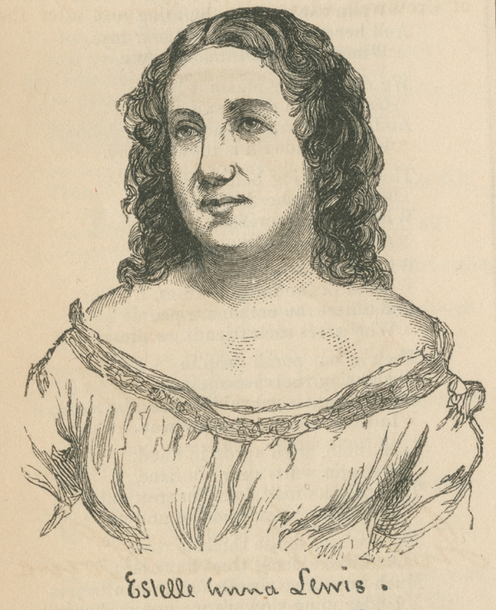
Evert and George Duyckinck, ed., Cyclopaedia; image via "Estelle Anna Lewis (1824-1880)," Portraits of American Women Writers <http://www.librarycompany.org/women/portraits/lewis.htm>
ポーがルイスの詩を褒めたのは、妻ヴァージニアの死後にルイスから与えられた経済的・心情的援助に報いるポーなりのやりかただったと考えられているわけです。「評論家の意見は一致して、彼女をこの国の女性詩人の最高のランクではないにしても高いランクに位置づけることに合意するだろう」というのがポーの評言です。
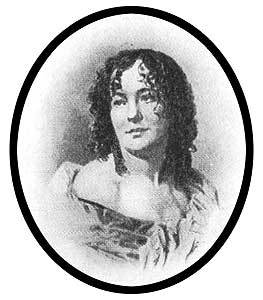
image via Baltimore Poe Society <http://www.eapoe.org/people/lewissa.htm>
ルイスは凡庸な詩人と考えられていますけれど、ヨーロッパで発表した詩劇 Sappho of Lesbos (1868年ロンドン初演)はたいへんなヒットとなるわけで、そんなに凡庸な人ではないのかもしれない。読んで考えてみたいと思います。パラパラ見るところ、錬金術とか超自然とか、ポーとつながるところがあるような気もしなくもないです。
とくにヴァージニアの死後のポー宅にルイス夫人がよく顔を出していて、ポーは顔を合わせたくないみたいなときもあったことがクレム夫人(義母)の回想に記録されています。ポー最晩年の詩「アナベル・リー」のモデルはわたしよ♪、と複数の女性が手を挙げたわけですが、アンナ・ルイスもそのひとりでした。
////////////////////////////////////
Lewis, Mrs. S. Anna Lewis. Child of the Sea and Other Poems. New York: George P. Putnam, 1848. E-text at Internet Archive [Library of Congress; Sloan Foundation] <http://www.archive.org/details/childofsea00lewi>
"Estelle Anna Lewis (1824-1880)," Portraits of American Women Writers <http://www.librarycompany.org/women/portraits/lewis.htm>
"Mrs. Sarah Anna Lewis," Edgar Allan Poe Society of Baltimore <http://www.eapoe.org/people/lewissa.htm>
Edgar Allan Poe, Review of The Child of the Sea and other Poems, from Southern Literary Messenger, September 1848, pp. 569-571 [E-text @E. A. Poe Society of Baltimore <http://www.eapoe.org/works/criticsm/slm48l01.htm>
///////////////////////////////////////
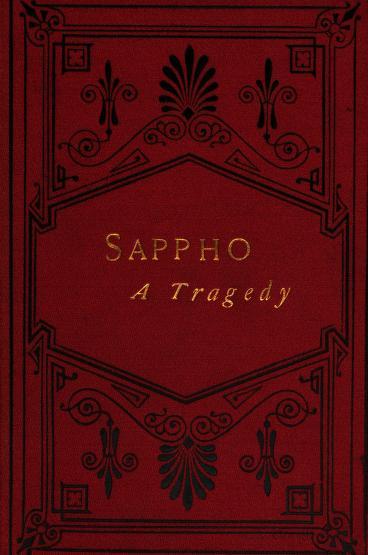
"Stella," Sappho, 2nd ed. (London, 1876) <http://www.archive.org/details/sapphoatragedyi00lewigoog>
ポーが書評した本 (3) イートン・スタナード・バレットの『ヒロイン』 ([1813;] 1814; rpt.1835?) Books Reviewed by Poe (3): _The Heroine; or, The Adventures of Cherubina_ by Eaton Stannard Barrett [ポーの書評 Poe's Book Reviews]
The Heroine: or Adventures of Cherubina. By Eaton Stannard Barrett, Esq. New Edition. Richmond: Published by P. D. Bernard.
『ヒロイン――あるいは、チェラビーナの冒険』 イートン・スタナード・バレット著. 新版. リッチモンド: P・D・バーナード刊.
E-text @Internet Archive
a) The Heroine, or Adventures of a Fair Romance Reader. By Eaton Stannard Barrett, Esq. In Three Volumes. London: Henry Colburn, 1813. Vol. 1: 298pp. E-text @Internet Archive (Library of the University of California; ) <http://www.archive.org/stream/heroinebyeatonst00barrrich#page/n19/mode/2up>.jpg)
b) The Heroine, or Adventures of Cherubina, by Eaton Stannard Barrett, Esq. Second Edition, with Considerable Additions and Alterations. In Three Volumes. London: Henry Colburn, 1814. Vol. 1: 235pp. <http://www.archive.org/stream/heroineoradventu01barre#page/234/mode/2up>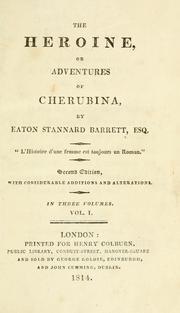
vol.2.jpg)
c) The Heroine, or Adventures of Cherubina,by Eaton Stannard Barrett, Esq. Third Edition. In Three Volumes. London: Henry Colburn, 1815. Vol. 1: 220pp. (with a 6-page notes); vol. 2: 240pp. (10p. notes); vol. 3: 252pp. (6p. notes). E-text @Internet Archive (New York Public Library; Google) <http://www.archive.org/stream/heroineoradvent02barrgoog#page/n4/mode/2up> 〔e-text は3巻を合冊。注付きの1815年版。ただし読めないページあり〕.jpg)
d) The Heroine, by Eaton Stannard Barrett. With an Introduction by Walter Raleigh. London: Henry Frowde, 1909. xv, 298pp. E-text @Internet Archive (California University Libraries; MSN) <http://www.archive.org/stream/heroinebyeatonst00barrrich#page/n3/mode/2up> 〔ウォルター・ローリー(オックスフォード大学英文科教授だったひと (1861-1922) で、エリザベス女王の寵臣とは別人)による序文を付す〕.jpg)
アイルランドの作家イートン・スタナード・バレット Eaton Stannard Barrett, 1786-1820のゴシック諷刺小説『ヒロイン』 (1814) の書評は『サザン・リテラリー・メッセンジャー』誌の1835年12月号に発表されました。
バレットについては、日本語ウィキペディアに記事はなく、英語も短い記事です。――
Eaton Stannard Barrett (1786 – March 20, 1820) was an Irish poet and author.
Career
Born in County Cork, Barrett studied law at Middle Temple, London. He is best known for his satirical poems about British political figures. The lines on the headstone of Thomas Moore’s daughter, usually ascribed to Joseph Atkinson, are actually by Barrett.[1] He died in Wales of tuberculosis in 1820. His brother, Richard Barrett, editor of The Dublin Pilot, was a fellow-prisoner of Daniel O'Connell, and died at Dalkey about 1855.[2]
アイルランド生まれの詩人・作家で、英国の政治家についての諷刺詩で知られる、ということ以外は、瑣末なことしか書かれていません。
ポーがアメリカにおける第一人者と考えられてきたゴシック小説については、『カリフォルニア時間』でむかしあれこれ書きました――「January 2-3 ゴシック小説と合理主義(その2)――擬似科学をめぐって(6) On Pseudosciences (6) [短期集中 擬似科学 Pseudoscience]」など。
諷刺ゴシックについては、ジェーン・オースティンの『ノーサンガー・アビー』(1818)が有名ですけど、もともと人工的(つまり私的現実から素材が得られるというよりも過去の文書・作品から材料は得られる)かつ(超自然については)近代的懐疑的姿勢を内包していたゴシックというジャンルを、オースティンみたいなアイロニーや機知に富んだひと、あるいは諷刺的なひとが扱えば、おのずと恐怖と笑いは錯綜します(オースティンの小説は刊行は遅れに遅れますけど、執筆は1790年ごろだったかするはずで、既に諷刺やパロディーはアン・ラドクリフの流行と並行して起こっていました)し、本(小説)についての本(小説)とか、語ることについて語るとか、いわばメタ・フィクショナルなまなざしがあらわれがちでしょう。ゴシックのパロディーがゴシックの新型になって発展するという事態は、既にポーの時代には「支流」「傍流」ゴシックとしては強い流れになっています。ポー自身がユーモアとは言えずとも笑いや機智やアイロニーを好んだひとでしたから、バレットの本に大いに反応するのは当然かもしれず、また、興味深いことです。
冒頭はトンコ法でチェラビーナに呼びかけちゃっています。必読の書であり、すべての整備された書棚に置かれてしかるべき本である。とりわけバレットのウィットに富んだ皮肉、あるいは皮肉に富んだウィットを評価して、また、文体は無比無類、追随許さずまねできない positively inimitable とほめます。
ま、作品をちゃんと読んでから考えてみます。
それにしても、予定の紙幅を超過しているけれども、ぜひ25章を読んでいただきたい、とか言って、後半の大半を長~い引用で埋めているのには、呆れます。いまだったら編集者も教師もダメ出しをするで笑。
///////////////////////////////
"Eaton Stannard Barret," Wikipedia <http://en.wikipedia.org/wiki/Eaton_Stannard_Barrett>
"Eaton Stannard Barrett," Library Ireland <http://www.libraryireland.com/biography/EatonStannardBarrett.php> 〔From A Compendium of Irish Biography, 1878〕
"Online Books by Eaton Stannard Barrett," Online Books Page <http://onlinebooks.library.upenn.edu/webbin/book/lookupname?key=Barrett%2C%20Eaton%20Stannard%2C%201786-1820>
☆ ☆ ☆ ☆ ☆
The Heroine: or Adventures of Cherubina. By Eaton Stannard Barrett, Esq. New Edition. Richmond: Published by P. D. Bernard.CHERUBINA! Who has not heard of Cherubina? Who has not heard of that most spiritual, that most ill-treated, that most accomplished of women―of that most consummate, most sublimated, most fantastic, most unappreciated, and most inappreciable of heroines? Exquisite and delicate creation of a mind overflowing with fun, frolic, farce, wit, humor, song, sentiment, and sense, what mortal is there so dead to every thing graceful and glorious as not to have devoured thy adventures? Who is there so unfortunate as not to have taken thee by the hand?―who so lost as not to have cultivated thy acquaintance?―who so stupid, as not to have enjoyed thy companionship?―who so much of a log, as not to have laughed until he has wept for very laughter in the perusal of thine incomparable, inimitable, and inestimable eccentricities? But we are becoming pathetic to no purpose, and supererogatively oratorical. Every body has read Cherubina. There is no one so superlatively un happy as not to have done this thing. But if such there be―if by any possibility such person should exist, we have only a few words to say to him. Go, silly man, and purchase forthwith “The Heroine: or Adventures of Cherubina.”
The Heroine was first published many years-ago, (we believe shortly after the appearance of Childe Harold;) but although it has run through editions innumerable, and has been universally read and admired by all possessing talent or taste, it has never, in our opinion, attracted half that notice on the part of the critical press, which is undoubtedly its due. There are few books written with more tact, spirit, näiveté, or grace, few which take hold more irresistibly upon the attention of the reader, and none more fairly entitled to rank among the classics of English literature than the Heroine of Eaton Stannard Barrett. When we say all this of a book possessing not even the remotest claim to originality, either in conception or execution, it may reasonably be supposed, that we have discovered in its matter, or manner, some rare qualities, inducing us to hazard an assertion of so bold a nature. This is actually the case. Never was any thing so charmingly written: the mere style is positively inimitable. Imagination, too, of the most etherial kind, sparkles and blazes, now sportively like the Will O’ the Wisp, now dazzlingly like the Aurora Borealis, over every page―over every sentence in the book. It is absolutely radiant with fancy, and that of a nature the most captivating, although, at the same time, the most airy, the most capricious, and the most intangible. Yet the Heroine must be considered a mere burlesque; and, being a copy from Don Quixotte, is to that immortal work of Cervantes what The School for Scandal is to The Merry Wives of Windsor. The Plot is briefly as follows.
Gregory Wilkinson, an English farmer worth 50,000 pounds, has a pretty daughter called Cherry, whose head is somewhat disordered from romance reading. Her governess is but little more rational than herself, and is one day turned out of the house for allowing certain undue liberties on the part of the butler. In revenge she commences a correspondence with Miss Cherry, in which she persuades that young lady that Wilkinson is not her real father―that she is a child of mystery, &c.―in short that she is actually and bona fide a heroine. In the meantime, Miss Cherry, in rummaging among her father’s papers, comes across an antique parchment-a lease of lives-on which the following words are alone legible.This Indenture
For and in consideration of
Doth grant, bargain, release
Possession, and to his heirs and assigns
Lands of Sylvan Lodge, in the
Trees, stones, quarries, &c.
Reasonable amends and satisfaction
This demise
Molestation of him the said Gregory Wilkinson.
The natural life of
Cherry Wilkinson only daughter of
De Willoughby eldest son of Thomas
Lady Gwyn of Gwyn Castle.
This “excruciating MS.” brings matters to a crisis―for Miss Cherry has no difficulty in filling up the blanks.“It is a written covenant,” says this interesting young lady in a letter to her Governess, “between this Gregory Wilkinson, and the miscreant (whom my being an heiress had prevented from enjoying the title and estate that would devolve to him at my death) stipulating to give Wilklinson ‘Sylvan Lodge,’ together with ‘trees, stones, &e.’ as ‘reasonable amends and satisfaction’ for being the instrument of my ‘demise,’ and declaring that there shall be ‘no molestation of him the said Gregory Wilkinson’ for taking away the ‘natural life of Cherry Wilkinson, only daughter of’― somebody ‘De Willoughby eldest son of Thomas.’ Then follows ‘Lady Gwyn of Gwyn Castle.’ So that it is evident I am a De Willoughby, and related to Lady Gwyn! What perfectly confirms me in the latter supposition, is an old portrait which I found soon after, among Wilkinson’s papers, representing a young and beautiful female superbly dressed; and underneath, in large letters, the name of ‘Nell Gwyn.’”
Fired with this idea, Miss Cherry gets up a scene, rushes with hair dishevelled into the presence of the good man Wilkinson, and accuses him to his teeth of plotting against her life, and of sundry other mal-practices and misdemeanors. The worthy old gentleman is astonished, as well he may be; but is somewhat consoled upon receiving a letter from his nephew, Robert Stuart, announcing his intention of paying the family a visit immediately. Wilkinson is in hopes that a lover may change the current of his daughter’s ideas; but in that he is mistaken. Stuart has the misfortune of being merely a rich man, a handsome man, an honest man, and a fashionable man-he is no hero. This is not to be borne: and Miss Cherry, having assumed the name of the Lady Cherubina De Willoughby, makes a precipitate retreat from the house, and commences a journey on foot to London. Her adventures here properly begin, and are laughable in the extreme. But we must not be too minute. They are modelled very much after those of Don Quixotte, and are related in a series of letters from the young lady herself to her governess. The principal characters who figure in the Memoirs are Betterton, an old debauché who endeavors to entangle the Lady Cherubina in his toils―Jerry Sullivan, an Irish simpleton, who is ready to lose his life at any moment for her ladyship, whose story he implicitly believes, without exactly comprehending it―Higginson, a grown baby, and a mad poet―Lady Gwyn, whom Cherubina believes to be her mortal enemy, and the usurper of her rights, and who encourages the delusion for the purpose of entertaining her guests―Mary and William, two peasants betrothed, but whom Cherry sets by the ears for the sake of an interesting episode―Abraham Grundy, a tenth rate performer at Covent Garden, who having been mistaken by Cherry for an earl, supports the character à merveille with the hope of eventually marrying her, and thus securing 10,000 pounds, a sum which it appears the lady possesses in her own right. He calls himself the Lord Altamont Mortimer Montmorenci. Stuart, her cousin, whom we have mentioned before, finally rescues her from the toils of Betterton and Grundy, and restores her to reason, and to her friends. Of course he is rewarded with her hand.
We repeat that Cherubina is a book which should be upon the shelves of every well-appointed library. No one can read it without entertaining a high opinion of the varied and brilliant talents of its author. No one can read it without laughter. Its wit, especially, and its humor, are indisputable―not frittered and refined away into that insipid compound which we occasionally meet with, half giggle and half sentiment―but racy, dashing, and palpable. Some of the songs with which the work is interspersed have attained a most extensive popularity, while many persons, to whom they are as familiar as household things, are not aware of the very existence of the Heroine. All our readers must remember the following.
Dear Sensibility, O la!
I heard a little lamb cry ba!
Says I, so you have lost mamma!
Ah!
The little lamb as I said so,
Frisking about the fields did go,
And frisking trod upon my toe.
Oh!And this also.
TO DOROTHY PULVERTAFT.
If Black-sea, White-sea, Red-sea ran
One tide of ink to Ispahan;
If all the geese in Lincoln fens
Produced spontaneous well-made pens;
If Holland old or Holland new,
One wondrous sheet of paper grew;
Could I, by stenographic power,
Write twenty libraries an hour;
And should I sing but half the grace
Of half a freckle on thy face;
Each syllable I wrote should reach
From Inverness to Bognor’s beach;
Each hair-stroke be a river Rhine,
Each verse an equinoctial line.We have already exceeded our limits, but cannot refrain from extracting Chapter XXV. It will convey some idea of the character of the Heroine. She is now at the mansion of Lady Gwyn, who, for the purpose of amusing her friends, has dressed up her nephew to represent the supposed mother of the Lady Cherubina.
CHAPTER XXV.
This morning I awoke almost well, and towards evening was able to appear below. Lady Gwyn had invited several of her friends; so that I passed a delightful afternoon; the charm, admiration, and astonishment of all.
When I retired to rest, I found this note on my toilette. To the Lady Cherubina.Your mother lives! and is confined in a subterranean vault of the villa. At midnight two men will tap at your door, and conduct you to her. Be silent, courageous, and circumspect. What a flood of new feelings gushed upon my soul, as I laid down the billet, and lifted my filial eyes to Heaven! Mother―endearing name! I pictured that unfortunate lady stretched on a mattress of straw, her eyes sunken in their sockets, yet retaining a portion of their youthful fire; her frame emaciated, her voice feeble, her hand damp and chill. Fondly did I depict our meeting―our embrace; she gently pushing me from her, and baring my forehead, to gaze on the lineaments of my countenance. All, all is convincing; and she calls me the softened image of my noble father!
Two tedious hours I waited in extreme anxiety. At length the clock struck twelve; my heart beat responsive, and immediately the promised signal was made. I unbolted the door, and beheld two men masked I and cloaked. They blindfolded me, and each taking an arm, led me along. Not a word passed. We traversed apartments, ascended, descended stairs; now went this way, now that; obliquely, circularly, angularly; till I began to imagine we were all the time in one spot.
At length my conductors stopped.
‘Unlock the postern gate,’ whispered one, ‘while I light a torch.’
‘We are betrayed!’ said the other, ‘for this is the wrong key.’
‘Then thou beest the traitor,’ cried the first.
‘Thou liest, dost lie, and art lying!’ cried the second.
‘Take that!’ exclaimed the first. A groan followed, and the wretch tumbled to the ground.
‘You have killed him!’ cried I, sickening with horror.
‘I have only hamstrung him, my Lady,’ said the fellow. ‘He will be lame while ever he lives; but by St. Cripplegate, that won’t be long; for our captain has given him four ducats to murder himself in a month.’
He then burst open the gate; a sudden current of wind met us, and we hurried forward with incredible speed, while moans and smothered shrieks were heard at either side.
‘Gracious goodness, where are we?’ cried I.
‘In the cavern of death!’ said my conductor; ‘but never fear, Signora mia illustrissima, for the bravo Abellino is your povero devotissimo.’
On a sudden innumerable footsteps sounded behind us. We ran swifter.
‘Fire!’ cried a ferocious accent, almost at my ear; and there came a discharge of arms.
I stopped, unable to move, breathe, or speak.
‘I am wounded all over, right and left, fore and aft, long ways and cross ways, Death and the Devil!’ cried the bravo.
‘Am I bleeding?’ said I, feeling myself with my hands.
‘No, blessed St. Fidget be praised!’ answered he; ‘and now all is safe, for the banditti have turned into the wrong passage.’
He then stopped, and unlocked a door.
‘Enter,’ said he, ‘and behold your mother!’
He led me forward, tore the bandage from my eyes, and retiring, locked the door after him.
Agitated by the terrors of my dangerous expedition, I felt additional horror in finding myself within a dismal cell, lighted with a lantern; where, at a small table, sat a woman suffering under a corpulency unparalleled in the memoirs of human monsters. Her dress was a patchwork of blankets and satins, and her gray tresses were like horses’ tails. Hundreds of frogs leaped about the floor; a piece of mouldy bread, and a mug of water, lay on the table; some straw, strewn with dead snakes and sculls, occupied one corner, and the distant end of the cell was concealed behind a black curtain.
I stood at the door, doubtful, and afraid to advance; while the prodigious prisoner sat examining me all over.
At last I summoned courage to say, ‘I fear, madam, I am an intruder here. I have certainly been shown into the wrong room.’
‘It is, it is my own, my only daughter, my Cherubina!’ cried she, with a tremendous voice. ‘Come to my maternal arms, thou living picture of the departed Theodore!’
‘Why, ma’am,’ said I, ‘I would with great pleasure, but I am afraid―Oh, madam, indeed, indeed, I am quite sure you cannot be my mother!’
‘Why not, thou unnatural girl?’ cried she.
‘Because, madam,’ answered I, ‘my mother was of a thin habit, as her portrait proves.’
‘And so I was once,’ said she. ‘This deplorable plumpness is owing to want of exercise. But I thank the Gods 1 am as pale as ever.’
‘Heavens! no,’ cried I. ‘Your face, pardon me, is a rich scarlet.’
‘And is this our tender meeting?’ cried she. ‘To disown me, to throw my fat in my teeth, to violate the lilies of my skin with a dash of scarlet? Hey diddle diddle, the cat and the fiddle! Tell me, girl, will you embrace me, or will you not?’
‘Indeed, madam,’ answered I, ‘I will presently.’
‘Presently!’
‘Yes, depend upon it I will. Only let me get over the first shock.’
‘Shock!’
Dreading her violence, and feeling myself bound to do the du ties of a daughter, I kneeled at her feet, and said:
‘Ever respected, ever venerable author of my being, I beg thy maternal blessing!’
My mother raised me from the ground, and hugged me to her heart, with such cruel vigor, that, almost crushed, I cried out stoutly, and struggled for release.
‘And now,’ said she, relaxing her grasp, ‘let me tell you of my sufferings. Ten long years I have eaten nothing but bread. Oh, ye favorite pullets, oh, ye inimitable tit-bits, shall I never, never taste you more? It was but last night, that maddened by hunger, methought I beheld the Genius of Dinner in my dreams. His mantle was laced with silver eels, and his locks were drop ping with soups. He had a crown of golden fishes upon his head, and pheasants’ wings at his shoulders. A flight of little tartlets fluttered about him, and the sky rained down comfits. As I gazed on him, he vanished in a sigh, that was impregnated with the fumes of brandy. Hey diddle diddle, the cat and the fiddle.’
I stood shuddering, and hating her more and more every moment.
‘Pretty companion of my confinement!’ cried she, apostrophizing an enormous toad which she pulled out of her bosom ‘dear, spotted fondling, thou, next to my Cherubina, art worthy of my love. Embrace each other, my friends.’ And she put the hideous pet into my hand. I screamed and dropped it.
‘Oh!’ cried I, in a passion of despair, ‘what madness possessed me to undertake this execrable enterprise!’ and I began beating with my hand against the door.
‘Do you want to leave your poor mother?’ said she in a whimpering tone.
‘Oh! I am so frightened!’ cried I.
‘You will spend the night here, however,’ said she; ‘and your whole life too; for the ruffian who brought you hither was employed by Lady Gwyn to entrap you.’
When I heard this terrible sentence, my blood ran cold, and I began crying bitterly.
‘Come, my love!’ said my mother, ‘and let me clasp thee to my heart once more!’
‘For goodness sake!’ cried I, ‘spare me!’
‘What!’ exclaimed she, ‘do you spurn my proffered embrace again?’
‘Dear, no, madam,’ answered I. ‘But―but indeed now, you squeeze one so!’
My mother made a huge stride towards me; then stood groaning and rolling her eyes.
‘Help!’ cried I, half frantic, ‘help! help!’
I was stopped by a suppressed titter of infernal laughter, as if from many demons; and on looking towards the black curtain, whence the sound came, I saw it agitated; while about twenty terrific faces appeared peeping through slits in it, and making grins of a most diabolical nature. I hid my face with my hands.
‘ ’Tis the banditti!’ cried my mother.
As she spoke, the door opened, a bandage was flung over my eyes, and I was borne away half senseless, in some one's arms; till at length, I found myself alone in my own chamber. Such was the detestable adventure of to-night. Oh, that I should live to meet this mother of mine! How different from the mothers that other heroines rummage out in northern turrets and ruined chapels! I am out of all patience. Liberate her I must, of course, and make a suitable provision for her too, when I get my property; but positively, never will I sleep under the same roof with―(ye powers of filial love forgive me!) such a living mountain of human horror. Adieu.
ポーが書評した本 (4) 『テキサスの歴史』 (1836) Books Reviewed by Poe (4): _The History of Texas_ by David E. Edward [ポーの書評 Poe's Book Reviews]
ポーは文学書だけじゃなくていろんな本の書評を書きました。
The History of Texas: or the Emigrant's, Farmer's, and Politician's Guide to the Character, Climate, Soil, and Productions of that Country; Geographically Arranged from Personal Observation and Experience. By David B. Edward, formerly Principal of the Academy, Alexandria, Lousiana; Late Preceptor of Gonzales Seminary, Texas. Cincinnati: J. A. James & Co.[, 1836]
デイヴィッド・B・エドワード著 『テキサスの歴史――または、この国〔地域〕 (Country) の特性、気候、土壌、そして産物についての、移民の、農民の、そして政治家の案内書――個人的観察と体験により地理学的に構成』 シンシナチ:J・A・ジェイムズ, 1836. 336pp.
E-text @Internet Archive: The Library of Congress; Sloan Foundation <http://www.archive.org/stream/historyoftexas01edwa#page/n5/mode/2up>
『サザン・リテラリー・メッセンジャー』誌の1836年8月号に掲載された書評。ポウはこの本を「有用な珍本 useful odditties」に入ると冒頭で位置づけ、「テキサスに関してわずかの量しかない我々の精確な知識に対して貴重な付与となるもの」と言っています。
テキサスがアメリカ合衆国の28番目の州になるのは1845年12月29日のことです。1836年までメキシコの一部(その前は1821年にメキシコが独立するまではスペイン領)であったのが、独立を宣言して共和国 republic になったのでした。
日付を並べると、第二次アナウアク騒擾事件1835年6月――テキサス独立戦争開始 1835年10月1or2日――「アラモの戦い」1836年2月23日~3月6日――独立宣言1836年3月2日――「サンジャシントの戦い」=テキサス独立戦争(テキサス革命)の終結1836年4月21日――ベラスコ条約1836年5月14日――
独立を宣言したのは、アメリカからの入植者たちです(初代大統領は独立戦争において最高司令官であったサミュエル・ヒューストン)。入植を父の代から数十年にわたってすすめ「テキサスの父」と呼ばれるのがスティーヴン・オースティン (1793-1836) です。
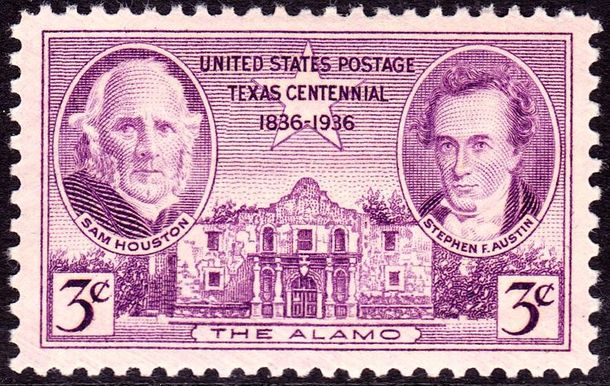
アラモの戦い100周年記念切手(1936) image via Wikipedia, Wikimedia Commons: from "Stephen Austin" <http://en.wikipedia.org/wiki/Stephen_F._Austin>
どちらもポーと同じヴァージニア出身でした。オースティンはフリーメーソンで、テキサス独立アメリカ陰謀説とつながっていたりします。
ポーが書評のなかで使っている "savages" (野蛮人)ということばは原書にあるのをそのまま引いているのですけど (Book VI―SAVAGES)、もっぱらインディアンのことかと思ったら、白人の扇動者とか掠奪者も入っている。
この本は、いつごろ書かれたのか、ちゃんと読んでみないとわかりませんけれど、付録にはメキシコ合衆国の憲法が載っていますので、独立前の様子ということになるのでしょうか。ともあれ、ポーの書評が載った1836年夏の時点で、話題の地域であったのは確かです。
南部・黒人問題について書いておくと、メキシコ政府下では黒人奴隷は解放されていたのが、テキサス独立によって奴隷制が復活します。また、アメリカとメキシコとの対立はその後さらにカリフォルニアやニュー・メキシコをめぐって米墨戦争 (1846-48) へ突入し、その後のゴールド・ラッシュに伴う白人・黒人問題、自由州・奴隷州の論争を経て、米国内では南北戦争による奴隷制の決着という未曾有の「内戦 Civil War」へとつながっていくのでした。
HISTORY OF TEXAS.
The History of Texas: or the Emigrant's, Farmer's, and Politician's Guide to the Character, Climate, Soil, and Productions of that Country; Geographically Arranged from Personal Observation and Experience. By David B. Edward, formerly Principal of the Academy, Alexandria, Lousiana; Late Preceptor of Gonzales Seminary, Texas. Cincinnati: J. A. James & Co.
This should be classed among useful oddities. Its style is somewhat over-abundant―but we believe the book a valuable addition to our very small amount of accurate knowledge in regard to Texas. The author, who is one of the Society of Friends 〔Quaker の公式名称〕, assures us that he has no lands in Texas to sell, although he has lived three years in the country, and that, too, on the frontiers―that he made one of a party of four who explored the province in 1830, from side to side, and from settlement to settlement, during the space of six months more in examining the improvements made throughout every locality, "in order that none should be able to detect a falsehood, or prove a material error which could either mislead, or seriously injure those who may put confidence in this work." For ourselves we are inclined to place great faith in the statements of Mr. Edward, and regard his book with a most favorable eye. It is an octavo of 336 pages, embracing, in detail, highly interesting accounts of the People, the Geographical Features, the Climate, the Savages, the Timber, the Water, &c. of Texas. Much information in regard to Mexico, is included in the body of the work, and, in an Appendix, we have a copy of the Mexican Constitution. We give, by way of extract, a flattering little picture of Texian comfort and abundance.
The people en masse can have a living, and that plentifully too, of animal food, both of beef and pork, of venison and bear meal, besides a variety of fish and fowl, upon easier terms at present, especially the wild game, than any other people, in any other district of North America; which must continue to be the case, for one of the best reasons in the world―at least in Texas: as the wild animals decrease, the domesticated ones will increase.
And, as they have not commenced, except in a few cases (comparatively speaking) upon the border lands of the Gulf, to export corn, they have by just dropping the seed and afterwards stowing away the increase, more bread stuff than they well know sometimes what to do with, it being out of the question to feed their hogs on it, except they were to raise them on such food together, which would be a pity, while they have so much mast in the woods, and so many roots in the prairies.
And, as their milch 〔milkを出すの意味の形容詞〕 cattle increase in numbers, and that very frequently too faster than they can attend to their milking, they have more, as to family use, much more milk, than they know how to dispose of, except they are well stocked with farrow sows, or have around them pet mustang colts.
With these three main stays of a farmer's life, come, by very little more exertion than just the picking and gathering in, those condiments and relishes, which not [column 2] only garnish the table, but replenish the appetite, from a source of such plentiful variegation, as the gardens and the fields, the woods and the waters, of a Texas country!
目次
ポーが書評した本 (5) 『馬を探す紳士の冒険』 (1835; 1836) Books Reviewed by Poe (5): _Adventures of a Gentleman in Search of a Horse_ by Caveat Emptor, Gent. [ポーの書評 Poe's Book Reviews]
ポーは文学書だけじゃなくていろんな本の書評を書きました。
ADVENTURES IN SEARCH OF A HORSE.
The Adventures of a Gentleman in Search of a Horse. By Caveat Emptor, Gent. One, Etc. Philadelphia: Republished by Cary, Lea and Blanchard[, 1836].
キャヴィート・エンプター著 『馬を探す紳士の冒険』 フィラデルフィア:ケアリー・リー・アンド・ブランシャード再刊, 1836. 288pp.
E-text @Internet Archive: The Library of Congress; Google <http://www.archive.org/stream/adventuresagent04stepgoog#page/n9/mode/2up>
ポーは、この本は実用的なところはもちろんだけれど、文学的に特異 (remarkable as being an anomaly in the literary way) と書き、はじめの180ページはタイトルが示すように一頭の馬を探す紳士の冒険を語り、残りの100ページは英国における馬の取引きの法律を語る、と説明しています。
調べてみると原著は、ロンドンで前年の1835年に出版されています。――
London: Longman, Rees, Orme, Brown, Green, & Longman, and Samuel Bagster, 1835. xi, 336pp.
E-text @Internet Archive: Oxford University; Google <http://www.archive.org/stream/adventuresagent00stegoog#page/n6/mode/2up>
これでわかるのは、第一に、初版のイギリス版をポーは参照しないで、ページ数をあくまでアメリカ版で了解していること、第二に、翻訳じゃないし、かつ海賊版が横行していた時代だったから、容易だったとはいえ、1年後にはアメリカ版が出版され、その書評が書かれていること、です。
ポーが目利きだったという話ではなくて、イギリスで出た本がよく読まれる/読まれそうだと、アメリカでも出版された、という話です。
この本はイギリスでは1837年には4版まで重ねています。――
London: Saunders and Otley, 1837. xxxv, 392pp.
E-text @Internet Archive: Oxford University; Google <http://www.archive.org/stream/adventuresofgent1837step#page/n5/mode/2up>
初版の出版社とは異なります。版権(著作権)はどうなっていたのやら。
冒頭に、文学書以外にも、と書きましたけれど、ポーのまなざしは、第一部の物語(と呼べないのならニュージャーナリズム的ルポルタージュかしら)と、それを含めての作品構成にあるようです。
ポー百科事典は、「『サザン・リテラリー・メッセンジャー』の1836年8月号掲載の、馬売買についての本の書評。「すべての素人愛好者はキャヴィート・エンプターの本をすべからくよく見るべし、そく見るべし」と薦めている。」と記すのみ。Sova というひとの同種の本 (Critical Companion to Edgar Allan Poe: A Literary Reference to His Life and Work) は、ポー百科を冒頭でなぞってから、"Caveat Emptor" の名前がラテン語で、英語に直すと "let the buyer beware" (買い主に注意させよ)の意味であり、本書が馬購入における法律的側面の案内書であることを説明しています。あとは上に書いたような構成と、ポーが「すべてのアマチュア all amateurs」に本書を推薦していることが述べられています。
ポーが何をおもしろがっているのか、おもしろがって薦めているのか、ちょっとストレートじゃないのかもしれない。まー、作品をひまなときに読んでみないとわかりませんけど。
ポーが、とても笑える木版画と記しているたくさんの挿絵のなかから――"illustrated by very laughable wood-cuts"――どこがおかしいんだろう、と思いながらも、ポーと笑いを共有していると思うとそれ自体おかしいw
ADVENTURES IN SEARCH OF A HORSE.
The Adventures of a Gentleman in Search of a Horse. By Caveat Emptor, Gent. One, Etc. Philadelphia: Republished by Cary, Lea and Blanchard.
This book, to say nothing of its peculiar excellence and general usefulness, is remarkable as being an anomaly in the literary way. The first 180 pages are occupied with what the title implies, the adventures of a gentleman in search of a horse―the remaining 100 embrace, in all its details, difficulties, and intricacies, a profound treatise on the English laws of horse-dealing warranty!―and this too, strange as it may seem, appears to be the first and only treatise upon a subject so interesting to a great portion of the English gentry. Think of law, serviceable law too, intended as a matter of reference, compiled by a well known attorney, and dedicated to Sir John Gurney, one of the Barons of his Majesty's Court of Exchequer―think of all this done up in a green muslin cover, and illustrated by very laughable wood-cuts. Only imagine the stare of old Coke, and of the other big wigged tribe in white calf and red-letter binding, as our friend in the green habit shall take his station by their side upon the book shelf!
The adventurous portion of the book is all to which we have attended, and so far we have found much fine humor, good advice, and useful information in all matters touching the nature, the management, and especially the purchase of a horse. We would advise all amateurs to look well, and look quickly into the pages of Caveat Emptor. [The Southern Literary Messenger (August, 1836), p. 593]
ポーが書評した本 (6) クーパーの『ワイアンドッテ』 (1843) Books Reviewed by Poe (6): _Wyandotté, or the Hutted Knoll_ by James Fenimore Cooper [ポーの書評 Poe's Book Reviews]
ポーは文学書だけじゃなくていろんな本の書評を書きました、けど無論、文学作品の批評も書きました。
Edgar Allan Poe, Review of Wyandotte, or the Hutted Knoll (Graham's Magazine, November 1843)
Wyandotté, or the Hutted Knoll. A tale, by the author of "The Pathfinder," "Deerslayer," "Last of the Mohicans," "Pioneers," "Prairie," &c., &c. Philadelphia, Lea & Blanchard.
〔ジェームズ・フェニモア・クーパー著〕 『ワイアンドッテ、またの名、小屋のある丘』 (『先導者』『鹿殺し』『モヒカン族の最後の者』『開拓者たち』『大草原』等々の作者による物語) フィラデルフィア:ケアリー・リー・アンド・ブランシャード刊〔, 1843. 全2巻, 237pp.+201pp.〕
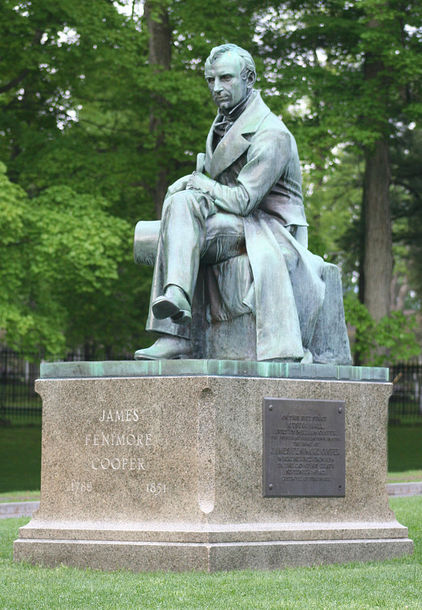
Cooper Statue in Cooperstown, New York. image via Wikipedia <http://en.wikipedia.org/wiki/James_Fenimore_Cooper>
クーパー James Fenimore Cooper, 1789-1851 は、チャールズ・ブロックデン・ブラウンやワシントン・アーヴィングに続いて出てきた最初のアメリカの本格的な職業作家で、最初の大作家でした。今日「レザーストッキング・テールズ(皮脚絆物語)Leatherstocking Tales」5部作が最も有名ですけれど、1843年というと、『開拓者たち The Pioneers』(1823)、『モヒカン族の最後の者』(1826)、『大草原 The Prairie』(1827)を三部作的に出してのち十数年を経て、主人公ナッティー・バンポーを生き返らせた(若いころを描いた)『先導者 The Pathfinder』(1840)と『鹿殺し The Deerslayer』(1841)を続けて出して五部作として完結させてまもないころです。扉のページの作者の紹介に挙げられているのがこれら5作品であり、すでにこのころにクーパーが築いていた地位や作家像を想像させるものがあります。
けど、ポーは平気でクーパーに対して批判的なことをあちこちで書いたのでした。
それがなんでなのか、というのはおもしろい問題だし、この書評がなかば語っていることかもしれないけれど、とりあえずおいといて、この書評自体が興味深いのは、つぎの3点くらいかと現在の自分には思われます。
第一に、のちにマーク・トウェインのエッセイ「フェニモア・クーパーの文学的罪状 Fenimore Cooper's Literary Offenses」が問題にするクーパーのスタイル・文体について実践的に批判しているところ(文章の添削を行なってみせる)。
第二に、インディアンと黒人の人物造形について語っていること。(「黒人は例外なくみごとに描かれている。しかしながら、インディアンのワイアンドッテはこの本の偉大な主人公で、『開拓者たち』の作者がこれまで創造したインディアンと比べてあらゆる点において遜色がない。いや実際、この「森の紳士」は、小説家が不滅とした他の同類の主人公たちより優れていると我々は考える」 The negroes are, without exception, admirably drawn. The Indian, Wyandotté, however, is the great feature of the book, and is, in every respect, equal to the previous Indian creations of the author of "The Pioneer." Indeed, we think this "forest gentleman" superior to the other noted heroes of his kind the heroes which have been immortalized by our novelist.)
第三に、 ロマンス作家クーパーに即して story とplot の区分 (Cf. E. M. Forster, Aspects of the Novel [1927]) を徹底してみせると同時に読者の「興味」「関心」(interest)や細部の描写をそれと関連付けて論じること。((A) [. . .] we give assurance that the story is a good one; for Mr. Cooper has never been known to fail, either in the forest or upon the sea. The interest, as usual, has no reference to plot, of which, indeed, our novelist seems altogether regardless, or incapable, but depends, first, upon the nature of the theme; secondly, upon a Robinson-Crusoe-like detail in its management; and thirdly, upon the frequently repeated portraiture of the half-civilized Indian. (B) It will be at once seen that there is nothing original in this story. On the contrary, it is even excessively common-place. The lover, for example, rescued from captivity by the mistress; the Knoll carried through the treachery of an inmate; and the salvation of the besieged, at the very last moment, by a reinforcement arriving, in consequence of a message borne to a friend by one of the besieged, without the cognizance of the others; these, we say, are incidents which have been the common property of every novelist since the invention of letters. And as for plot, there has been no attempt at any thing of the kind.)
第四に、"popular" ということばを使って、大衆小説ないし通俗小説と芸術性について、自身の営みとおそらく比較・差異化しながら語っているらしいこと。
[. . .] and thus there are two great classes of fictions, ―a popular and widely circulated class, read with pleasure, but without admiration in which the author is lost or forgotten; or remembered, if at all, with something very nearly akin to contempt; and then, a class not so popular, nor so widely diffused, in which, at every paragraph, arises a distinctive and highly pleasurable interest, springing from our perception and appreciation of the skill employed, of the genius evinced in the composition. After perusal of the one class, we think solely of the book after reading the other, chiefly of the author. The former class leads to popularity―the latter to fame. In the former case, the books sometimes live, while the authors usually die; in the latter, even when the works perish, the man survives. Among American writers of the less generally circulated, but more worthy and more artistical fictions, we may mention Mr. Brockden Brown, Mr. John Neal, Mr. Simms, Mr. Hawthorne; at the head of the more popular division we may place Mr. Cooper.
(〔・・・・・・〕本はふたつに大別されることになる。・・・・・・・・・・・・・・・・・・・・・・・・・・・・・・・・・・・・・・・・・・・・・・・・・・・・・・・・・・・・・・・・・・・・・・・・・・・・・・・・・・・・・・・・・・・・・・・・・・・・・・・・・・・・・・・・・・・・・・・・・・
・・・・・・・・・・・・アメリカの作家であまり読まれていないがもっと読まれてしかるべき芸術的に優れた作品の書き手は、ブロックデン・ブラウン氏、ジョン・ニール氏、シムズ氏、ホーソーン氏であり、もっと通俗的なレヴェルの筆頭に私はクーパー氏を置く。)
popular というコトバは多義的でよくわからんです。考えてみようっと。
E-text @Internet Archive: Library, University of California, Davis <http://www.archive.org/stream/wyandotte00cooprich#page/n7/mode/2up>
Gutenberg E-text (1871 rpt.) <http://www.gutenberg.org/files/10434/10434-h/10434-h.htm>
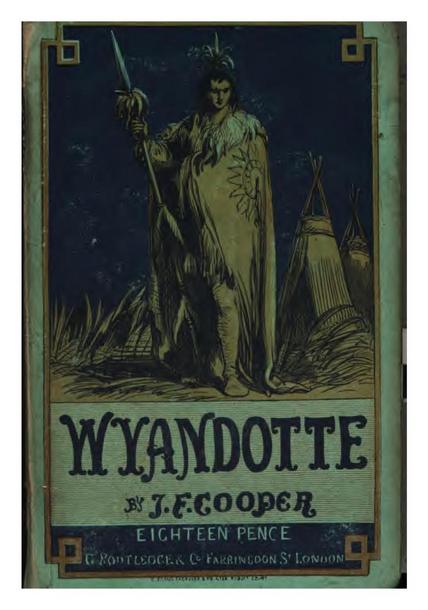
Rpt. London: Routledge, 1856 <http://www.archive.org/stream/wyandotteorhutt00coopgoog#page/n4/mode/2up>
〔2011.1.5朝付記 上の引用部分の訳ができていませんが、下の原文全体にハイパーリンクをはる作業をしました〕
[Edgar Allan Poe, Review of Wyandotte, or the Hutted Knoll]
Wyandotté, or the Hutted Knoll. A tale, by the author of "The Pathfinder," "Deerslayer," "Last of the Mohicans," "Pioneers," "Prairie," &c., &c. Philadelphia, Lea & Blanchard.
Wyandotte, or The Hutted Knoll" is, in its general features, precisely similar to the novels enumerated in the title. It is a forest subject; and, when we say this, we give assurance that the story is a good one; for Mr. Cooper has never been known to fail, either in the forest or upon the sea. The interest, as usual, has no reference to plot, of which, indeed, our novelist seems altogether regardless, or incapable, but depends, first, upon the nature of the theme; secondly, upon a Robinson-Crusoe-like detail in its management; and thirdly, upon the frequently repeated portraiture of the half-civilized Indian. In saying that the interest depends, first, upon the nature of the theme, we mean to suggest that this theme―life in the Wilderness―is one of intrinsic and universal interest, appealing to the heart of man in all phases; a theme, like that of life upon the ocean, so unfailingly omni-prevalent in its power of arresting and absorbing attention, that while success or popularity is, with such a subject, expected as a matter of course, a failure might be properly regarded as conclusive evidence of imbecility on the part of the author. The two theses in question have been handled usque ad nauseam―and this through the instinctive perception of the universal interest which appertains to them. A writer, distrustful of his powers, can scarcely do better than discuss either one or the other. A man of genius will rarely, and should never, undertake either; first, because both are excessively hackneyed; and, secondly, because the reader never fails, in forming his opinion of a book, to make discount, either wittingly or unwittingly, for that intrinsic interest which is inseparable from the subject and independent of the manner in which it is treated. Very few and very dull indeed are those who do not instantaneously perceive the distinction; and thus there are two great classes of fictions, ―a popular and widely circulated class, read with pleasure, but without admiration in which the author is lost or forgotten; or remembered, if at all, with something very nearly akin to contempt; and then, a class not so popular, nor so widely diffused, in which, at every paragraph, arises a distinctive and highly pleasurable interest, springing from our perception and appreciation of the skill employed, of the genius evinced in the composition. After perusal of the one class, we think solely of the book after reading the other, chiefly of the author. The former class leads to popularity―the latter to fame. In the former case, the books sometimes live, while the authors usually die; in the latter, even when the works perish, the man survives. Among American writers of the less generally circulated, but more worthy and more artistical fictions, we may mention Mr. Brockden Brown, Mr. John Neal, Mr. Simms, Mr. Hawthorne; at the head of the more popular division we may place Mr. Cooper.
"The Hutted Knoll," without pretending to detail facts, gives a narrative of fictitious events, similar, in nearly all respects, to occurrences which actually happened during the opening scenes of the Revolution, and at other epochs of our history. It pictures the dangers, difficulties, and distresses of a large family, living, completely insulated, in the forest. The tale commences with a description of the "region which lies in the angle formed by the junction of the Mohawk with the Hudson, extending as far south as the line of Pennsylvania, and west to the verge of that vast rolling plain which composes Western New York"―a region of which the novelist has already frequently written, and the whole of which, with a trivial exception, was a wilderness before the Revolution. Within this district, and on a creek running into the Unadilla, a certain Captain Willoughby purchases an estate, or "patent," and there retires, with his family and dependents, to pass the close of his life in agricultural pursuits. He has been an officer in the British army, but, after serving many years, has sold his commission, and purchased one for his only son, Robert, who alone does not accompany the party into the forest. This party consists of the captain himself; his wife; his daughter, Beulah; an adopted daughter, Maud Meredith; an invalid sergeant, Joyce, who had served under the captain; a Presbyterian preacher, Mr. Woods; a Scotch mason, Jamie Allen; an Irish laborer, Michael O'Hearn; a Connecticut man, Joel Strides; four negroes, Old Plin and Young Plin, Big Smash and Little Smash; eight axe-men; a house-carpenter; a mill-wright, &c., &c. Besides these, a Tuscarora Indian called Nick, or Wyandotté, accompanies the expedition. This Indian, who figures largely in the story, and gives it its title, may be considered as the principal character―the one chiefly elaborated. He is an outcast from his tribe, has been known to Captain Willoughby for thirty years, and is a compound of all the good and bad qualities which make up the character of the half-civilized Indian. He does not remain with the settlers; but appears and re-appears at intervals upon the scene.
Nearly the whole of the first volume is occupied with a detailed account of the estate purchased, (which is termed "The Hutted Knoll" from a natural mound upon which the principal house is built) and of the progressive arrangements and improvements. Toward the close of the volume the Revolution commences; and the party at the "Knoll" are besieged by a band of savages and "rebels," with whom an understanding exists, on the part of Joel Strides, the Yankee. This traitor, instigated by the hope of possessing Captain Willoughby's estate, should it be confiscated, brings about a series of defections from the party of the settlers, and finally, deserting himself, reduces the whole number to six or seven, capable of bearing arms. Captain Willoughby resolves, however, to defend his post. His son, at this juncture, pays him a clandestine visit, and, endeavoring to reconnoitre the position of the Indians, is made captive. The captain, in an attempt at rescue, is murdered by Wyandotté, whose vindictive passions had been aroused by ill-timed allusions, on the part of Willoughby, to floggings previously inflicted, by his orders, upon the Indian. Wyandotté, however, having satisfied his personal vengeance, is still the ally of the settlers. He guides Maud, who is beloved by Robert, to the hut in which the latter is confined, and effects his escape. Aroused by this escape, the Indians precipitate their attack upon the Knoll, which, through the previous treachery of Strides in ill-hanging a gate, is immediately carried. Mrs. Willoughby, Beulah, and others of the party, are killed. Maud is secreted and thus saved by Wyandotté. At the last moment, when all is apparently lost, a reinforcement appears, under command of Evert Beekman, the husband of Beulah; and the completion of the massacre is prevented. Woods, the preacher, had left the Knoll, and made his way through the enemy, to inform Beekman of the dilemma of his friends. Maud and Robert Willoughby are, of course, happily married. The concluding scene of the novel shows us Wyandotté repenting the murder of Willoughby, and converted to Christianity through the agency of Woods.
It will be at once seen that there is nothing original in this story. On the contrary, it is even excessively common-place. The lover, for example, rescued from captivity by the mistress; the Knoll carried through the treachery of an inmate; and the salvation of the besieged, at the very last moment, by a reinforcement arriving, in consequence of a message borne to a friend by one of the besieged, without the cognizance of the others; these, we say, are incidents which have been the common property of every novelist since the invention of letters. And as for plot, there has been no attempt at any thing of the kind. The tale is a mere succession of events, scarcely any one of which has any necessary dependence upon any one other. Plot, however, is, at best, an artificial effect, requiring, like music, not only a natural bias, but long cultivation of taste for its full appreciation; some of the finest narratives in the world―"Gil-Blas" and "Robinson Crusoe," for example―have been written without its employment; and "The Hutted Knoll," like all the sea and forest novels of Cooper, has been made deeply interesting, although depending upon this peculiar source of interest not at all. Thus the absence of plot can never be critically regarded as a defect; although its judicious use, in all cases aiding and in no case injuring other effects, must be regarded as of a very high order of merit.
There are one or two points, however, in the mere conduct of the story now before us, which may, perhaps, be considered as defective. For instance, there is too much obviousness in all that appertains to the hanging of the large gate. In more than a dozen instances, Mrs. Willoughby is made to allude to the delay in the hanging; so that the reader is too positively and pointedly forced to perceive that this delay is to result in the capture of the Knoll. As we are never in doubt of the fact, we feel diminished interest when it actually happens. A single vague allusion, well-managed, would have been in the true artistical spirit.
Again; we see too plainly, from the first, that Beekman is to marry Beulah, and that Robert Willoughby is to marry Maud. The killing of Beulah, of Mrs. Willoughby, and Jamie Allen, produces, too, a painful impression which does not properly appertain to the right fiction. Their deaths affect us as revolting and supererogatory; since the purposes of the story are not thereby furthered in any regard. To Willoughby's murder, however distressing, the reader makes no similar objection; merely because in his decease is fulfilled a species of poetical justice. We may observe here, nevertheless, that his repeated references to his flogging the Indian seem unnatural, because we have otherwise no reason to think him a fool, or a madman, and these references, under the circumstances, are absolutely insensate. We object, also, to the manner in which the general interest is dragged out, or suspended. The besieging party are kept before the Knoll so long, while so little is done, and so many opportunities of action are lost, that the reader takes it for granted that nothing of consequence will occur―that the besieged will be finally delivered. He gets so accustomed to the presence of danger that its excitement, at length, departs. The action is not sufficiently rapid. There is too much procrastination. There is too much mere talk for talk's sake. The interminable discussions between Woods and Captain Willoughby are, perhaps, the worst feature of the book, for they have not even the merit of referring to the matters on hand. In general, there is quite too much colloquy for the purpose of manifesting character, and too little for the explanation of motive. The characters of the drama would have been better made out by action; while the motives to action, the reasons for the different courses of conduct adopted by the dramatis personÆ, might have been made to proceed more satisfactorily from their own mouths, in casual conversations, than from that of the author in person. To conclude our remarks upon the head of ill-conduct in the story, we may mention occasional incidents of the merest melodramatic absurdity: as, for example, at page 156, of the second volume, where "Willoughby had an arm round the waist of Maud, and bore her forward with a rapidity to which her own strength was entirely unequal." We may be permitted to doubt whether a young lady of sound health and limbs, exists, within the limits of Christendom, who could not run faster, on her own proper feet, for any considerable distance, than she could be carried upon one arm of either the Cretan Milo or of the Hercules Farnese.
On the other hand, it would be easy to designate many particulars which are admirably handled. The love of Maud Meredith for Robert Willoughby is painted with exquisite skill and truth. The incident of the tress of hair and box is naturally and effectively conceived. A fine collateral interest is thrown over the whole narrative by the connection of the theme with that of the Revolution; and, especially, there is an excellent dramatic point, at page 124 of the second volume, where Wyandotté, remembering the stripes inflicted upon him by Captain Willoughby, is about to betray him to his foes, when his purpose is arrested by a casual glimpse, through the forest, of the hut which contains Mrs. Willoughby, who had preserved the life of the Indian, by inoculation for the small-pox.
In the depicting of character, Mr. Cooper has been unusually successful in "Wyandotté." One or two of his personages, to be sure, must be regarded as little worth. Robert Willoughby, like most novel heroes, is a nobody; that is to say, there is nothing about him which may be looked upon as distinctive. Perhaps he is rather silly than otherwise; as, for instance, when he confuses all his father's arrangements for his concealment, and bursts into the room before Strides afterward insisting upon accompanying that person to the Indian encampment, without any possible or impossible object. Woods, the parson, is a sad bore, upon the Dominie Sampson plan, and is, moreover, caricatured. Of Captain Willoughby we have already spoken―he is too often on stilts. Evert Beekman and Beulah are merely episodical. Joyce is nothing in the world but Corporal Trim―or, rather, Corporal Trim and water. Jamie Allen, with his prate about Catholicism, is insufferable. But Mrs. Willoughby, the humble, shrinking, womanly wife, whose whole existence centres in her affections, is worthy of Mr. Cooper. Maud Meredith is still better. In fact, we know no female portraiture, even in Scott, which surpasses her; and yet the world has been given to understand, by the enemies of the novelist, that he is incapable of depicting a woman. Joel Strides will be recognized by all who are conversant with his general prototypes of Connecticut. Michael O'Hearn, the County Leitrim man, is an Irishman all over, and his portraiture abounds in humor; as, for example, at page 31, of the first volume, where he has a difficulty with a skiff, not being able to account for its revolving upon its own axis, instead of moving forward! or, at page 132, where, during divine service, to exclude at least a portion of the heretical doctrine, he stops one of his ears with his thumb; or, at page 195, where a passage occurs so much to our purpose that we will be pardoned for quoting it in full. Captain Willoughby is drawing his son up through a window, from his enemies below. The assistants, placed at a distance from this window to avoid observation from without, are ignorant of what burthen is at the end of the rope:
"The men did as ordered, raising their load from the ground a foot or two at a time. In this manner the burthen approached, yard after yard, until it was evidently drawing near the window.
" 'It's the captain hoisting up the big baste of a hog, for provisioning the hoose again a saige,' whispered Mike to the negroes, who grinned as they tugged; 'and, when the craitur squails, see to it, that ye do not squail yourselves.'
"At that moment, the head and shoulders of a man appeared at the window. Mike let go the rope, seized a chair, and was about to knock the intruder upon the head; but the captain arrested the blow.
" 'It's one o' the vagabone Injins that has undermined the hog and come up in its stead,' roared Mike.
" 'It's my son,' said the captain; 'see that you are silent and secret.' "
The negroes are, without exception, admirably drawn. The Indian, Wyandotté, however, is the great feature of the book, and is, in every respect, equal to the previous Indian creations of the author of "The Pioneer." Indeed, we think this "forest gentleman" superior to the other noted heroes of his kind the heroes which have been immortalized by our novelist. His keen sense of the distinction, in his own character, between the chief, Wyandotté, and the drunken vagabond, Sassy Nick; his chivalrous delicacy toward Maud, in never disclosing to her that knowledge of her real feelings toward Robert Willoughby, which his own Indian intuition had discovered; his enduring animosity toward Captain Willoughby, softened, and for thirty years delayed, through his gratitude to the wife; and then, the vengeance consummated, his pity for that wife conflicting with his exultation at the deed―these, we say, are all traits of a lofty excellence indeed. Perhaps the most effective passage in the book, and that which, most distinctively, brings out the character of the Tuscarora, is to be found at pages 50, 51, 52 and 53 of the second volume, where, for some trivial misdemeanor, the captain threatens to make use of the whip. The manner in which the Indian harps upon the threat, returning to it again and again, in every variety of phrase, forms one of the finest pieces of mere character-painting with which we have any acquaintance.
The most obvious and most unaccountable faults of "The Hutted Knoll," are those which appertain to the style―to the mere grammatical construction; ―for, in other and more important particulars of style, Mr. Cooper, of late days, has made a very manifest improvement. His sentences, however, are arranged with an awkwardness so remarkable as to be matter of absolute astonishment, when we consider the education of the author, and his long and continual practice with the pen. In minute descriptions of localities, any verbal inaccuracy, or confusion, becomes a source of vexation and misunderstanding, detracting very much from the pleasure of perusal; and in these inaccuracies "Wyandotté" abounds. Although, for instance, we carefully read and re-read that portion of the narrative which details the situation of the Knoll, and the construction of the buildings and walls about it, we were forced to proceed with the story without any exact or definite impressions upon the subject. Similar difficulties, from similar causes, occur passim throughout the book. For example: at page 41, vol. I:
"The Indian gazed at the house, with that fierce intentness which sometimes glared, in a manner that had got to be, in its ordinary aspects, dull and besotted." This it is utterly impossible to comprehend. We presume, however, the intention is to say that although the Indian's ordinary manner (of gazing) had "got to be" dull and besotted, he occasionally gazed with an intentness that glared, and that he did so in the instance in question. The "got to be" is atrocious―the whole sentence no less so.
Here, at page 9, vol. I., is something excessively vague: "Of the latter character is the face of most of that region which lies in the angle formed by the junction of the Mohawk with the Hudson," &c. &c. The Mohawk, joining the Hudson, forms two angles, of course, ―an acute and an obtuse one; and, without farther explanation, it is difficult to say which is intended.
At page 55, vol. I., we read: ―"The captain, owing to his English education, had avoided straight lines, and formal paths; giving to the little spot the improvement on nature which is a consequence of embellishing her works without destroying them. On each side of this lawn was an orchard, thrifty and young, and which were already beginning to show signs of putting forth their blossoms." Here we are tautologically informed that improvement is a consequence of embellishment, and supererogatorily told that the rule holds good only where the embellishment is not accompanied by destruction. Upon the "each orchard were" it is needless to comment.
At page 30, vol. I., is something similar, where Strides is represented as "never doing any thing that required a particle more than the exertion and strength that were absolutely necessary to effect his object." Did Mr. C. ever hear of any labor that required more exertion than was necessary? He means to say that Strides exerted himself no farther than was necessary―that's all.
At page 59, vol. I., we find this sentence―"He was advancing by the only road that was ever traveled by the stranger as he approached the Hut; or, he came up the valley." This is merely a vagueness of speech. "Or" is intended to imply "that is to say." The whole would be clearer thus―"He was advancing by the valley―the only road traveled by a stranger approaching the Hut." We have here sixteen words, instead of Mr. Cooper's twenty-five.
At page 8, vol. II., is an unpardonable awkwardness, although an awkwardness strictly grammatical. "I was a favorite, I believe, with, certainly was much petted by, both." Upon this we need make no farther observation. It speaks for itself.
We are aware, however, that there is a certain air of unfairness, in thus quoting detached passages, for animadversion of this kind; for, however strictly at random our quotations may really be, we have, of course, no means of proving the fact to our readers; and there are no authors, from whose works individual inaccurate sentences may not be culled. But we mean to say that Mr. Cooper, no doubt through haste or neglect, is remarkably and especially inaccurate, as a general rule; and, by way of demonstrating this assertion, we will dismiss our extracts at random, and discuss some entire page of his composition. More than this: we will endeavor to select that particular page upon which it might naturally be supposed he would bestow the most careful attention. The reader will say at once―"Let this be his first page―the first page of his Preface." This page, then, shall be taken of course.
"The history of the borders is filled with legends of the sufferings of isolated families, during the troubled scenes of colonial warfare. Those which we now offer to the reader, are distinctive in many of their leading facts, if not rigidly true in the details. The first alone is necessary to the legitimate objects of fiction."
"Abounds with legends," would be better than "is filled with legends;" for it is clear that if the history were filled with legends, it would be all legend and no history. The word "of," too, occurs, in the first sentence, with an unpleasant frequency. The "those" commencing the second sentence, grammatically refers to the noun "scenes," immediately preceding, but is intended for "legends." The adjective "distinctive" is vaguely and altogether improperly employed. Mr. C. we believe means to say, merely, that although the details of his legends may not be strictly true, facts similar to his leading ones have actually occurred. By use of the word "distinctive," however, he has contrived to convey a meaning nearly converse. In saying that his legend is " distinctive" in many of the leading facts, he has said what he, clearly, did not wish to say―viz.: that his legend contained facts which distinguished it from all other legends―in other words, facts never before discussed in other legends, and belonging peculiarly to his own. That Mr. C. did mean what we suppose, is rendered evident by the third sentence―"The first alone is necessary to the legitimate objects of fiction." This third sentence itself, however, is very badly constructed. "The first" can refer, grammatically, only to "facts;" but no such reference is intended. If we ask the question―what is meant by "the first?"―what "alone is necessary to the legitimate objects of fiction?" ―the natural reply is, "that facts similar to the leading ones have actually happened." This circumstance is alone to be cared for―this consideration "alone is necessary to the legitimate objects of fiction."
"One of the misfortunes of a nation is to hear nothing besides its own praises." This is the fourth sentence, and is by no means lucid. The design is to say that individuals composing a nation, and living altogether within the national bounds, hear from each other only praises of the nation, and that this is a misfortune to the individuals, since it mis-leads them in regard to the actual condition of the nation. Here it will be seen that, to convey the intended idea, we have been forced to make distinction between the nation and its individual members; for it is evident that a nation is considered as such only in reference to other nations; and thus, as a nation, it hears very much "besides its own praises;" that is to say, it hears the detractions of other rival nations. In endeavoring to compel his meaning within the compass of a brief sentence, Mr. Cooper has completely sacrificed its intelligibility.
The fifth sentence runs thus: ―"Although the American Revolution was probably as just an effort as was ever made by a people to resist the first inroads of oppression, the cause had its evil aspects, as well as all other human struggles."
The American Revolution is here improperly called an "effort." The effort was the cause, of which the Revolution was the result. A rebellion is an "effort" to effect a revolution. An "inroad of oppression" involves an untrue metaphor; for "inroad" appertains to aggression, to attack, to active assault. "The cause had its evil aspects, as well as all other human struggles," implies that the cause had not only its evil aspects, but had, also, all other human struggles. If the words must be retained at all, they should be thus arranged―"The cause like [or as well as] all other human struggles, had its evil aspects;" or better thus―"The cause had its evil aspect, as have all human struggles." "Other" is superfluous.
The sixth sentence is thus written: ―"We have been so much accustomed to hear every thing extolled, of late years, that could be dragged into the remotest connection with that great event, and the principles which led to it, that there is danger of overlooking truth in a pseudo patriotism." The "of late years," here, should follow the "accustomed," or precede the "We have been;" and the Greek "pseudo" is objectionable, since its exact equivalent is to be found in the English "false." "Spurious" would be better, perhaps, than either.
Inadvertences such as these sadly disfigure the style of "The Hutted Knoll;" and every true friend of its author must regret his inattention to the minor morals of the Muse. But these "minor morals," it may be said, are trifles at best. Perhaps so. At all events, we should never have thought of dwelling so pertinaciously upon the unessential demerits of "Wyandotté," could we have discovered any more momentous upon which to comment. [Graham's Magazine (November 1843)]
ポーが書評した本 (7) シガニー夫人の『ツィンツェンドルフ、その他の詩』 (1836) Books Reviewed by Poe (7): _Zinzendorff, and Other Poems_ by Mrs. L. H. Sigourney [ポーの書評 Poe's Book Reviews]
Zinzendorff, and Other Poems. By Mrs. L. H. Sigourney. New York: Leavitt, Lord and Co. 1836. 300pp.
L・H・シガニー夫人著 『ツィンツェンドルフ、その他の詩』
E-text at Open Library [New York Public Library; MSN] <http://openlibrary.org/works/OL7787359W/Zinzendorff> Internet Archive zinzendorffando00sigogoog
ポー の書評は、『サザン・リテラリー・メッセンジャー The Southern Literary Messenger』1836年1月号所収。41ページから68ページにかけての十のReview からなる "Critical Notices" の最初のもので、実は、1835年に出版された他の女性詩人(Miss [Hannah Flagg] Gould, 1789-1865 と Mirs. [Elizabeth Fries] Ellet, 1818-77) の詩集も合わせて俎上にのせている。
ツィンツェンドルフというとモラヴィア派で有名だけれど、モラヴィア兄弟団 (Moravian Brethren) ・モラヴィア教会 (Moravian Church) は15世紀にボヘミアで設立されていたのが17世紀に再興されたもので、それをツィンツェンドルフがさらに再興させたということらしい。Zinzendorf を辞書をあらためて引いてみると、研究社の大英和は「ツィンツェンドルフ《1700-60》ドイツの宗教改革者でMoravian兄弟団の設立者」と書かれ、ジーニアス英和大辞典は「・・・ドイツの宗教指導者; Moravian教会を設立」と記し、リーダーズ英和辞典は「ボヘミア兄弟団(Bohemian Brethren) 直系のモラヴィア兄弟団の設立者」としている。ランダムハウス英和大辞典はモラヴィアへの言及はなくて、「ヘルンフート派(Herrnhuter) を創設 (1722)」と記述している。百科事典をみると、ツィンツェンドルフはドレスデンで迫害を逃れたボヘミア兄弟団員と知り合い、これがヘルンフート兄弟団の始まりとなったということだ。
アメリカ文学で有名(じゃないかもしれないけど意外なので気になる)なのは、クーパーの造形したナッティー・バンポーがモラヴィア教徒であることかしら。C・B・ブラウンにも出てきたような気がする。
リディア・ハントリー・シガニー L[ydia] H[untley] Sigourney, 1791-1865 はコネティカット州ハートフォードの女性詩人で、ポーもふれているように『サザン・リテラリー・メッセンジャー』誌にも寄稿したひと。
ポーはシガニー夫人の詩が、(1) 統一Unity を欠いていることと、(2) イギリスの女性詩人Felicia Hemans の模倣が強いことを批判するけれど、versification (なんと訳したらいいのでしょう)を基本的には褒め、具体的にさまざまな詩行を引いて丁寧に解説しています。
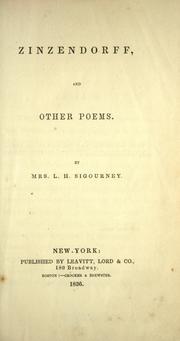
Zinzendorff, and Other Poems. By Mrs. L. H. Sigourney.
New York: Leavitt, Lord and Co. 1836.
//////////////////////////////////////////////////////////
CRITICAL NOTICES.
MRS. SIGOURNEY―MISS GOULD―MRS. ELLET.
Zinzendorff, and other Poems. By Mrs. L. H. Sigourney, New
York:
Published by Leavitt, Lord & Co. 1836.
Poems—By Miss H. F. Gould, Third Edition. Boston: Hilliard,
Gray & Co. 1835.
Poems; Translated and Original. By Mrs. E. F. Ellet.
Philadelphia:
Key and Biddle. 1835.
Mrs. Sigourney has been long known as an author. Her earliest publication was reviewed about twenty years ago, in the North American. She was then Miss Huntley. The fame which she has since acquired is extensive; and we, who so much admire her virtues and her talents, and who have so frequently expressed our admiration of both in this Journal—we, of all persons—are the least inclined to call in question the justice or the accuracy of the public opinion, by which has been adjudged to her so high a station among the literati of our land. Some things, however, we cannot pass over in silence. There are two kinds of popular reputation, —or rather there are two roads by which such reputation may be attained: and it appears to us an idiosyncrasy which distinguishes mere fame from most, or perhaps from all other human ends, that, in regarding the intrinsic value of the object, we must not fail to introduce, as a portion of our estimate, the means by which the object is acquired. To speak less abstractedly. Let us suppose two writers having a reputation apparently equal—that is to say, their names being equally in the mouths of the people—for we take this to be the most practicable test of what we choose to term apparent popular reputation. Their names then are equally in the mouths of the people. The one has written a great work—let it be either an Epic of high rank, or something which, although of seeming littleness in itself, is yet, like the Christabelle of Coleridge, entitled to be called great from its power of creating intense emotion in the minds of great men. And let us imagine that, by this single effort, the author has attained a certain quantum of reputation. We know it to be possible that another writer of very moderate powers may build up for himself, little by little, a reputation equally great—and this, too, merely by keeping continually in the eye, or by appealing continually with little things, to the ear, of that great, overgrown, and majestical gander, the critical and bibliographical rabble.
It would be an easy, although perhaps a somewhat disagreeable task, to point out several of the most popular writers in America—popular in the above mentioned sense—who have manufactured for themselves a celebrity by the very questionable means, and in the very questionable manner, to which we have alluded. But it must not be thought that we wish to include Mrs. Sigourney in the number. By no means. She has trod, however, upon the confines of their circle. She does not owe her reputation to the chicanery we mention, but it cannot be denied that it has been thereby greatly assisted. In a word—no single piece which she has written, and not even her collected works as we behold them in the present volume, and in the one published some years ago, would fairly entitle her to that exalted rank which she actually enjoys as the authoress, time after time, of her numerous, and, in most instances, very creditable compositions. The validity of our objections to this adventitious notoriety we must be allowed to consider unshaken, until it can be proved that any multiplication of zeros will eventuate in the production of a unit.
We have watched, too, with a species of anxiety and vexation brought about altogether by the sincere interest we take in Mrs. Sigourney, the progressive steps by which she has at length acquired the title of the "American Hemans." Mrs. S. cannot conceal from her own discernment that she has acquired this title solely by imitation. The very phrase "American Hemans" speaks loudly in accusation: and we are grieved that what by the over-zealous has been intended as complimentary should fall with so ill-omened a sound into the ears of the judicious. We will briefly point out those particulars in which Mrs. Sigourney stands palpably convicted of that sin which in poetry is not to be forgiven.
And first, in the character of her subjects. Every unprejudiced observer must be aware of the almost identity between the subjects of Mrs. Hemans and the subjects of Mrs. Sigourney. The themes of the former lady are the unobtrusive happiness, the sweet images, the cares, the sorrows, the gentle affections, of the domestic hearth—these too are the themes of the latter. The Englishwoman has dwelt upon all the "tender and true" chivalries of passion—and the American has dwelt as unequivocally upon the same. Mrs. Hemans has delighted in the radiance of a pure and humble faith—she has looked upon nature with a speculative attention—she has "watched the golden array of sunset clouds, with an eye looking beyond them to the habitations of the disembodied spirit"—she has poured all over her verses the most glorious and lofty aspirations of a redeeming Christianity, and in all this she is herself glorious and lofty. And all this too has Mrs. Sigourney not only attempted, but accomplished—yet in all this she is but, alas! —an imitator.
And secondly—in points more directly tangible than the one just mentioned, and therefore more easily appreciated by the generality of readers, is Mrs. Sigourney again open to the charge we have adduced. We mean in the structure of her versification—in the peculiar turns of her phraseology—in certain habitual expressions (principally interjectional,) such as yea! alas! and many others, so frequent upon the lips of Mrs. Hemans as to give an almost ludicrous air of similitude to all articles of her composition—in an invincible inclination to apostrophize every object, in both moral and physical existence—and more particularly in those mottos or quotations, sometimes of considerable extent, prefixed to nearly every poem, not as a text for discussion, nor even as an intimation of what is to follow, but as the actual subject matter itself, and of which the verses ensuing are, in most instances, merely a paraphrase. These were all, in Mrs. Hemans, mannerisms of a gross and inartificial nature; but, in Mrs. Sigourney, they are mannerisms of the most inadmissible kind—the mannerisms of imitation.
In respect to the use of the quotations, we cannot conceive how the fine taste of Mrs. Hemans could have admitted the practice, or how the good sense of Mrs. Sigourney could have thought it for a single moment worthy of her own adoption. In poems of magnitude the mind of the reader is not, at all times, enabled to include in one comprehensive survey the proportions and proper adjustment of the whole. He is pleased—if at all—with particular passages; and the sum of his pleasure is compounded of the sums of the pleasurable sensations inspired by these individual passages during the progress of perusal. But in pieces of less extent—like the poems of Mrs. Sigourney—the pleasure is unique, in the proper acceptation of that term—the understanding is employed, without difficulty, in the contemplation of the picture as a whole—and thus its effect will depend, in a very great degree, upon the perfection of its finish, upon the nice adaptation of its constituent parts, and especially upon what is rightly termed by Schlegel, the unity or totality of interest. Now it will readily be seen, that the practice we have mentioned as habitual with Mrs. Hemans and Mrs. Sigourney is utterly at variance with this unity. By the initial motto—often a very long one—we are either put in possession of the subject of the poem; or some hint, historic fact, or suggestion is thereby afforded, not included in the body of the article, which, without the suggestion, would be utterly incomprehensible. In the latter case, while perusing the poem, the reader must revert, in mind at least, to the motto for the necessary explanation. In the former, the poem being a mere paraphrase of the motto, the interest is divided between the motto and the paraphrase. In either instance the totality of effect is annihilated.
Having expressed ourselves thus far in terms of nearly unmitigated censure, it may appear in us somewhat equivocal to say that, as Americans, we are proud—very proud of the talents of Mrs. Sigourney. Yet such is the fact. The faults which we have already pointed out, and some others which we will point out hereafter, are but dust in the balance, when weighed against her very many and distinguishing excellences. Among those high qualities which give her, beyond doubt, a title to the sacred name of poet are an acute sensibility to natural loveliness—a quick and perfectly just conception of the moral and physical sublime—a calm and unostentatious vigor of thought—a mingled delicacy and strength of expression—and above all, a mind nobly and exquisitely attuned to all the gentle charities and lofty pieties of life.
The volume whose title forms the heading of this article embraces one hundred and seventy-three poems. The longest, but not the best, of these is Zinzendorff. "It owes its existence," says the author, "to a recent opportunity of personal intercourse with that sect of Christians who acknowledge Zinzendorff as their founder; and who, in their labors of self-denying benevolence, and their avoidance of the slight, yet bitter causes of controversy, have well preserved that sacred test of discipleship 'to love one another.' " Most of the other pieces were "suggested by the passing and common incidents of life," —and we confess that we find no fault, with their "deficiency in the wonderful and wild." Not in these mountainous and stormy regions—but in the holy and quiet valley of the beautiful, must forever consent to dwell the genius of Mrs. Sigourney.
The poem of Zinzendorff includes five hundred and eighty lines. It relates, in a simple manner, some adventures of that man of God. Many passages are very noble, and breathe the truest spirit of the Muse. At page 14, for example.
——————The high arch
Of the cloud-sweeping forest proudly cast
(casts)
A solemn shadow, for no sound of axe
Had taught the monarch Oak dire principles
Of Revolution, or brought down the Pine
Like haughty baron from his castled height.
Thus dwelt the kings of Europe — ere the voice
Of the crusading monk, with whirlwind tone
Did root them from their base, with all their hosts,
Tossing the red-cross banner to the sky.
Again at page 21, we have something equally beautiful, in a very different way. The passage is however much injured by the occurrence of the word 'that' at the commencement of both the sixth and seventh line.
———Now the
infant morning raised
Her rosy eyelids. But no soft breeze moved
The forest lords to shake the dews of sleep
From their green coronals. The curtaining mist
Hung o'er the quiet river, and it seemed
That Nature found the summer night so sweet
That 'mid the stillness of her deep
repose
She shunned the wakening of the king
of day.
All this is exquisite, and in Zinzendorff there are many passages of a like kind. The poem, however, is by no means free from faults. In the first paragraph we have the following:
———Through the breast
Of that fair vale the Susquehannah
roam'd,
Wearing its robe of silver like a bride.
Now with a noiseless current gliding slow,
Mid the rich velvet of its curtaining banks
It seemed to sleep.
To suppose the Susquehannah roaming through the breast of any thing—even of a valley—is an incongruity: and to say that such false images are common, is to say very little in their defence. But when the noble river is bedizzened out in robes of silver, and made to wash with its bright waters nothing better than curtains of velvet, we feel a very sensible and a very righteous indignation. We might have expected such language from an upholsterer, or a marchande des modes, but it is utterly out of place upon the lips of Mrs. Sigourney. To liken the glorious objects of natural loveliness to the trappings and tinsel of artificiality, is one of the lowest, and at the same time, one of the most ordinary exemplifications of the bathos. At page 21, these verses occur:
No word was
spoke,
As when the friends of desolated Job,
Finding the line of language all too short
To fathom woe like his, sublimely
paid
That highest homage at the throne of
grief,
Deep silence.
The image here italicized is striking, but faulty. It is deduced not from any analogy between actual existences—between woe on the one hand, and the sea on the other—but from the identity of epithet (deep) frequently applied to both. We say the "deep sea," and the expression "deep woe" is certainly familiar. But in the first case the sea is actually deep; in the second, woe is but metaphorically so. Sound, therefore—not sense, is the basis of the analogy, and the image is consequently incorrect.
Some faults of a minor kind we may also discover in Zinzendorff. We dislike the use made by the poetess of antique modes of expression—here most unequivocally out of place. For example.
Where
the red council-fire
Disturbed the trance of
midnight,
long they sate.
What time, with hatred
fierce and unsubdued,
The woad-stained Briton, in
his
wattled boat,
Qualied 'neath the glance of Rome.
The versification of Zinzendorff is particularly good—always sweet—occasionally energetic. We are enabled to point out only one defective line in the poem, and in this the defect has arisen from an attempt to contract enthusiasm into a word of three syllables.
He who
found
This blest enthusiasm nerve his weary heart.
There are, however, some errors of accentuation—for example:
So strong in that misanthrope's
bosom
wrought
A frenzied malice.
Again—
He would have made
himself
A green oasis mid the strife of tongues.
We observe too that Mrs. Sigourney places the accent in Wyoming on the second syllable.
'Twas summer in Wyoming.
Through the breast, &c.
———And the lore
Of sad Wyoming's chivalry, a part
Of classic song.
But we have no right to quarrel with her for this. The word is so pronounced by those who should know best. Campbell, however, places the accent on the first syllable.
On Susquehannah's banks, fair Wyoming!
We will conclude our remarks upon Zinzendorff with a passage of surpassing beauty, energy, and poetic power. Why cannot Mrs. Sigourney write always thus?
These lines are glowing all over with the true radiance of poetry. The image in italics is perfect. Of the versification, it is not too much to say that it reminds us of Miltonic power. The slight roughness in the line commencing "When on Mars-Hill," and the discord introduced at the word "inspired," evince an ear attuned to the delicacies of melody, and form an appropriate introduction to the sonorous and emphatic closing—Jesus of Nazareth.
Of the minor poems in the volume before us, we must be pardoned for speaking in a cursory manner. Of course they include many degrees of excellence. Their beauties and their faults are, generally, the beauties and the faults of Zinzendorff. We will particularize a few of each.
On page 67, in a poem entitled Female Education, occur the following lines:
——Break Oblivion's
sleep,
And toil with florist's art
To plant the scenes of virtue deep
In childhood's fruitful heart!
To thee the babe is given,
Fair from its glorious Sire;
Go—nurse it for the King of Heaven,
And He will pay the hire.
The conclusion of this is bathetic to a degree bordering upon the grotesque.
At page 160 is an error in metre—of course an oversight. We point it out merely because, did we write ourselves, we should like to be treated in a similar manner. For 'centred' we should probably read 'concentred.'
The wealth of every age
Thou hast center'd here,
The ancient tome, the classic page,
The wit, the poet, and the sage,
All at thy nod
appear.
At page 233, line 10, the expression "Thou wert their friend," although many precedents may be found to justify it—is nevertheless not English. The same error occurs frequently in the volume.
The poem entitled The Pholas, at page 105, has the following introductory prose sentence: "It is a fact familiar to Conchologists, that the genus Pholas possesses the property of phosphorescence. It has been asserted that this may be restored, even when the animal is in a dried state, by the application of water, but is extinguished by the least quantity of brandy." This odd fact in Natural History is precisely what Cowley would have seized with avidity for the purpose of preaching therefrom a poetical homily on Temperance. But that Mrs. Sigourney should have thought herself justifiable in using it for such purpose, is what we cannot understand. What business has her good taste with so palpable and so ludicrous a conceit? Let us now turn to a more pleasing task.
In the Friends of Man, (a poem originally published in our own Messenger,) the versification throughout is of the first order of excellence. We select an example.
The youth at midnight sought
his bed,
But ere he closed his eyes,
Two forms drew near with gentle tread,
In meek and saintly guise;
One struck a lyre of wondrous power,
With thrilling music fraught,
That chained the flying summer hour,
And charmed the listener's thought —
For still would its tender cadence be
Follow me! follow me!
And every morn a smile shall bring,
Sweet as the merry lay I sing.
The lines entitled Filial Grief, at page 199, are worthy of high praise. Their commencement is chaste, simple, and altogether exquisite. The verse italicized contains an unjust metaphor, but we are forced to pardon it for the sonorous beauty of its expression.
The love that blest our
infant dream,
That dried our earliest tear,
The tender voice, the winning smile,
That made our home so dear,
The hand that urged our youthful thought
O'er low delights to soar,
Whose pencil wrote upon our souls,
Alas, is ours no more.
We will conclude our extracts with "Poetry" from page 57. The burden of the song finds a ready echo in our bosoms.
Morn on her rosy couch awoke,
Enchantment led the hour,
And Mirth and Music drank the dews
That freshened Beauty's flower—
Then from her bower of deep delight
I heard a young girl sing,
"Oh, speak no ill of Poetry,
For 'tis a holy
thing!"
The sun in noon-day heat rose
high,
And on with heaving breast
I saw a weary pilgrim toil,
Unpitied and unblest—
Yet still in trembling measures flow'd
Forth from a broken string,
"Oh, speak no ill of Poetry,
For 'tis a holy thing!"
'Twas night, and Death the
curtains drew,
Mid agony severe,
While there a willing spirit went
Home to a glorious sphere——
Yet still it sighed, even when was spread
The waiting Angel's wing,
"Oh, speak no ill of Poetry,
For 'tis a holy thing!"
We now bid adieu to Mrs. Sigourney—yet we trust only for a time. We shall behold her again. When that period arrives, having thrown aside the petty shackles which have hitherto enchained her, she will assume, at once, that highest station among the poets of our land which her noble talents so well qualify her for attaining.
[Miss Gould]
The remarks which we made in the beginning of our critique on Mrs. Sigourney, will apply, in an equal degree, to Miss Gould. Her reputation has been greatly assisted by the frequency of her appeals to the attention of the public. The poems (one hundred and seventeen in number,) included in the volume now before us have all, we believe, appeared, from time to time, in the periodicals of the day. Yet in no other point of view, can we trace the remotest similarity between the two poetesses. We have already pointed out the prevailing characteristics of Mrs. Sigourney. In Miss Gould we recognize, first, a disposition, like that of Wordsworth, to seek beauty where it is not usually sought—in the homelinesses (if we may be permitted the word,) and in the most familiar realities of existence—secondly abandon of manner—thirdly a phraseology sparkling with antithesis, yet, strange to say, perfectly simple and unaffected.
Without Mrs. Sigourney's high reach of thought, Miss Gould surpasses her rival in the mere vehicle of thought—expression. "Words, words, words," are the true secret of her strength. Words are her kingdom—and in the realm of language, she rules with equal despotism and nonchalance. Yet we do not mean to deny her abilities of a higher order than any which a mere logocracy can imply. Her powers of imagination are great, and she has a faculty of inestimable worth, when considered in relation to effect—the faculty of holding ordinary ideas in so novel, and sometimes in so fantastic a light, as to give them all of the appearance, and much of the value, of originality. Miss Gould will, of course, be the favorite with the multitude—Mrs. Sigourney with the few.
We can think of no better manner of exemplifying these few observations, than by extracting part of Miss G's little poem, The Great Refiner.
'Tis sweet to
feel that
he, who tries
The silver, takes his seat
Beside the fire that
purifies;
Lest too intense a heat,
Raised to consume the base alloy,
The precious metal too destroy.
'Tis good to
think how
well he knows
The silver's power to bear
The ordeal to which it goes;
And that with skill and care,
He'll take it from the fire, when fit
For his own hand to polish it.
'Tis blessedness
to
know that he
The piece he has begun
Will not forsake, till he can see,
To prove the work well done,
An image by its brighteness shown
The perfect likeness
of his own.
The mind which could conceive the subject of this poem, and find poetic appropriateness in a forced analogy between a refiner of silver, over his crucible, and the Great Father of all things, occupied in the mysteries of redeeming Grace, we cannot believe a mind adapted to the loftier breathings of the lyre. On the other hand, the delicate finish of the illustration, the perfect fitness of one portion for another, the epigrammatic nicety and point of the language, give evidence of a taste exquisitely alive to the prettinesses of the Muse. It is possible that Miss Gould has been led astray in her conception of this poem by the scriptural expression, "He shall sit as a refiner and purifier of silver."
From the apparently
harsh strictures we have thought it our duty
to
make upon the poetry of Miss Gould, must be excepted one exquisite
little
morceau at page 59 of the volume now under review. It is
entitled
The Dying Storm. We will
quote it in full.
I am feeble,
pale
and weary,
And my wings are nearly furled;
I have
caused a scene so dreary,
I am glad to quit the world!
With bitterness I'm thinking
On the evil I have done,
And to my caverns sinking
From the
coming of the sun.
The heart of man will
sicken
In that pure and holy light,
When he feels the hopes I've stricken
With an everlasting blight!
For widely, in my madness,
Have I poured abroad my wrath,
And changing joy to sadness,
Scattered ruin on my path.
Earth
shuddered at
my motion,
And my power in silence owns;
But the deep and troubled ocean
O'er
my deeds of horror
moans!
I have sunk the brightest treasure—
I've destroyed the fairest form—
I have sadly filled my measure,
And am
now a dying
storm.
We have much difficulty in recognizing these verses as from the pen of Miss Gould. They do not contain a single trace of her manner, and still less of the prevailing features of her thought. Setting aside the flippancy of the metre, ill adapted to the sense, we have no fault to find. All is full, forcible, and free from artificiality. The personification of the storm, in its perfect simplicity, is of a high order of poetic excellence—the images contained in the lines italicized, all of the very highest.
[Mrs. Ellet]
Many but not all of the poems in Mrs. Ellet's volume, likewise, have been printed before—appearing, within the last two years, in different periodicals. The whole number of pieces now published is fifty seven. Of these thirty-nine are original. The rest are translations from the French of Alphonse de Lamartine and Beranger—from the Spanish of Quevedo and Yriarte—from the Italian of Ugo Foscolo, Alfieri, Fulvio Testi, Pindemonte, and Saverio Bettinelli, —and from the German of Schiller. As evidences of the lady's acquaintance with the modern languages, these translations are very creditable to her. Where we have had opportunities of testing the fidelity of her versions by reference to the originals, we have always found reason to be satisfied with her performances. A too scrupulous adherence to the text is certainly not one of her faults—nor can we yet justly call her, in regard to the spirit of her authors, a latitudinarian. We wish, however, to say that, in fully developing the meaning of her originals, she has too frequently neglected their poetical characters. Let us refer to the lady's translation of the Swallows. We have no hesitation in saying, that not the slightest conception of Pierre Jean de Beranger, can be obtained by the perusal of the lines at page 112, of the volume now before us.
Bring me, I
pray—an
exile sad—
Some token of that valley bright,
Where in my sheltered childhood glad,
The future was a dream of light.
Beside the gentle stream, where swell
Its waves beneath the lilac tree,
Ye saw the cot I love so well—
And speak ye of that home to me?
We have no fault to find with these verses in themselves—as specimens of the manner of the French chansonnier, we have no patience with them. What we have quoted, is the second stanza of the song. Our remarks, here, with some little modification, would apply to the Sepulchres of Foscolo, especially to the passage commencing
Yes—Pindemonte!
The aspiring soul is
fired to lofty deeds
By great men's monuments, &c.
They would apply, also, with somewhat less force, to Lamartine's Loss of the Anio, in the original of which by the way, we cannot perceive the lines answering to Mrs. E's verses.
All that
obscures thy
sovereign majesty
Degrades our glory in degrading thee.
Quevedo's Sonnet Rome in Ruins, we happen to have by us at this moment. The translation in this instance is faultless, and combines, happily, a close approximation to the meaning of the original, with its quaint air and pompous rhythm. The Sonnet itself is a plagiarism entire, from Girolamo Preti. The opening lines of Quevedo,
Pilgrim! in vain thou
seekest in Rome for Rome!
Alas! the Queen of nations is no more!
Dust are her towers, that proudly frowned of yore,
And her stern hills themselves have built their tomb,
are little else than the
Roma in Roma non
è
In se
stessa cadeo morta e sepolta, &c.
of Girolamo. But this is no concern of Mrs. Ellet's.
Of the original poems, which form the greater part of the volume, we have hardly been able to form an opinion, during the cursory perusal we have given them. Some of them have merit. Some we think unworthy of the talents which their author has undoubtedly displayed. The epigram, for example, at page 102 is rather a silly joke upon a threadbare theme, and, however well it might have suited Mrs. Ellet's purpose to indite it, she should have had more discretion than to give it permanency in a collection of her poems.
Echo was once a
love
sick maid
They say: the tale is no deceiver.
However a woman's form might fade
Her voice would be the last to leave her!
The tragedy (Teresa Contarini) at the end of the volume, "is founded," says the authoress, "upon an incident well known in the history of Venice, which has formed the material for various works of fiction." Mrs. E. has availed herself of a drama of Nicolini's in part of the first scene of the first act, and in the commencement of the fifth act. The resemblance between the two plays is, however, very slight. In plot—in the spirit of the dialogue—and in the range of incidents they differ altogether. Teresa Contarini was received with approbation at the Park Theatre in March 1835, —Miss Philips performing the heroine. We must confine ourselves to the simple remark, that the drama appears to us better suited to the closet than the stage.
In evidence that Mrs.
Ellet is a poetess of no ordinary rank, we
extract,
from page
51 of her volume, a little poem rich in vigorous expression,
and full of solemn thought. Its chief merits, however, are condensation
and energy.
Hark—to the
midnight
bell!
The solemn peal rolls on
That tells us, with an iron tongue,
Another year is gone!
Gone with its hopes, its mockeries, and its fears,
To the dim rest which wraps our former years.
Gray pilgrim
to the
past!
We will not bid thee stay;
For joys of youth and passion's plaint
Thou bear'st alike away.
Alike the tones of mirth, and sorrow's swell
Gather to hymn thy parting. —Fare thee well!
Fill high the
cup—and
drink
To Time's unwearied sweep!
He claims a parting pledge from us—
And let the draught be deep!
We may not shadow moments fleet as this,
With tales of baffled hopes, or vanished bliss.
No comrade's
voice is
here,
That could not tell of grief—
Fill up! —We know that friendship's hours,
Like their own joys—are brief.
Drink to their brightness while they yet may last,
And drown in song the memory of the past!
The winter's
leafless
bough
In sunshine yet shall bloom;
And hearts that sink in sadness now
Ere long dismiss their gloom.
Peace to the sorrowing! Let our goblets flow,
In red wine mantling, for the tears of wo!
Once more! A
welcoming
strain!
A solemn sound—yet sweet!
While life is ours, Time's onward steps
In gladness will we greet!
Fill high the cup! What prophet lips may tell
Where we shall bid another year farewell!
With this extract, we close our observations on the writings of Mrs. Ellet—of Miss Gould—and of Mrs. Sigourney. The time may never arrive again, when we shall be called upon, by the circumstances of publication, to speak of them in connexion with one another. [Southern Literary Messenger, January 1836]
ポーが書評した本 (8) H・F・グールドの『詩集』 (1835) Books Reviewed by Poe (8): _Poems_ by Miss H. F. Gould [ポーの書評 Poe's Book Reviews]
Poems. By Miss H. F. Gould. Third Edition. Boston: Hilliard, Gray & Co. 1835. 239pp.
H・F・グールド嬢著 『詩集』 第3版。 ボストン: ヒリアード、グレイ社、1835年。
E-text at Internet Archive [New York Public Library; MSN] <http://www.archive.org/stream/poems06goulgoog#page/n8/mode/2up>
初版 (1832) 174pp. <http://www.archive.org/stream/poems07goulgoog#page/n10/mode/2up>
第2版 (1833) 224pp. <http://www.archive.org/stream/hammahflagg00goulrich#page/n7/mode/2up>
ポー の書評は、『サザン・リテラリー・メッセンジャー The Southern Literary Messenger』1836年1月号所収。41ページから68ページにかけての10のReview からなる "Critical Notices" の最初のもので、実は、1835年に出版された他の女性詩人(Mrs. L[ydia] H[untley] Sigourney, 1791-1865 と Mrs. [Elizabeth Fries] Ellet, 1818-77) の詩集も合わせて俎上にのせています。
H・F・〔ハナ・フラッグ・〕グールド嬢 Miss [Hannah Flagg] Gould, 1789-1865 の場合は、(あるしゅ、ポー自身と同様に、『詩集』が拡大して言ったとはいえ、既に第3版なので、3人あわせてアメリカ女性詩人を論じよう、というポーの意識が働いた上での選択だったと思われます。
グールドは童謡というか、子供向けの詩を得意とした詩人だったらしいです。ポーはその、"epigrammatic" (警句風の、気のきいた)詩行をほめるのですけど、もうちょっと分析的には、――In Miss Gould we recognize, first, a disposition, like that of Wordsworth, to seek beauty where it is not usually sought—in the homelinesses (if we may be permitted the word,) and in the most familiar realities of existence—secondly abandon of manner—thirdly a phraseology sparkling with antithesis, yet, strange to say, perfectly simple and unaffected.
つまり、第一に、ふつう美が求められない日常的なところに美を求める傾向(ワーズワース的)、第二に様式の放縦さ、第三に、反対命題(アンチテーゼ)がきらめく詩句(だけど不思議なことにまったく素朴で気取らないことばづかい)。
//////////////////////////////////////////////////////////
Zinzendorff,
and other Poems. By Mrs. L. H. Sigourney, New
York:
Published by Leavitt, Lord & Co. 1836.
Poems — By Miss H. F. Gould, Third Edition. Boston:
Hilliard,
Gray & Co. 1835.
Poems; Translated and Original. By Mrs. E. F. Ellet.
Philadelphia:
Key and Biddle. 1835.
Mrs. Sigourney has been long known as an author. Her earliest publication was reviewed about twenty years ago, in the North American. She was then Miss Huntley. The fame which she has since acquired is extensive; and we, who so much admire her virtues and her talents, and who have so frequently expressed our admiration of both in this Journal—we, of all persons—are the least inclined to call in question the justice or the accuracy of the public opinion, by which has been adjudged to her so high a station among the literati of our land. Some things, however, we cannot pass over in silence. There are two kinds of popular reputation, —or rather there are two roads by which such reputation may be attained: and it appears to us an idiosyncrasy which distinguishes mere fame from most, or perhaps from all other human ends, that, in regarding the intrinsic value of the object, we must not fail to introduce, as a portion of our estimate, the means by which the object is acquired. To speak less abstractedly. Let us suppose two writers having a reputation apparently equal—that is to say, their names being equally in the mouths of the people—for we take this to be the most practicable test of what we choose to term apparent popular reputation. Their names then are equally in the mouths of the people. The one has written a great work—let it be either an Epic of high rank, or something which, although of seeming littleness in itself, is yet, like the Christabelle of Coleridge, entitled to be called great from its power of creating intense emotion in the minds of great men. And let us imagine that, by this single effort, the author has attained a certain quantum of reputation. We know it to be possible that another writer of very moderate powers may build up for himself, little by little, a reputation equally great—and this, too, merely by keeping continually in the eye, or by appealing continually with little things, to the ear, of that great, overgrown, and majestical gander, the critical and bibliographical rabble.
It would be an easy, although perhaps a somewhat disagreeable task, to point out several of the most popular writers in America—popular in the above mentioned sense—who have manufactured for themselves a celebrity by the very questionable means, and in the very questionable manner, to which we have alluded. But it must not be thought that we wish to include Mrs. Sigourney in the number. By no means. She has trod, however, upon the confines of their circle. She does not owe her reputation to the chicanery we mention, but it cannot be denied that it has been thereby greatly assisted. In a word—no single piece which she has written, and not even her collected works as we behold them in the present volume, and in the one published some years ago, would fairly entitle her to that exalted rank which she actually enjoys as the authoress, time after time, of her numerous, and, in most instances, very creditable compositions. The validity of our objections to this adventitious notoriety we must be allowed to consider unshaken, until it can be proved that any multiplication of zeros will eventuate in the production of a unit.
We have watched, too, with a species of anxiety and vexation brought about altogether by the sincere interest we take in Mrs. Sigourney, the progressive steps by which she has at length acquired the title of the "American Hemans." Mrs. S. cannot conceal from her own discernment that she has acquired this title solely by imitation. The very phrase "American Hemans" speaks loudly in accusation: and we are grieved that what by the over-zealous has been intended as complimentary should fall with so ill-omened a sound into the ears of the judicious. We will briefly point out those particulars in which Mrs. Sigourney stands palpably convicted of that sin which in poetry is not to be forgiven.
And first, in the character of her subjects. Every unprejudiced observer must be aware of the almost identity between the subjects of Mrs. Hemans and the subjects of Mrs. Sigourney. The themes of the former lady are the unobtrusive happiness, the sweet images, the cares, the sorrows, the gentle affections, of the domestic hearth—these too are the themes of the latter. The Englishwoman has dwelt upon all the "tender and true" chivalries of passion—and the American has dwelt as unequivocally upon the same. Mrs. Hemans has delighted in the radiance of a pure and humble faith—she has looked upon nature with a speculative attention—she has "watched the golden array of sunset clouds, with an eye looking beyond them to the habitations of the disembodied spirit"—she has poured all over her verses the most glorious and lofty aspirations of a redeeming Christianity, and in all this she is herself glorious and lofty. And all this too has Mrs. Sigourney not only attempted, but accomplished—yet in all this she is but, alas! —an imitator.
And secondly—in points more directly tangible than the one just mentioned, and therefore more easily appreciated by the generality of readers, is Mrs. Sigourney again open to the charge we have adduced. We mean in the structure of her versification—in the peculiar turns of her phraseology—in certain habitual expressions (principally interjectional,) such as yea! alas! and many others, so frequent upon the lips of Mrs. Hemans as to give an almost ludicrous air of similitude to all articles of her composition—in an invincible inclination to apostrophize every object, in both moral and physical existence—and more particularly in those mottos or quotations, sometimes of considerable extent, prefixed to nearly every poem, not as a text for discussion, nor even as an intimation of what is to follow, but as the actual subject matter itself, and of which the verses ensuing are, in most instances, merely a paraphrase. These were all, in Mrs. Hemans, mannerisms of a gross and inartificial nature; but, in Mrs. Sigourney, they are mannerisms of the most inadmissible kind—the mannerisms of imitation.
In respect to the use of the quotations, we cannot conceive how the fine taste of Mrs. Hemans could have admitted the practice, or how the good sense of Mrs. Sigourney could have thought it for a single moment worthy of her own adoption. In poems of magnitude the mind of the reader is not, at all times, enabled to include in one comprehensive survey the proportions and proper adjustment of the whole. He is pleased—if at all—with particular passages; and the sum of his pleasure is compounded of the sums of the pleasurable sensations inspired by these individual passages during the progress of perusal. But in pieces of less extent—like the poems of Mrs. Sigourney—the pleasure is unique, in the proper acceptation of that term—the understanding is employed, without difficulty, in the contemplation of the picture as a whole—and thus its effect will depend, in a very great degree, upon the perfection of its finish, upon the nice adaptation of its constituent parts, and especially upon what is rightly termed by Schlegel, the unity or totality of interest. Now it will readily be seen, that the practice we have mentioned as habitual with Mrs. Hemans and Mrs. Sigourney is utterly at variance with this unity. By the initial motto—often a very long one—we are either put in possession of the subject of the poem; or some hint, historic fact, or suggestion is thereby afforded, not included in the body of the article, which, without the suggestion, would be utterly incomprehensible. In the latter case, while perusing the poem, the reader must revert, in mind at least, to the motto for the necessary explanation. In the former, the poem being a mere paraphrase of the motto, the interest is divided between the motto and the paraphrase. In either instance the totality of effect is annihilated.
Having expressed ourselves thus far in terms of nearly unmitigated censure, it may appear in us somewhat equivocal to say that, as Americans, we are proud—very proud of the talents of Mrs. Sigourney. Yet such is the fact. The faults which we have already pointed out, and some others which we will point out hereafter, are but dust in the balance, when weighed against her very many and distinguishing excellences. Among those high qualities which give her, beyond doubt, a title to the sacred name of poet are an acute sensibility to natural loveliness—a quick and perfectly just conception of the moral and physical sublime—a calm and unostentatious vigor of thought—a mingled delicacy and strength of expression—and above all, a mind nobly and exquisitely attuned to all the gentle charities and lofty pieties of life.
The volume whose title forms the heading of this article embraces one hundred and seventy-three poems. The longest, but not the best, of these is Zinzendorff. "It owes its existence," says the author, "to a recent opportunity of personal intercourse with that sect of Christians who acknowledge Zinzendorff as their founder; and who, in their labors of self-denying benevolence, and their avoidance of the slight, yet bitter causes of controversy, have well preserved that sacred test of discipleship 'to love one another.' " Most of the other pieces were "suggested by the passing and common incidents of life," —and we confess that we find no fault, with their "deficiency in the wonderful and wild." Not in these mountainous and stormy regions—but in the holy and quiet valley of the beautiful, must forever consent to dwell the genius of Mrs. Sigourney.
The poem of Zinzendorff includes five hundred and eighty lines. It relates, in a simple manner, some adventures of that man of God. Many passages are very noble, and breathe the truest spirit of the Muse. At page 14, for example.
——————The high arch
Of the cloud-sweeping forest proudly cast (casts)
A solemn shadow, for no sound of axe
Had taught the monarch Oak dire principles
Of Revolution, or brought down the Pine
Like haughty baron from his castled height.
Thus dwelt the kings of Europe — ere the voice
Of the crusading monk, with whirlwind tone
Did root them from their base, with all their hosts,
Tossing the red-cross banner to the sky.
Again at page 21, we have something equally beautiful, in a very different way. The passage is however much injured by the occurrence of the word 'that' at the commencement of both the sixth and seventh line.
———Now the infant morning raised
Her rosy eyelids. But no soft breeze moved
The forest lords to shake the dews of sleep
From their green coronals. The curtaining mist
Hung o'er the quiet river, and it seemed
That Nature found the summer night so sweet
That 'mid the stillness of her deep repose
She shunned the wakening of the king of day.
All this is exquisite, and in Zinzendorff there are many passages of a like kind. The poem, however, is by no means free from faults. In the first paragraph we have the following:
———Through the breast
Of that fair vale the Susquehannah roam'd,
Wearing its robe of silver like a bride.
Now with a noiseless current gliding slow,
Mid the rich velvet of its curtaining banks
It seemed to sleep.
To suppose the Susquehannah roaming through the breast of any thing—even of a valley—is an incongruity: and to say that such false images are common, is to say very little in their defence. But when the noble river is bedizzened out in robes of silver, and made to wash with its bright waters nothing better than curtains of velvet, we feel a very sensible and a very righteous indignation. We might have expected such language from an upholsterer, or a marchande des modes, but it is utterly out of place upon the lips of Mrs. Sigourney. To liken the glorious objects of natural loveliness to the trappings and tinsel of artificiality, is one of the lowest, and at the same time, one of the most ordinary exemplifications of the bathos. At page 21, these verses occur:
No word was spoke,
As when the friends of desolated Job,
Finding the line of language all too short
To fathom woe like his, sublimely paid
That highest homage at the throne of grief,
Deep silence.
The image here italicized is striking, but faulty. It is deduced not from any analogy between actual existences—between woe on the one hand, and the sea on the other—but from the identity of epithet (deep) frequently applied to both. We say the "deep sea," and the expression "deep woe" is certainly familiar. But in the first case the sea is actually deep; in the second, woe is but metaphorically so. Sound, therefore—not sense, is the basis of the analogy, and the image is consequently incorrect.
Some faults of a minor kind we may also discover in Zinzendorff. We dislike the use made by the poetess of antique modes of expression—here most unequivocally out of place. For example.
Where the red council-fire
Disturbed the trance of
midnight,
long they sate.
What time, with hatred fierce and unsubdued,
The woad-stained Briton, in his
wattled boat,
Qualied 'neath the glance of Rome.
The versification of Zinzendorff is particularly good—always sweet—occasionally energetic. We are enabled to point out only one defective line in the poem, and in this the defect has arisen from an attempt to contract enthusiasm into a word of three syllables.
He who found
This blest enthusiasm nerve his weary heart.
There are, however, some errors of accentuation—for example:
So strong in that misanthrope's bosom
wrought
A frenzied malice.
Again—
He would have made himself
A green oasis mid the strife of tongues.
We observe too that Mrs. Sigourney places the accent in Wyoming on the second syllable.
'Twas summer in Wyoming.
Through the breast, &c.
———And the lore
Of sad Wyoming's chivalry, a part
Of classic song.
But we have no right to quarrel with her for this. The word is so pronounced by those who should know best. Campbell, however, places the accent on the first syllable.
On Susquehannah's banks, fair Wyoming!
We will conclude our remarks upon Zinzendorff with a passage of surpassing beauty, energy, and poetic power. Why cannot Mrs. Sigourney write always thus?
These lines are glowing all over with the true radiance of poetry. The image in italics is perfect. Of the versification, it is not too much to say that it reminds us of Miltonic power. The slight roughness in the line commencing "When on Mars-Hill," and the discord introduced at the word "inspired," evince an ear attuned to the delicacies of melody, and form an appropriate introduction to the sonorous and emphatic closing—Jesus of Nazareth.
Of the minor poems in the volume before us, we must be pardoned for speaking in a cursory manner. Of course they include many degrees of excellence. Their beauties and their faults are, generally, the beauties and the faults of Zinzendorff. We will particularize a few of each.
On page 67, in a poem entitled Female Education, occur the following lines:
——Break Oblivion's sleep,
And toil with florist's art
To plant the scenes of virtue deep
In childhood's fruitful heart!
To thee the babe is given,
Fair from its glorious Sire;
Go—nurse it for the King of Heaven,
And He will pay the hire.
The conclusion of this is bathetic to a degree bordering upon the grotesque.
At page 160 is an error in metre—of course an oversight. We point it out merely because, did we write ourselves, we should like to be treated in a similar manner. For 'centred' we should probably read 'concentred.'
The wealth of every age
Thou hast center'd here,
The ancient tome, the classic page,
The wit, the poet, and the sage,
All at thy nod appear.
At page 233, line 10, the expression "Thou wert their friend," although many precedents may be found to justify it—is nevertheless not English. The same error occurs frequently in the volume.
The poem entitled The Pholas, at page 105, has the following introductory prose sentence: "It is a fact familiar to Conchologists, that the genus Pholas possesses the property of phosphorescence. It has been asserted that this may be restored, even when the animal is in a dried state, by the application of water, but is extinguished by the least quantity of brandy." This odd fact in Natural History is precisely what Cowley would have seized with avidity for the purpose of preaching therefrom a poetical homily on Temperance. But that Mrs. Sigourney should have thought herself justifiable in using it for such purpose, is what we cannot understand. What business has her good taste with so palpable and so ludicrous a conceit? Let us now turn to a more pleasing task.
In the Friends of Man, (a poem originally published in our own Messenger,) the versification throughout is of the first order of excellence. We select an example.
The youth at midnight sought his bed,
But ere he closed his eyes,
Two forms drew near with gentle tread,
In meek and saintly guise;
One struck a lyre of wondrous power,
With thrilling music fraught,
That chained the flying summer hour,
And charmed the listener's thought —
For still would its tender cadence be
Follow me! follow me!
And every morn a smile shall bring,
Sweet as the merry lay I sing.
The lines entitled Filial Grief, at page 199, are worthy of high praise. Their commencement is chaste, simple, and altogether exquisite. The verse italicized contains an unjust metaphor, but we are forced to pardon it for the sonorous beauty of its expression.
The love that blest our infant dream,
That dried our earliest tear,
The tender voice, the winning smile,
That made our home so dear,
The hand that urged our youthful thought
O'er low delights to soar,
Whose pencil wrote upon our souls,
Alas, is ours no more.
We will conclude our extracts with "Poetry" from page 57. The burden of the song finds a ready echo in our bosoms.
Morn on her rosy couch awoke,
Enchantment led the hour,
And Mirth and Music drank the dews
That freshened Beauty's flower—
Then from her bower of deep delight
I heard a young girl sing,
"Oh, speak no ill of Poetry,
For 'tis a holy thing!"
The sun in noon-day heat rose high,
And on with heaving breast
I saw a weary pilgrim toil,
Unpitied and unblest—
Yet still in trembling measures flow'd
Forth from a broken string,
"Oh, speak no ill of Poetry,
For 'tis a holy thing!"
'Twas night, and Death the curtains drew,
Mid agony severe,
While there a willing spirit went
Home to a glorious sphere——
Yet still it sighed, even when was spread
The waiting Angel's wing,
"Oh, speak no ill of Poetry,
For 'tis a holy thing!"
We now bid adieu to Mrs. Sigourney—yet we trust only for a time. We shall behold her again. When that period arrives, having thrown aside the petty shackles which have hitherto enchained her, she will assume, at once, that highest station among the poets of our land which her noble talents so well qualify her for attaining.
The remarks which we made in the beginning of our critique on Mrs. Sigourney, will apply, in an equal degree, to Miss Gould. Her reputation has been greatly assisted by the frequency of her appeals to the attention of the public. The poems (one hundred and seventeen in number,) included in the volume now before us have all, we believe, appeared, from time to time, in the periodicals of the day. Yet in no other point of view, can we trace the remotest similarity between the two poetesses. We have already pointed out the prevailing characteristics of Mrs. Sigourney. In Miss Gould we recognize, first, a disposition, like that of Wordsworth, to seek beauty where it is not usually sought—in the homelinesses (if we may be permitted the word,) and in the most familiar realities of existence—secondly abandon of manner—thirdly a phraseology sparkling with antithesis, yet, strange to say, perfectly simple and unaffected.
Without Mrs. Sigourney's high reach of thought, Miss Gould surpasses her rival in the mere vehicle of thought—expression. "Words, words, words," are the true secret of her strength. Words are her kingdom—and in the realm of language, she rules with equal despotism and nonchalance. Yet we do not mean to deny her abilities of a higher order than any which a mere logocracy can imply. Her powers of imagination are great, and she has a faculty of inestimable worth, when considered in relation to effect—the faculty of holding ordinary ideas in so novel, and sometimes in so fantastic a light, as to give them all of the appearance, and much of the value, of originality. Miss Gould will, of course, be the favorite with the multitude—Mrs. Sigourney with the few.
We can think of no better manner of exemplifying these few observations, than by extracting part of Miss G's little poem, The Great Refiner.
'Tis sweet to feel that
he, who tries
The silver, takes his seat
Beside the fire that purifies;
Lest too intense a heat,
Raised to consume the base alloy,
The precious metal too destroy.
'Tis good to think how
well he knows
The silver's power to bear
The ordeal to which it goes;
And that with skill and care,
He'll take it from the fire, when fit
For his own hand to polish it.
'Tis blessedness to
know that he
The piece he has begun
Will not forsake, till he can see,
To prove the work well done,
An image by its brighteness shown
The perfect likeness of his own.
The mind which could conceive the subject of this poem, and find poetic appropriateness in a forced analogy between a refiner of silver, over his crucible, and the Great Father of all things, occupied in the mysteries of redeeming Grace, we cannot believe a mind adapted to the loftier breathings of the lyre. On the other hand, the delicate finish of the illustration, the perfect fitness of one portion for another, the epigrammatic nicety and point of the language, give evidence of a taste exquisitely alive to the prettinesses of the Muse. It is possible that Miss Gould has been led astray in her conception of this poem by the scriptural expression, "He shall sit as a refiner and purifier of silver."
From the apparently
harsh strictures we have thought it our duty
to
make upon the poetry of Miss Gould, must be excepted one exquisite
little
morceau at page 59 of the volume now under review. It is entitled
The Dying Storm. We will quote it in full.
I am feeble, pale
and weary,
And my wings are nearly furled;
I have
caused a scene so dreary,
I am glad to quit the world!
With bitterness I'm thinking
On the evil I have done,
And to my caverns sinking
From the coming of the sun.
The heart of man will sicken
In that pure and holy light,
When he feels the hopes I've stricken
With an everlasting blight!
For widely, in my madness,
Have I poured abroad my wrath,
And changing joy to sadness,
Scattered ruin on my path.
Earth shuddered at
my motion,
And my power in silence owns;
But the deep and troubled ocean
O'er my deeds of horror
moans!
I have sunk the brightest treasure—
I've destroyed the fairest form—
I have sadly filled my measure,
And am now a dying
storm.
We have much difficulty in recognizing these verses as from the pen of Miss Gould. They do not contain a single trace of her manner, and still less of the prevailing features of her thought. Setting aside the flippancy of the metre, ill adapted to the sense, we have no fault to find. All is full, forcible, and free from artificiality. The personification of the storm, in its perfect simplicity, is of a high order of poetic excellence—the images contained in the lines italicized, all of the very highest.
[Mrs. Ellet]
Many but not all of the poems in Mrs. Ellet's volume, likewise, have been printed before—appearing, within the last two years, in different periodicals. The whole number of pieces now published is fifty seven. Of these thirty-nine are original. The rest are translations from the French of Alphonse de Lamartine and Beranger—from the Spanish of Quevedo and Yriarte—from the Italian of Ugo Foscolo, Alfieri, Fulvio Testi, Pindemonte, and Saverio Bettinelli, —and from the German of Schiller. As evidences of the lady's acquaintance with the modern languages, these translations are very creditable to her. Where we have had opportunities of testing the fidelity of her versions by reference to the originals, we have always found reason to be satisfied with her performances. A too scrupulous adherence to the text is certainly not one of her faults—nor can we yet justly call her, in regard to the spirit of her authors, a latitudinarian. We wish, however, to say that, in fully developing the meaning of her originals, she has too frequently neglected their poetical characters. Let us refer to the lady's translation of the Swallows. We have no hesitation in saying, that not the slightest conception of Pierre Jean de Beranger, can be obtained by the perusal of the lines at page 112, of the volume now before us.
Bring me, I
pray—an
exile sad—
Some token of that valley bright,
Where in my sheltered childhood glad,
The future was a dream of light.
Beside the gentle stream, where swell
Its waves beneath the lilac tree,
Ye saw the cot I love so well—
And speak ye of that home to me?
We have no fault to find with these verses in themselves—as specimens of the manner of the French chansonnier, we have no patience with them. What we have quoted, is the second stanza of the song. Our remarks, here, with some little modification, would apply to the Sepulchres of Foscolo, especially to the passage commencing
Yes—Pindemonte!
The aspiring soul is
fired to lofty deeds
By great men's monuments, &c.
They would apply, also, with somewhat less force, to Lamartine's Loss of the Anio, in the original of which by the way, we cannot perceive the lines answering to Mrs. E's verses.
All that
obscures thy
sovereign majesty
Degrades our glory in degrading thee.
Quevedo's Sonnet Rome in Ruins, we happen to have by us at this moment. The translation in this instance is faultless, and combines, happily, a close approximation to the meaning of the original, with its quaint air and pompous rhythm. The Sonnet itself is a plagiarism entire, from Girolamo Preti. The opening lines of Quevedo,
Pilgrim! in vain thou
seekest in Rome for Rome!
Alas! the Queen of nations is no more!
Dust are her towers, that proudly frowned of yore,
And her stern hills themselves have built their tomb,
are little else than the
Roma in Roma non
è
In se
stessa cadeo morta e sepolta, &c.
of Girolamo. But this is no concern of Mrs. Ellet's.
Of the original poems, which form the greater part of the volume, we have hardly been able to form an opinion, during the cursory perusal we have given them. Some of them have merit. Some we think unworthy of the talents which their author has undoubtedly displayed. The epigram, for example, at page 102 is rather a silly joke upon a threadbare theme, and, however well it might have suited Mrs. Ellet's purpose to indite it, she should have had more discretion than to give it permanency in a collection of her poems.
Echo was once a
love
sick maid
They say: the tale is no deceiver.
However a woman's form might fade
Her voice would be the last to leave her!
The tragedy (Teresa Contarini) at the end of the volume, "is founded," says the authoress, "upon an incident well known in the history of Venice, which has formed the material for various works of fiction." Mrs. E. has availed herself of a drama of Nicolini's in part of the first scene of the first act, and in the commencement of the fifth act. The resemblance between the two plays is, however, very slight. In plot—in the spirit of the dialogue—and in the range of incidents they differ altogether. Teresa Contarini was received with approbation at the Park Theatre in March 1835, —Miss Philips performing the heroine. We must confine ourselves to the simple remark, that the drama appears to us better suited to the closet than the stage.
In evidence that Mrs.
Ellet is a poetess of no ordinary rank, we
extract,
from page
51 of her volume, a little poem rich in vigorous expression,
and full of solemn thought. Its chief merits, however, are condensation
and energy.
Hark—to the
midnight
bell!
The solemn peal rolls on
That tells us, with an iron tongue,
Another year is gone!
Gone with its hopes, its mockeries, and its fears,
To the dim rest which wraps our former years.
Gray pilgrim
to the
past!
We will not bid thee stay;
For joys of youth and passion's plaint
Thou bear'st alike away.
Alike the tones of mirth, and sorrow's swell
Gather to hymn thy parting. —Fare thee well!
Fill high the
cup—and
drink
To Time's unwearied sweep!
He claims a parting pledge from us—
And let the draught be deep!
We may not shadow moments fleet as this,
With tales of baffled hopes, or vanished bliss.
No comrade's
voice is
here,
That could not tell of grief—
Fill up! —We know that friendship's hours,
Like their own joys—are brief.
Drink to their brightness while they yet may last,
And drown in song the memory of the past!
The winter's
leafless
bough
In sunshine yet shall bloom;
And hearts that sink in sadness now
Ere long dismiss their gloom.
Peace to the sorrowing! Let our goblets flow,
In red wine mantling, for the tears of wo!
Once more! A
welcoming
strain!
A solemn sound—yet sweet!
While life is ours, Time's onward steps
In gladness will we greet!
Fill high the cup! What prophet lips may tell
Where we shall bid another year farewell!
With this extract, we close our observations on the writings of Mrs. Ellet—of Miss Gould—and of Mrs. Sigourney. The time may never arrive again, when we shall be called upon, by the circumstances of publication, to speak of them in connexion with one another. [Southern Literary Messenger, January 1836]
ポーが書評した本 (9) エレット夫人の『詩集』 (1835) Books Reviewed by Poe (9): _Poems, Translated and Original_ by Mrs. E. F. Ellet [ポーの書評 Poe's Book Reviews]
Poems, Translated and Original. By Mrs. E. F. Ellet. Philadelphia: Key and Biddle. 1835. xii+229pp.
E・F・エレット夫人 『詩集――翻訳と自作』 フィラデルフィア: キー・アンド・ビドル、1835年。
E-text at Internet Archive [The Library of Congress; Sloan Foundation] <http://www.archive.org/stream/poemstranslatedo00elle#page/n7/mode/2up> / [Harvard University; Google] <http://www.archive.org/stream/poemstranslated00ellegoog#page/n10/mode/2up>
ポー の書評は、『サザン・リテラリー・メッセンジャー The Southern Literary Messenger』1836年1月号所収。41ページから68ページにかけての十のReview からなる "Critical Notices" の最初のもので、実は、1835年に出版された他の女性詩人(Mrs. L.[ydia] H.[untley] Sigourney, 1791-1865 と Miss [Hannah Flagg] Gould, 1789-1865 の詩集も合わせて俎上にのせています。
冒頭でポーが説明しているように、57篇の詩のうちオリジナルは39で、あとはフランス、スペイン、イタリア、ドイツ語からの英訳の詩。忠実な訳だとポーはほめています。
ポーが終わり近くでとりあげている、最後 (pp. 137-229) におさめられた『 テレーザ・コンタリーニ――悲劇』は5幕からなる劇詩で、1835年3月にパーク・シアターで上演されて好評だったけれど、自分はステージよりもクロゼットに適すると言うにとどめたい、とかポーは書いています。別の文章では「金のためだけに間に合わせで書いたようなものだ」と酷評しています。
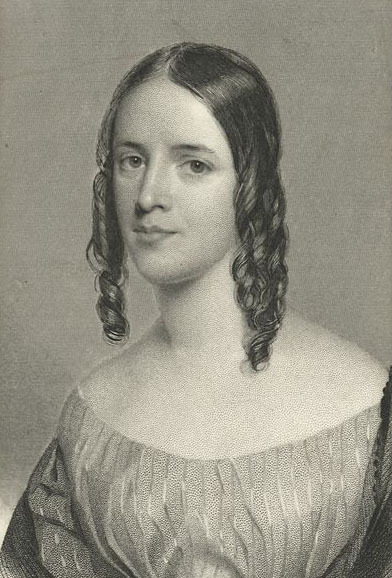
Elizabeth Fries Lummis Ellet (1818-77)
image via Wikipedia <http://en.wikipedia.org/wiki/Elizabeth_F._Ellet>
エレット Mrs. E.[lizabeth] F.[ries] Ellet, 1818-77 は 1809年1月19日生れのポーの10歳近い年下の女性で、ポーの人生を彩った女性たちのひとりでした。エレットは詩人で評論家で、ニューヨークのいわゆるブルーストッキング(青鞜派)の女性文学者でした。ポーに恋心を抱きますが、、ポーが彼女の気持ちを拒絶して彼女からの情熱的な一連の手紙を返したときに、愛は憎しみに変わります。晩年のポーによるエレット評は、二人の関係を激しく物語っています――「あらゆる悪鬼のなかで最も悪意があり有害なもの――その忌まわしい恋心を軽蔑とともに拒む以外自分にはできなかった女 The most malignant and pertinacious of all fiends―a woman whose loathsome love I could do nothing but repel with scorn」。ちなみにポーがいとこのヴァージニア (1822-47) と結婚するのは1836年3月のことですが、1847年の妻の病没の数年前から、ポーの女性関係はなかなか複雑な様相を呈することになります(エレットの場合は1845年に南部に夫を残してニューヨーク市で文筆活動をするようになり、そこで直接にポーやマーガレット・フラーらと交流するようになるのでした)。
//////////////////////////////////////////////////////////
Zinzendorff, and other Poems. By Mrs. L. H. Sigourney, New York: Published by Leavitt, Lord & Co. 1836.
Poems — By Miss H. F. Gould, Third Edition. Boston: Hilliard, Gray & Co. 1835.
Poems; Translated and Original.
By Mrs. E. F. Ellet.
Philadelphia:
Key and Biddle. 1835.
[Mrs. Ellet]
Many but not all of the poems in Mrs. Ellet's volume, likewise, have been printed before—appearing, within the last two years, in different periodicals. The whole number of pieces now published is fifty seven. Of these thirty-nine are original. The rest are translations from the French of Alphonse de Lamartine and Beranger—from the Spanish of Quevedo and Yriarte—from the Italian of Ugo Foscolo, Alfieri, Fulvio Testi, Pindemonte, and Saverio Bettinelli, —and from the German of Schiller. As evidences of the lady's acquaintance with the modern languages, these translations are very creditable to her. Where we have had opportunities of testing the fidelity of her versions by reference to the originals, we have always found reason to be satisfied with her performances. A too scrupulous adherence to the text is certainly not one of her faults—nor can we yet justly call her, in regard to the spirit of her authors, a latitudinarian. We wish, however, to say that, in fully developing the meaning of her originals, she has too frequently neglected their poetical characters. Let us refer to the lady's translation of the Swallows. We have no hesitation in saying, that not the slightest conception of Pierre Jean de Beranger, can be obtained by the perusal of the lines at page 112, of the volume now before us.
Bring me, I pray—an
exile sad—
Some token of that valley bright,
Where in my sheltered childhood glad,
The future was a dream of light.
Beside the gentle stream, where swell
Its waves beneath the lilac tree,
Ye saw the cot I love so well—
And speak ye of that home to me?
We have no fault to find with these verses in themselves—as specimens of the manner of the French chansonnier, we have no patience with them. What we have quoted, is the second stanza of the song. Our remarks, here, with some little modification, would apply to the Sepulchres of Foscolo, especially to the passage commencing
Yes—Pindemonte!
The aspiring soul is
fired to lofty deeds
By great men's monuments, &c.
They would apply, also, with somewhat less force, to Lamartine's Loss of the Anio, in the original of which by the way, we cannot perceive the lines answering to Mrs. E's verses.
All that obscures thy
sovereign majesty
Degrades our glory in degrading thee.
Quevedo's Sonnet Rome in Ruins, we happen to have by us at this moment. The translation in this instance is faultless, and combines, happily, a close approximation to the meaning of the original, with its quaint air and pompous rhythm. The Sonnet itself is a plagiarism entire, from Girolamo Preti. The opening lines of Quevedo,
Pilgrim! in vain thou
seekest in Rome for Rome!
Alas! the Queen of nations is no more!
Dust are her towers, that proudly frowned of yore,
And her stern hills themselves have built their tomb,
are little else than the
Roma in Roma non è
In se
stessa cadeo morta e sepolta, &c.
of Girolamo. But this is no concern of Mrs. Ellet's.
Of the original poems, which form the greater part of the volume, we have hardly been able to form an opinion, during the cursory perusal we have given them. Some of them have merit. Some we think unworthy of the talents which their author has undoubtedly displayed. The epigram, for example, at page 102 is rather a silly joke upon a threadbare theme, and, however well it might have suited Mrs. Ellet's purpose to indite it, she should have had more discretion than to give it permanency in a collection of her poems.
Echo was once a love
sick maid
They say: the tale is no deceiver.
However a woman's form might fade
Her voice would be the last to leave her!
The tragedy (Teresa Contarini) at the end of the volume, "is founded," says the authoress, "upon an incident well known in the history of Venice, which has formed the material for various works of fiction." Mrs. E. has availed herself of a drama of Nicolini's in part of the first scene of the first act, and in the commencement of the fifth act. The resemblance between the two plays is, however, very slight. In plot—in the spirit of the dialogue—and in the range of incidents they differ altogether. Teresa Contarini was received with approbation at the Park Theatre in March 1835, —Miss Philips performing the heroine. We must confine ourselves to the simple remark, that the drama appears to us better suited to the closet than the stage.
In evidence that Mrs.
Ellet is a poetess of no ordinary rank, we
extract,
from page 51 of her volume, a little poem rich in vigorous expression,
and full of solemn thought. Its chief merits, however, are condensation
and energy.
Hark—to the midnight
bell!
The solemn peal rolls on
That tells us, with an iron tongue,
Another year is gone!
Gone with its hopes, its mockeries, and its fears,
To the dim rest which wraps our former years.
Gray pilgrim to the
past!
We will not bid thee stay;
For joys of youth and passion's plaint
Thou bear'st alike away.
Alike the tones of mirth, and sorrow's swell
Gather to hymn thy parting. —Fare thee well!
Fill high the cup—and
drink
To Time's unwearied sweep!
He claims a parting pledge from us—
And let the draught be deep!
We may not shadow moments fleet as this,
With tales of baffled hopes, or vanished bliss.
No comrade's voice is
here,
That could not tell of grief—
Fill up! —We know that friendship's hours,
Like their own joys—are brief.
Drink to their brightness while they yet may last,
And drown in song the memory of the past!
The winter's leafless
bough
In sunshine yet shall bloom;
And hearts that sink in sadness now
Ere long dismiss their gloom.
Peace to the sorrowing! Let our goblets flow,
In red wine mantling, for the tears of wo!
Once more! A welcoming
strain!
A solemn sound—yet sweet!
While life is ours, Time's onward steps
In gladness will we greet!
Fill high the cup! What prophet lips may tell
Where we shall bid another year farewell!
With this extract, we close our observations on the writings of Mrs. Ellet—of Miss Gould—and of Mrs. Sigourney. The time may never arrive again, when we shall be called upon, by the circumstances of publication, to speak of them in connexion with one another. [Southern Literary Messenger, January 1836]
ポーが書評した本 (10) 『サミュエル・ドル―伝』 (1835) Books Reviewed by Poe (10): _The Life of Samuel Drew_ by Jacob Halls Drew [ポーの書評 Poe's Book Reviews]
The Life, Character, and Literary Labours of Samuel Drew, A. M. By His Eldest Son [Jacob Halls Drew]. New York: Harper, 1835. 363pp.
長男の筆になる 〔ジェイコブ・ホールズ・ドル―〕 『サミュエル・ドル―の生涯、人柄、そして文筆』 ニューヨーク:ハーパー、1835年。
E-text at Internet Archive [University of Wisconsin; MSN] <http://www.archive.org/stream/lifecharacteran02drewgoog#page/n8/mode/2up>
同じ年にロンドンでは第2版が出ています―― The Life, Character, and Literary Labours of Samuel Drew, A. M. By His Eldest Son. Second Edition. London: Fisher, Son, and Co., 1835. <http://www.archive.org/stream/lifecharacterlit00drew#page/n5/mode/2up> 543pp.
ポーは詩人として出発するわけですけど、詩では生計が成り立たず、散文に、小説に、批評に、編集に仕事を求めていきます。最初の短篇小説「壜のなかの原稿 MS. Found in a Bottle」を懸賞に応募して100ドルをもらったのが1833年10月。翌1834年の2月に死の近い義父のジョン・アランを訪ね、追い払われ、金のないポーを、友人の作家ジョン・ペンドルトン・ケネディーが新しい雑誌『サザン・リテラリー・メッセンジャー』の編集者トマス・W・ホワイトに紹介しました。短篇小説「ベレナイシィ」や「モレラ」、いくつかの批評が雑誌に載るようになるのは1835年春のことで、8月には編集補助として雇われ、1836年から、ホワイトと反りがあわなくなって(ポーの飲酒問題もあって)決別する(クビになる)、1837年1月まで中心的な編集者として旺盛な執筆活動をします。
で、最初期の評論は、ポーのものがどれか必ずしも断定できないところがあるのですけれど、とりあえず、もっとも信頼できるポーリン編の次の本にしたがって、選んでいこうと思っています。――
[Collected Writings of Edgar Allan Poe, Volume 5] Writings in The Southern Literary Messenger: Nonfictional Prose. Ed. Burton R. Pollin and Joseph V. Ridgely. New York: Gordian, 1997.
ポーの最初の批評が載ったのは1835年4月号の『サザン・リテラリー・メッセンジャー』誌の456ページから459ページにかけて、 "Critical Notices" 18篇のうちのいくつか(可能性としては17篇)がポーのものと推測されています。証拠を云々するのはやめて、ただ参照用に書き留めたいと思います。最初の、別のひとの筆と思われる、アーヴィングの小説の書評と、ふたつめとみっつめの、雑誌 North American Review と London Quarterly Review を評している文章は落とします。
/////////////////////////////////////
The Life of Samuel Drew, the shoemaker and philospher of Cornwall, by his son, is published by Harper & Brothers, and consists of 360 pages. Drew was an extraordinary man, whose works, especially his theological ones, have gained him no little celebrity. It now appears that he had much to do with the writings attributed to Dr. Coke. [Southern Literary Messenger, April 1835: 458]
これだけです。
これだけなら、訳しちゃおうかな。
(コーンウォールの靴屋にして哲学者『サミュエル・ドル―の生涯』は息子の手になり、ハーパー&ブラザース社刊の360ページの本である。ドル―は非凡な人で、とりわけ神学関係の著作によって著名となった。コーク博士のものとされる著作におおいにかかわっていたらしいことがわかる。)
コークというのは Thomas Coke, 1747-1814 で、サミュエル・ドル― Samuel Drew,1765-1833 同様に神学者で文人でした。ふたりはメソディズムでつながっています。コークの死後、ドル―は評伝を書いています――Life of the Rev. Thomas Coke (1817) <http://www.archive.org/details/lifeofrevthomasc005485mbp>
ポーが書評を書いているドル―伝をパラパラ眺めてみましたが、コークの著作とドル―の筆について定かなことはまだ言えません。
ところで息子(Jacob Halls Drew) は自分を "the biographer" (伝記作者)と呼び、お父さんのことは "Mr Drew" と記しています。 1861年には、 Samuel Drew, M. A., the Self-Taught Cornishman: A Life Lesson. By His Eldest Son. として父親の評伝を書きあらためています。―― <http://www.archive.org/stream/samueldrewselft00drewgoog#page/n8/mode/2up> むろん、エドガー・アラン・ポーは2冊目の本については知ったことではなく1849年に死んでいますけれど、ちょっとポーのジョン・アラン John Allan, 1779-1834への複雑な思いを思うと複雑です。
ポーが書評した本 (11) 『北米評論』 (1835) Books Reviewed by Poe (11): _North American Review_ (April 1835) [ポーの書評 Poe's Book Reviews]
本じゃなくて雑誌なんですけれど、入れちゃいます。同時代の雑誌自体の様子を見るのも意味があるかと思いますし。
North American Review. April, 1835 (vol. 40, no. 87)
『ノース・アメリカン・レヴュー』 1835年4月号 (第40巻、87号)
A) E-text at Internet Archive [University of Pittsburgh Library System]
Volume: v.40:no.86/87
Subject: North American review and miscellaneous journal
Publisher: Boston: O. Everett <http://www.archive.org/stream/northamericanrev408687bost#page/268/mode/2up>
B) E-texts at Making of America by Cornell University Library <http://digital.library.cornell.edu/cgi/t/text/text-idx?c=nora;cc=nora;view=toc;subview=short;idno=nora0040-2>
Contents | |
ポーの(じゃないかもしらんのだけれど)「書評」は、前の記事の(9)と(10) と同じく、『サザン・リテラリー・メッセンジャー』誌の1835年4月号の "Critical Notices"中のものです。一覧を並べておくと以下の18のreview が載ったのでした。――
* Review of Washington Irving's The Crayon Miscellany [これはポーではなくて "Sparhawk" の筆であるとほぼ確定しています]
* Review - North American Review
* Review - The London Quarterly Review
* Review of Jacob H. Drew - The Life, Character, and Literary Labours of Samuel Drew, A. M.
* Review of Henry Lee - The Life of the Emperor Napoleon
* Review of George H. Borrow - Celebrated Trials of All Countries
* Review of Andrew Reed - No Fiction. A Narrative founded on recent and interesting facts
* Review of Laure Saint-Martin Junot - Memoirs of Celebrated Women of All Countries
* Review of Charlotte Anley - Influence, a Moral Tale
* Review of Charles Whitehead - Lives and Exploits of English Highwaymen, Pirates and Robbers
* Review of Laughton Osborn - Confessions of a Poet
* Review - The Language of Flowers
* Review of Maria and Richard Lovell Edgeworth - Practical Education
* Review of James B. Fraser - The Highland Smugglers
* Review of John G. Lockhart - Valerius
* Review - An Account of Col. Crockett's Tour to the North and Down East
* Review of Susanna Warfield - Illorar de Courcy
* Review of Charles Fenno Hoffman - A Winter in the West
North American Review [NAR] はボストンで1815年に発刊されたアメリカの最初の総合文芸誌で、1930年代末に休刊になったのが1960年代に復刊されて現在も刊行されている、伝統のある雑誌です (NAR Home Page <http://www.northamericanreview.org/>。ボストン文壇と敵対したポーにとっては二重の意味でライバル雑誌ということになるでしょうか。
評者はまず16年前に出たブルクハルトの本の評論が今出ることについて、アメリカの出版状況と批評のありようについて触れます(これは後年のポーの「『ヘリコン山のざわめき』」評 (1841) とか「書評欄への年頭の辞」(1842) と響きあうところあるように思われ)。それからいくつかの評論について長短のコメントを加えています。個人的に興味深いのはコールリッジに関して、"psychological" と (自分の読みが間違っていなければ心理学を指して) "science" という言葉を使ってあれこれ長く書いているところ。不当な評価だと文句がつけられている『ポンペイ最後の日』を書いたブルワー=リットンの才能をポーは高く買っていて、いくつも評論を書くことになることも思い出しました(まあ、褒(ほ)めたり貶(けな)したりという対象かもしれませんけど)。
North American Review.―The April number is for the most part excellent. But we are forcibly reminded by it of a defect in the Reviews of this country, which it seems to us, might with some little exertion, be remedied. The fault to which we allude, is their tardiness in noticing the publications of the day. In this number of the North American, we find several pages devoted to a review of Burkhardt's Travels in Africa, which have been before the public sixteen years, while the crowd of new works of undoubted merit which fill our book stores, have not as yet, with but few exceptions, attracted the attention of the reviewers. In this book-making age, we are aware that it is impossible for a Quarterly to review the twentieth part of the productions constantly issuing from the press: but if, as we suppose, it is the design of these periodicals to direct the taste of the public in every department of science and literature, surely they should contain reviews of such works selected from the mass, as are best worthy of attention; and should endeavor to keep pace with the stream of publication. We can see little value in a review of a book after every reading man in the community has perused it, and formed his opinion upon its merits. Thus to lag behind the march of current literature, deprives the criticisms of the reviewer of much of their value and weight. In the instance of which we have alluded, it might well be asked whether the travels of Burkhardt, English reviews of which we read ten or twelve, or more years ago, could have the same claim upon the public interest as the newer works of Burnes, Jacquemont, Bennet and many others, whose books possess the charm of novelty? We subjoin the contents of the April number: 1. Politics of Europe : 2. Coleridge : 3. Mineral Springs of Nassau : 4. Life of G. D. Boardman : 5. National Gallery : 6. Italy : 7. Last Days of Pompeii : 8. Immigration : 9. Burkhardt's Travels in Africa : 10. Popular Education.
The first article contains a spirited review of the political events in France since the revolution of 1830, and of the foreign and internal policy of Louis Phiippe. The progress of the juste milieu system is well delineated, and a forcible picture is drawn of the present postue of the French government. We do not entirely coincide with the writer's ideas of the onward course of the cause of liberty, (or perhaps more correctly, of revolution) in France; but consider the article generally correct and instructive. That on Coleridge is admirable: and we heartily rejoice that in a work so much looked up to in England as is the North American, for the expression of our literary opinions, justice so ample should have been done to that extraordinary mind. A Baltimore newspaper, in allusion to the article in question, speaks of "the pitiful shifts to which the reviewer is driven to account for a fact which he admits, viz.―that there is but here and there an individual who understands him," [Coleridge.] "What stronger proof do we want," says the journalist, "of that confusion of thought and mysticism with which he has been charged?" We think far stronger proofs are necessary to support the accusation. That but few comprehend the metaphysical treatises of Coleridge, is owing to the simple fact, that few are so thoroughly versed in psychological knowledge as to maintain a position in the van of the science, the post universally acceded to Coleridge by the learned in ethics. It is for this class of men that he has written, and in whose applauses he has received a plentiful reward. These, at least, will not hesitate to say that so far from being justly charged with confusion of thought, and its consequence confusion of expression, no man who ever lived thought more distinctly even when thinking wrong, or more intimately felt and comprehended the power of the niceties of words. That his philosophical disquisitions are abstruse, is the fault of the subjects, and not of the language in which he has treated them, than which none can be more lucid or appropriate.
The article on Italy is interesting―also that on the National Gallery. In the notice of the Last Days of Pompeii, justice is by no means done to that most noble of modern novels. [Southern Literary Messenger, April 1835: 458]
////////////////////////////////////////
The Norh American Review [Browse Journals] @Cornell University Library Making of America Collection <http://digital.library.cornell.edu/n/nora/nora.html> 〔Volumes:1-171, and two INDEX vols. (1815 - 1900)〕
ポーが書評した本 (12) 『ロンドン・クウォータリー・レヴュー』 (1835) Books Reviewed by Poe (12): _London Quarterly Review_ (February 1835) [ポーの書評 Poe's Book Reviews]
前の記事「ポーが書評した本 (11) 『北米評論』 (1835) Books Reviewed by Poe (11): _North American Review_ (April 1835)」に続いて、ポーの最初期の批評(と想定されている文章)の中から、他の雑誌の紹介記事(『サザン・リテラリー・メッセンジャー』誌1835年4月号 "Critical Notices" 458ページ)。
London Quarterly Review (American Edition). February and April, 1835 (vol. 53). New York: Theodore Foster.
『ロンドン・クウォータリー・レヴュー』 1835年2・4月号 (第53巻)
下のE-textはGoogle Booksでなんとか見つけ出したもの。―― ;
と、苦労して貼り付けたのち、探索をつづけたらば、 Hathi Trust Digital Library というディジタル・ライブラリーに、インディアナ大学図書館とニューヨーク市立図書館所蔵のオリジナルに基づく、2種類の通巻に近いようすの電子ファイルがありました。
数字がばらばらなのは、volume 53 = numbers 105+106みたいな関係みたいです。
この雑誌についてアレコレ調べて書きたいのですけれど、長くなりそうなので(もう十分長くなっているので)、イギリスの数種の雑誌の記事をもらってきてアメリカ版として編集したもの、とだけ記しておきます(ポーの説明だと、"the excellent American Edition of the London, Edinburg, Foreign and Westminster Reviews, combined")。
この雑誌でもコールリッジがとりあげられていますけれど(『サザン・リテラリー・メッセンジャー』の(ポーの)書評は、雑誌の装丁や体裁以外はもっぱらコールリッジの記事しかとりあげていません)、ロマン派第一世代のコールリッジ Samuel Taylor Coleridge, 1772-1834(年7月25日) は、第二世代のキーツ John Keats, 1795-1821 やシェリーPercy Bysshe Shelley, 1792-1822 が若死にしたあとも長生きして、 この『サザン・リテラリー・メッセンジャー』誌の記事の前年の夏に亡くなっていたのでした。
///////////////////////////////
The London Quarterly Review for February, American Edition, No. 1, Vol. 2. is printed on good paper, with excellent type. It contains, 1. Wanderings in New South Wales, by Geroge Bennet, Esq. F. L. S. Fellow of the Royal College of Surgeons : 2. Correspondence of Victor de Jacquemont : 3. Population of Great Britain and Ireland : 4. Coleridge's Table Talk : 5. Egypt and Thebes : 6. Rush on the Prophesies : 7. The Church and the Voluntary System : 8. Recent German Belles Lettres : 9 England, France, Russia and Turkey : 10. Sir Robert Peel's Address. The eighth article contains muchh information on a subject with which Americans are, for the most part, indifferently conversant. Coleridge's Table Talk is highly interesting, as every authentic fragment of his sentiments and opinions must be. The work reviewed in this article, is published by Mr. Henry Coleridge, a near relative of the departed philosopher and poet, and is made up from notes of numerous conversations, taken down by the publisher immediately after their occurence. They bear the impress of Coleridge's mind, will be read with interest by all classes, and probably do more to make the general reader acquainted with him and his opinions, than all else that has been written. ―We take this opportunity of noticing the excellent American Edition of the London, Edinburg, Foreign and Westminster Reviews, combined. It does much honor to Mr. Foster of New York, the publisher; and the compression of matter is such, without being printed too fine, as to give to subscribers for the sum of eight dollars, these four periodicals for which upwards of twenty dollars was formerly paid. The paper, type, and excution, are good. [Southern Literary Messenger, April 1835: 458]
ポーが書評した本 (13) 『皇帝ナポレオンの生涯』 第1巻 (1835) Books Reviewed by Poe (13): _The Life of the Emperor Napoleon_ by H. Lee (1835) [ポーの書評 Poe's Book Reviews]
続いて、ポーの最初期の批評(と想定されている文章)の中から、順番でいうと、雑誌紹介2篇に続く『サミュエル・ドル―伝』のつぎの記事(『サザン・リテラリー・メッセンジャー』誌1835年4月号 "Critical Notices" 458ページ)。
The Life of the Emperor Napoleon. Vol. 1. By H. Lee. New York: Charles de Behr, 1835. xvi + 586pp.
H・リー著 『皇帝ナポレオンの生涯』 ニューヨーク: チャールズ・ド・ベア、1835年
長いタイトルは、The Life of the Emperor Napoleon: with an appendix, containing an examination of Sir W. Scott's "Life of Napoleon Bonaparte;" and a notice of the principal errors of other writers, respecting his character and conduct (1835)
E-text at Internet Archive [Columbia University Libraries; MSN] <http://www.archive.org/stream/lifeofemperornap01leeh#page/n11/mode/2up>
書評は、この本が他のナポレオン伝記作家(とりわけウォルター・スコット Walter Scott, 1771-1832 〔The Life of Napoleon Buonaparte (1827)〕とジョン・ギブソン・ロックハート John Gibson Lockhart, 1794-1854 〔History of Napoleon (1829); ちなみに1820年にスコットの娘婿になり Memoirs of the Life of Walter Scott (1837-38) を書くことになるスコットランドの著述家〕)、のあまたある誤りを訂正するものとして出版されており興味をそそること、そして検出・訂正された間違いはなるほど重大なものがたくさんあるのだけれど、たいてい著者は露骨に批判をし、揚げ足取りの霊にあやつられているようで残念に思われること、とりわけサァ・ウォルター・スコットに対する酷評の調子には異議を禁じえないこと(もっとやらかいことばのほうが目的を美しいものとしただろうこと、を述べ、最後に、この本の書評を準備したのだけれども、それは次号に延期せざるを得なかったと書いています。
しかし、その後の『サザン・リテラリー・メッセンジャー』誌に、書評が載ることはありませんでした。また、原著は「第1巻」となっていますが、第2巻が出ることもなかったのでした。
著者のヘンリー・リー Henry Lee, 1787-1837 はアメリカ人で、トマス・ジェファーソンやアンドルー・ジャクソンなどアメリカ人の本も書いている人です(ジャクソンが大統領になるときにブレインとして動き、就任演説も執筆したとか、また、1830年ごろからはフランスで過ごし、客死したとか)。〔Internet Archive の検索結果 <http://www.archive.org/search.php?query=creator%3A%22Lee%2C+Henry%2C+1787-1837%22>/Open Library <http://openlibrary.org/authors/OL1964405A/Lee_Henry>〕また、例によってかどうか、この本の安易なリプリント版が各社から現在出ているようです。<http://www.amazon.co.jp/s/ref=nb_sb_noss?__mk_ja_JP=%83J%83%5E%83J%83i&url=search-alias%3Denglish-books&field-keywords=Henry+Lee&x=0&y=0#/ref=nb_sb_noss?__mk_ja_JP=%E3%82%AB%E3%82%BF%E3%82%AB%E3%83%8A&url=search-alias%3Denglish-books&field-keywords=Henry+Lee++Napoleon&rh=n%3A52033011%2Ck%3AHenry+Lee++Napoleon>
The Life of the Emperor Napoleon, Vol. 1, by H. Lee. New York, Charles De Behr. This work has great merits and remarkable faults. Published ostensibly as a corrector of the numerous errors of other biographers of Napoleon, and especially those of Sir Walter Scott and Lockhart, it cannot but be read with interest. The errors detected and set right, are numerous and important. In most instances Mr. Lee clearly makes out his charges―in some we are sorry to see that he seems to be governed by a spirit of captiousness: And we cannot but object to the tone of his strictures upon Sir Walter Scott. Milder language would better have graced his cause. We have prepared a review of this work, which we are compelled to postopone to the next number of the Messenger. [Southern Literary Messenger, April 1835: 458]
ポーが書評した本 (14) 『万国著名裁判』 (1835) Books Reviewed by Poe (14): _Celebrated Trials of all Countries_ (1835) [ポーの書評 Poe's Book Reviews]
続いて、ポーの最初期の批評(と想定されている文章)の中から、順番でいうと、雑誌紹介2篇に続く『サミュエル・ドル―伝』のつぎの『ナポレオン伝』のつぎの記事(『サザン・リテラリー・メッセンジャー』誌1835年4月号 "Critical Notices" 458ページ)。
Celebrated Trials of all Countries, and remarkable cases of Criminal Jurisprudence, selected by a Member of the Philadelphia Bar. Philadelphia: E. L. Carey and A. Hart. 596pp.
フィラデルフィア法曹界の一人が選んだ 『万国著名裁判と際立った犯罪判決事例』 フィラデルフィア: E・L・ケアリーとA・ハート、1835年
title.jpg)
E-text @Internet Archive [Lincoln Financial Collection; The Institute of Museum and Library Services through
an Indiana State Library LSTA Grant] <http://www.archive.org/stream/celebratedtrials00smit#page/n3/mode/2up>
Burton Pollin and Josephh V. Ridgely, ed., Writings in The Southern Literary Messenger (New York: Gordian, 1997) は、匿名の著者を [George H. Borrow] と補っているのだけれど、Internet Archive はこぞって John Jay Smith (1798-1881) を著者としています。その典拠はCohen, M.L. のBibliography of Early American Law という文献目録にあるらしい。
評者(ポーでなければSparhawk)は、犯罪の裁判記録は新聞に散在したり古い報告書の中に埋没したりして、一般読者にはほとんど近づきがたいものとなっているので、このような本はおおいに望まれていたものだ、と述べます。1588年から現在にいたる内容には、サァ・ウォルター・ローリー (Sir Walter Raleigh, 1552-1618) 〔エリザベス女王にかわいがられたけれどジェイムズ1世の時代になって反逆罪に問われ処刑〕、ストラフォード (1st Earl of Strafford, 1593-1641) 〔チャールズ1世の腹心として専制政治を助けたため長期議会の弾劾を受け処刑〕、など有名な裁判から、その他興味深く、歴史的な価値のあるものまで豊富だけれど、時間順序ということをまったく考慮せずにまとめられているのが残念なところで、編者は選んだだけであとは印刷に任したのではないか。配列 (arrangement) に難がある。犯罪の判例の歴史とは、市民の自由の進歩の、そして、人間精神の拡大の、歴史であるのだから、残念なのだ。続刊がほのめかされているけれど、この欠点が修正されることを望みたい、と〆ています。
1588年の記録というのはいわゆる魔女裁判で、witch として告発された人について短く紹介しているものですけれど、記述の中身は薄いとはいえ魔女裁判に関しては554ページから575ページにわたって、記載されています(アメリカのセイレムの魔女狩りについてはほんの少しだけ)。だから88扱った裁判のうち15が魔女がらみ。
Celebrated Trials of all Countries, and remarkable cases of Criminal Jurisprudence, selected by a Member of the Philadelphia Bar. Philadelphia, E. L. Carey and A. Hart. Such a book as this was much wanted. The records of criminal trials were scattered through the newspapers or buried in some huge tomes of antique law reports, almost inaccessible to the ordinary reader. And this book seems fitted to supply the deficiency to a considerable extent. It is a large octavo, and contains a selection of criminal trials from the early period of 1588, down to the present day, among them some of the most celebrated cases on record, such as that of Sir Walter Raleigh in 1602, of the Earl of Strafford in 1643, of Alexis Petrowitz Czarowitz in 1815, of the rebels, Kilmarnock, Cromartie, Balmerino, &c. in 1745, and others of equal interest―the judicial proceedings in relation to which, belong to history. The contents of the work are highly interesting, but we cannot withhold our censure of their arrangement. The trials are huddled together without the slightest attention to chronological order; and it would seem that the gentleman of the Philadelphia Bar, who is made responsible for the compilation of the work, could merely have selected the several cases leaving the printer to arrange them as he pleased. The consequence is, that the reader finds himself shifting backward and forward, from century to century, in a complete medley of dates. This is to be lamented, because the history of criminal jurisprudence is a history of the progress of civil liberty, and of the expansion of the human mind. And the interest which we find in tracing the progress of just and equitable rules in the trials of malefactors, is marked by this defect of arrangement. As future volumes of this work are partly promised, it is to be hoped that in them this fault will be amended. [Southern Literary Messenger, April 1835: 458]
ポーが書評した本 (15) アンドルー・リードの『ノー・フィクション』 (1818; 1835) Books Reviewed by Poe (15): _No Fiction_ by Andrew Reed (1818; 1835) [ポーの書評 Poe's Book Reviews]
続いて、ポーの最初期の批評(と想定されている文章)の中から、順番でいうと、雑誌紹介2篇に続く『サミュエル・ドル―伝』のつぎの『ナポレオン伝』のつぎの『万国著名裁判』のつぎの記事(『サザン・リテラリー・メッセンジャー』誌1835年4月号 "Critical Notices" 458ページ)。
Andrew Reed. No Fiction: A Narrative Founded on Recent and Interesting Facts. New Edition. New York: Harper and Brothers, 1835.
アンドルー・リード著 『ノー・フィクション――最近の興味深い事実に基づいた物語』 新版 ニューヨーク: ハーパー、1835年
アンドルー・リード Andrew Reed, 1787-1862 はロンドンの会衆派の牧師で、社会改良家、博愛主義者として知られた人。原著の初版は1818年にロンドンで出版されたようです。現時点で、いくら探しても、Web上にはアメリカ版が見つかりません。1818年初版も見つからず、1820年の改訂第3版の2巻本がInternet Archive には入っていました。――
Andrew Reed, No Fiction: A Narrative, Founded on Recent and Interesting Facts. Third edition, corrected. Volume 1. London: Francis Westley, 1820. 327pp. E-text@ Internet Archive [University of California Libraries; Google] <http://www.archive.org/stream/nofiction00unkngoog#page/n6/mode/2up>
Andrew Reed, No Fiction: A Narrative, Founded on Recent and Interesting Facts. Third edition, corrected. Volume 2. London: Francis Westley, 1820. 340pp. E-text@ Internet Archive [University of California Libraries; Google] <http://www.archive.org/stream/nofictionanarra00reedgoog#page/n8/mode/2up>
短評は、適当に訳すとこんな感じです。――
神学博士アンドルー・リード師による『ノー・フィクション〔虚構に非ず〕――最近の興味深い事実に基づいた物語』がハーパー社から復刊されている。きわめて単純なプロットと、ひとしく単純な言葉遣いで書かれたこの作品は、名声を博している。実際、興味深く、感興をそそる。しかしながら、同じ著者によるより最近の力作、『マーサ』のほうがあらゆる点でずっとすぐれている。
『マーサ』 (Martha)は1821年に発表されています。リードは1834年にアメリカを訪問し、そのときのことを James Matheson と共著で『アメリカ教会訪問記』 (Visit to the American Churches) として社から刊行します。『サザン・リテラリー・メッセンジャー』誌の8月号にはその本の書評が載っており、これもポーの手になるのですけれど、そこで4月のこの短評に言及して、"Our readers will remember Doctor Reed as the author of No Fiction and Martha, both of which publications were favorably noticed in a former number of the Messenger." (読者はリード博士が『ノー・フィクション』と『マーサ』の著者で、どちらも『メッセンジャー』誌の前の号で好意的に評したことを思い出されるだろう)と書かれており、それを覚えているのは当の執筆者(すなわちポー自身)だろう、逆に4月のというのがポーリンの推断です。
リードの本の副題のなかの"narrative" (「物語」、「語り」とふつう訳される)というコトバが、当時の用語としては「実話」であることをむしろ言うのだ、というのは、ポーの場合だと長篇小説『アーサー・ゴードン・ピムの物語 Narrative of Arthur Gordon Pym』に関して学者が注釈してきたところです。
No Fiction. A Narrative founded on recent and interesting facts, by the Rev. Andrew Reed, D. D. has been republished by the Harpers. With a plot of great simplicity, and with diction equally simple, this work has attained much celebrity. It is indeed thrillingly interesting. Martha, a more recent effort by the same writer, is however, in every respect a book of greater merit.
Andrew Reed. No Fiction: A Narrative, Founded on Recent and Interesting Facts. 1818. Rpt. Third edition, corrected. 2vols. London: Francis Westley, 1820. E-text@ Internet Archive [University of California Libraries; Google] <http://www.archive.org/stream/nofiction00unkngoog#page/n6/mode/2up> <http://www.archive.org/stream/nofictionanarra00reedgoog#page/n8/mode/2up>
Andrew Reed. Martha: A Memorial of an Only and Beloved Sister. 1821. Rpt. London: Francis Wesley, 1823. 2 vols. Volume 2: E-text@ Internet Archive [Princeton University; Google] <http://www.archive.org/stream/marthaamemorial01reedgoog#page/n6/mode/2up>
Andrew Reed and James Matheson. A Narrative of the Visit to the American Churches by the Deputation from the Congregational Union of England and Wales. 2 vols. New York: Harper and Brothers, 1835. Volume 1: Etext @ Internet Archive [University of Michigan; Google] <http://www.archive.org/stream/anarrativevisit00mathgoog#page/n4/mode/2up>. Volume 2: E-text@ Internet Archive [Harvard University; Google] <http://www.archive.org/stream/anarrativevisit05mathgoog#page/n6/mode/2up>; [London: Jackson and Walford, 1835][Oxford University; Google] <http://www.archive.org/stream/anarrativevisit00reedgoog#page/n6/mode/2up>
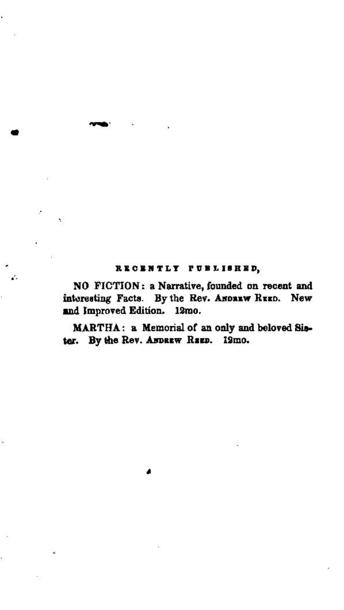
A Narrative of the Visit to the American Churches (Harper, 1835)
3冊(3作品)がハーパー社から同時期に出されたらしいことがわかります。
ポーが書評した本 (16) マダム・ジュノーの『万国著名女性回顧録』 (1834; 1835) Books Reviewed by Poe (16): _Memoirs of Celebrated Women_ by Madame Junot (1834; 1835) [ポーの書評 Poe's Book Reviews]
続いて、ポーの最初期の批評(と想定されている文章)の中から、順番でいうと、雑誌紹介2篇に続く『サミュエル・ドル―伝』のつぎの『ナポレオン伝』のつぎの『万国著名裁判』のつぎの 『ノー・フィクション――最近の興味深い事実に基づいた物語』 のつぎの記事(『サザン・リテラリー・メッセンジャー』誌1835年4月号 "Critical Notices" 458ページ)。
Madame Junot. Memoirs of Celebrated Women of All Countries. Philadelphia: Carey, Lea and Blanchard[, 1835].
マダム・ジュノー著 『万国著名女性回顧録』 フィラデルフィア: ケアリー・リー・アンド・ブランシャード[、1835年]
ダブランテス公爵夫人、マダム・ジュノーMadame Junot = Laure Saint-Martin Junot, Duchess of Abrantès [duchesse d'Abranès](née Martin de Permond), 1784–1838 は、ナポレオンに仕えた将軍Jean-Andoche Junotの奥さんで、バルザックに励まされて書いた18巻本の Mémoires historiques sur Napoléon Ier, la Révolution, le Directoire, l’Empire et la Restauration (Paris, 1831-34) など、回想録の類をたくさん著わしているようです。
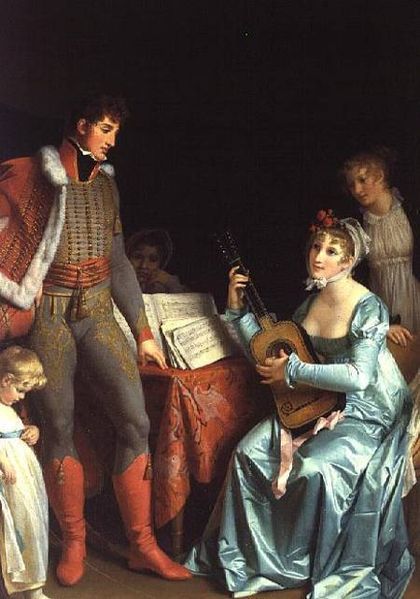
La Duchesse d'Abrantès et le Général Junot (c.1800) by Marguerite Gérard (1761–1837), image via "Laure Junot d'Abrantès," French Wikipedia <http://fr.wikipedia.org/wiki/Laure_Junot_d%27Abrant%C3%A8s>
アメリカ版の前年にロンドンで出版されたイギリス版―― Memoirs of Celebrated Women of All Countries by Madame Junot. With Portraits by the Most Eminent Masters. London: Edward Churton, 1834. 左の扉絵はナポレオンの母親のマリア・レティツィア・ラモリーノ (本文の最初にとりあげられる女性)。
e-text @Open Library <http://openlibrary.org/books/OL6944385M/Memoirs_of_celebrated_women_of_all_countries.>
Memoirs of Celebrated Women of all Countries. By Madame Junot. Philadelphia, Carey, Lea and Blanchard. These memoirs are amusing, and so far we can recommend them highly, but no farther. Their morality is questionable indeed; and they bear upon their face, in a certain pervading air of romance, sufficient evidence of their own inauthenticity. There is a sad mistake too in the title of the work. These are not memoirs of celebrated women in all countries: they are merely Madame Junot's celebrated women in a few particular regions. The greater part of them have no pretensions to celebrity. It has been remarked that the sketch of Marina Minszech will afford a fair sample of the Duchess's biographical style. In this opinion we concur, and as it is a pretty fable, we advise all to read it who have no inclination for the book entire. [Southern Literary Messenger, April 1835: 458]
評者は「万国」ではぜんぜんないことにツッコミを入れています。本に取り上げられている女性は――Maria Letizia Ramolini Bonaparte/ Anna Zingha, Queen of Matamba/ Lady Jane Gray/ Dona Catalina de Erauso/ Beatrice Cenci/ Catherine the First Queen of Russia/ Ann Boleyn/ Baroness de Stael Holstein/ Charlotte Corday/ Josephine Bonaparte/ Mary the Catholic, Queen of England/ Marina Mniszech/ Christina, Queen of Sweden/ Lady Mary Wortley Montagu/ Marie Antoinette/ Mary of Medicis の16人です。書評中、ジュノー夫人の伝記スタイルの典型とされているこれ読んでみればいいよ、と言及されている "Marina Minszech" は Mniszech の綴り間違いです。
ポー学者のポーリンは、綴り間違いは指摘しないけれど、"inauthenticity" の語(OED の初例は1860年) がポーらしい造語だと指摘しています。
ポーが書評した本 (17) シャーロット・アンリーの『感化力――道徳物語』 (1822; 1835) Books Reviewed by Poe (17): _Influence, A Moral Tale_ by Charlotte Anley (1822; 1835) [ポーの書評 Poe's Book Reviews]
続いて、ポーの最初期の批評(と想定されている文章)の中から、順番でいうと、雑誌紹介2篇に続く『サミュエル・ドル―伝』のつぎの『ナポレオン伝』のつぎの『万国著名裁判』のつぎの『ノー・フィクション――最近の興味深い事実に基づいた物語』 のつぎのの『万国著名女性回顧録』のつぎの記事(『サザン・リテラリー・メッセンジャー』誌1835年4月号 "Critical Notices" 458-459ページ)。
[Charlotte Anley] Influence, a Moral Tale, by the author of Miriam. Philadelphia: Key and Biddle, 1835.
[シャーロット・アンリー著] 『ミリアム』の著者による 『感化力――道徳物語』 フィラデルフィア: キー・アンド・ビドル、1835年
シャーロット・アンリー Charlotte Anley, 1796-1893 は、ウィキペディア等、Webの辞典類に記載がないので、図書館で人名事典を調べてみないとなりませんが、とりあえず、 "The Genealogy of the Dumaresq or Dumaresque Family" という家系図のページにつぎのような人物がいて、この女性です。――
Charlotte Anley Born 17 February 1796. Died unmarried Bath 6 April 1893 (5b 396). Left UK on SS Camden 22 Feb 1836, arriving Sydney 2 June 1836. Sent by Elizabeth Fry to investigate conditions of female prisoners. For 18 months she also worked as a governess for her mother's family Australian properties. Sailed to UK in SS North Briton in 1838 and wrote a damning report. She was a Quaker, prison reformer, composer and novelist. <http://www.kittybrewster.com/ancestry/dumaresq.htm>
クウェーカーで、監獄改良家で、作家、小説家。 イギリスで生れてイギリスで亡くなっているようです。オーストラリアの監獄について、1841年にThe Prisoners of Australia: A Narrative (London: J. Hatchard and Son, 1841)を出しています。 Miriam; or, the power of truth. A jewish tale. : By the author of "Influence の初版はどうやら1826年に出版され、Influence: A Moral Tale[for Young People] は1822年に、やはりイギリスで初版が出版されているようです。
現時点で、いくら探しても、Web上にはアメリカ版が見つかりません。1822年の初版の1巻のみと、1824年の第2版の2巻本がInternet Archive には入っていました。――
[Charlotte Anley,] Influence: A Moral Tale for Young People. By a Lady. 2nd edition. Volume 1. London: L. B. Seeley, 1824. 206pp. E-text@ Internet Archive [Oxford University; Google] <http://www.archive.org/stream/influencebyalad01anlegoog#page/n6/mode/2up>
[Charlotte Anley,] Influence: A Moral Tale for Young People. By a Lady. 2nd edition. Volume 2. London: L. B. Seeley, 1824. 327pp. E-text@ Internet Archive [Oxford University; Google] <http://www.archive.org/stream/influencebyalad00anlegoog#page/n6/mode/2up>
[Charlotte Anley,] Influence: A Moral Tale for Young People. By a Lady. Volume 1. London: L. B. Seeley, 1822. 255pp. E-text@ Internet Archive [Harvard University; Google] <http://www.archive.org/stream/influencebyalad01anlegoog#page/n6/mode/2up>
Influence, a Moral Tale, by the author of Miriam. Philadelphia, Key and Biddle. There is an air of modest tranquillity about this book which we admire. It is a pleasing tale addressed to the young, to serious parents, and to friends―and it pretends to be nothing more. Its style too is unobjectionable. If the work developes [sic → develops] in the author no extraordinary capabilities, it is, we think, because there was no intention of developing them.
アメリカ版が見られないので、なんとも言えませんけれど、副題のなかの "For Young People" は評者が誤って落としたのか、あるいはアメリカ版が "A Moral Tale" だけとしたのか。
////////////////////////
Miriam; or, The Power of Truth. A Jewish Tale. By the Author of 'Influence'. London, 1826. Rpt. (3rd. ed.) Philadelphia, Key and Biddle, 1836. e-text @Internet Archive [New York Public Library; Google] <http://www.archive.org/stream/miriamorpowertr00anlegoog#page/n5/mode/2up>
The Prisoners of Australia. A Narrative. London: J. Hatchard, 1841. e-text @Internet Archive [Oxford University; Google] <http://www.archive.org/stream/prisonersaustra00anlegoog#page/n6/mode/2up>
ポーが書評した本 (18) ホワイトヘッドの『英国海賊、追剥、盗賊伝』 (1834; 1835) Books Reviewed by Poe (18): _Lives of the English Pirates, Highwaymen and Robbers_ by Whitehead (1834; 1835) [ポーの書評 Poe's Book Reviews]
続いて、ポーの最初期の批評(と想定されている文章)の中から、順番でいうと、雑誌紹介2篇に続く『サミュエル・ドル―伝』のつぎの『ナポレオン伝』のつぎの『万国著名裁判』のつぎの『ノー・フィクション――最近の興味深い事実に基づいた物語』 のつぎの『万国著名女性回顧録』のつぎの『感化力――道徳物語』のつぎの記事(『サザン・リテラリー・メッセンジャー』誌1835年4月号 "Critical Notices" 459ページ)。
[Charles] Whitehead, Lives and Exploits of English Highwaymen, Pirates, and Robbers. Philadelphia: E. L. Carey and A. Hart, 1835.
[チャールズ・]ホワイトヘッド著 『英国の追剥、海賊、盗賊の伝記と手柄』 フィラデルフィア: E・L・ケアリー・アンド・A・ハート、1835年
ホワイトヘッドは、チャールズ・ホワイトヘッド Charles Whitehead, 1804-62 らしい。Wikipedia "Charles Whitehead" <http://en.wikipedia.org/wiki/Charles_Whitehead> は本文数行の短いものだけれど、ウィキペディアの記事の典拠となった"Whitehead, Charles," Dictionary of National Biography (London: Smith, Elder & Co. 1885–1900) は詳しく、本書も言及されている(下線強調付加)。――
WHITEHEAD, CHARLES (1804–1862), poet, novelist, and dramatist, the son of a wine merchant, was born in London in 1804. He began life as a clerk in a mercantile house, but soon adopted literature as his profession. In 1831 he published ‘The Solitary,’ a poem in the Spenserian stanza, showing genuine imagination. The poem won the approval of Professor Wilson in the ‘Noctes Ambrosianæ,’ and of other critics of eminence. In 1834 appeared Whitehead's ‘Lives and Exploits of English Highwaymen’ (probably written some years earlier, the least worthy of his productions), and ‘The Autobiography of Jack Ketch,’ a burlesque biography of the hangman, which contained a remarkable episodical story of serious intent, ‘The Confession of James Wilson.’ Whitehead's vivid blank-verse drama, ‘The Cavalier,’ the plot of which is laid in Restoration times, was produced at the Haymarket Theatre on 15 Sept. 1836, with Ellen Tree and Vandenhoff in the principal parts, and has been revived more than once, notably at the Lyceum Theatre in 1856.
Owing to the success of Whitehead's ‘Jack Ketch,’ Messrs. Chapman & Hall invited him to write the letterpress to a monthly issue of a humorous kind, to which Robert Seymour [q. v.] was to furnish the illustrations. Pleading inability to produce the copy with sufficient regularity, Whitehead recommended his friend Charles Dickens for the work. The publishers acted on the recommendation, and the result was the ‘Pickwick Papers.’ A further point of contact between Whitehead and Dickens consisted in Whitehead's revising in 1846 ‘The Memoirs of Grimaldi,’ which had been edited by Dickens in 1838 under the pseudonym of ‘Boz.’ Whitehead's masterpiece, ‘Richard Savage’ (1842), illustrated by Leech, a romance, partly founded on Dr. Johnson's life of Savage, was much admired by Dickens. It was dramatised, and the play ran for nearly thirty nights at the Surrey Theatre. A new edition of the novel, with an introduction by Harvey Orrinsmith, was published in 1896. Included in ‘The Solitary and other Poems’ (1849), a collected edition of Whitehead's poetical work, is his most remarkable sonnet beginning ‘As yonder lamp in my vacated room,’ which Dante Rossetti described as ‘very fine.’
Whitehead belonged to the Mulberry Club, of which Douglas Jerrold and other wits were members, and was acquainted with all the famous men of letters of his day. When ‘Richard Savage’ appeared he had every prospect of success in literature, but intemperance wrecked his career. He went to Australia in 1857, with the hope of recovering his position. He contributed to the ‘Melbourne Punch,’ and he printed in the ‘Victorian Monthly Magazine’ the ‘Spanish Marriage,’ a fragment of poetic drama possessing considerable merit. Whitehead's personal qualities, despite his infirmities of disposition, endeared him to those who knew him well, and an admirer of his literary talent gave him an asylum at his house in Melbourne, but he furtively made his escape from the restrictions of respectability. He sank into abject want, and died miserably in a Melbourne hospital on 5 July 1862. He was buried in a pauper's grave, and the authorities refused the request made by friends, when they heard for the first time of his sad end, to remove his remains to a fitting tomb. His publisher and warm well-wisher, George Bentley, described him as a ‘refined scholarly man … with thoughtful, almost penetrating eyes.’
Whitehead was a frequent contributor to magazines, particularly to ‘Bentley's Miscellany,’ He also published ‘Victoria Victrix,’ a poem (1838), ‘The Earl of Essex’ (1843), ‘Smiles and Tears,’ a series of collected stories (1847), and ‘A Life of Sir Walter Ralegh’ (1854).
[Mackenzie Bell's Charles Whitehead, a monograph, with extracts from his works.]<http://en.wikisource.org/wiki/Whitehead,_Charles_%28DNB00%29>
「ホワイトヘッドの著作中、最も価値のないもの」とされているw。
書評されたアメリカ版は第1巻のみInternet Archive には入っていました。――
C.[harles] Whitehead, Esq., Lives and Exploits of English Highwaymen, Pirates, and Robbers. Drawn from the Earliest and Most Authentic Sources, and Brought Down to the Present Time. In two volumes. Philadelphia: E. L. Carey and A. Hart, 1835. Vol. 1 207pp. E-text@ Internet Archive [University of Wisconsin; Google] <http://www.archive.org/stream/livesandexploit00unkngoog#page/n8/mode/2up>
1883年に出版された版だと、タイトルの副題のところが違っていて、 "By Capt. Charles Johnson" という人名も賦与されています。ホワイトヘッドは "With Additons by C. Whitehead, Esq." と、追補的な部分のみの執筆に関わるような趣です。――
Lives and Exploits of English Highwaymen, Pirates, and Robbers; Drawn from the Most Authentic Sources, by Capt. Charles Johnson, with Additions by C. Whitehead. Embellished with Twelve Spiritted Engravings. London: Printed for the Booksellers, 1883. [Printed by Walter Scott, "The Kenilworth Press]. 422pp. E-text@ Internet Archive [University of Wisconsin; Google] <http://www.archive.org/stream/livesandexploit00unkngoog#page/n8/mode/2up>
Lives of the English Pirates, Highwaymen and Robbers, by Whitehead. Philadelphia: Carey and Hart. These lines [sic → lives] will be read in spite of all that a too fastidious taste may say to the contrary. We see no very good reason why they should not be. [Southern Literary Messenger, April 1835: 459]
"lines" は "lives" の誤植、というのはポーリンの注です。詩行じゃないからlives ですかね、やはり。
1883年版1巻本で取り上げられる人物伝は、以下のようです――
[ENGLISH HIGHWAYMEN:] Robin Hood; Thomas Dun; Sir Gosselin Denville; Sawney Beane; Thomas Wynne; Thomas Witherington; James Batson; John Cottington, called "The Bonnie Boy"; Captin Philip Staffford; Claude du Vall; Captain Dudley; Jonathan Simpson; William Davis, called "The Golden Farmer"; William Nevison; William Cady; Patrick O'Brien; Thomas Rumbold; Thomas Simpson, called "Old Mob"; John Bird; Thomas Cox; Colonel Jack; Captain Howard; Nathaniel Hawes; Tom Roaland and Frank Osborn; James Whitney; The Waltham Blacks; Timothy Buckeley; Thomas Jones; Arthur Chambers; John Ovet; Captain Evans; THomas Dorbel; Dick Adams; William Gettings, called "the Hereford Boys"; Edward Bonnet; Richard Keele; Will Ogden and Tom Reynolds; John Price; Joseph Blake; Jack Shepherd; Jonathan Wild; Richard Turpin; Henry Cook; Henry Simms, called "Young Gentleman Harry"; James Maclaine; Eugne Aram; George Barrington.
[ENGLISH PIRATES:] Sir Henry Morgan; Captain Avery; Captain Martel; Captain Teach, called "Blackbeard"; Captain Charles Vale; Captain John Rackham; Captain Edward England; Captain Davis; Captain Roberts; Captain Kennedy; Captain WOrley; Captain Lowther; Captain Spriggs; Captain Roche; Captain Gow; Captain Upton; Captain Edward Low; Paul Jones.
しかし、書評の対象となった1835年アメリカ版初版の第1巻はつぎの並びです。―― Robin Hood; Sir Gosselin Denville; Sawney Beane; Thomas Wynne; Thomas WItherington; James Batson; Mulled Sack, alias John Cottington; Captain James Hind; Moll Cutpurse; Captain Philip Stafford; The German Princeses; Claude Du Vall; Captain Dudley; William Nevison; Jonathan Simpson; William Cady; Patrick O'Brien; Thomas Rumbold; The Golden Farmer; Nan Herford; Jack Bird; Old Mob; Tom Cox; Whitney; Tim Buckeley; Tom Jones; Arthur Chambers; Tom Sharp; Harvey Hutchins; Ann Harris; Dick Morris; Stephen Bunce; Jack Ovet; Captain Evans; Tom Dorbel.
本文の最初はどちらもRobin Hood ですけれど、なんか文章が違うみたい。他の人を見ても、ぜんぜん違うみたい。でも無署名の序文 (Preface) は同じ筆者であるかのように、冒頭の1,2の段落を除いて、文章が重なっています。
ついでに見つかった別の海賊・盗賊本もついでに。――
Lives and Exploits of the Most Noted Highwaymen, Robbers and Murderers, of All Nations, Drawn from the Most Authentic Sources and Brought Down to the Present Time. With Numerous Engravings. Hartford: Silas Andrus and Son, 1854. 287pp. e-text @Internet Archive [New York Public Library; Google] <http://www.archive.org/stream/livesandexploit00goog#page/n10/mode/2up>
コネティカット州ハートフォードで1854年に出版。海賊が抜け、追剥と盗賊に加わったのが殺人者 Murderers です。おーこわ。
Claude Du Vall;Sawney Beane; Thomas Wynne; Thomas Witherington; James Batson; Mulled Sack, alias John Cottington; Capt. James Hind; The German Princess; Capt. Dudley; William Nevison; The Golden Farmer; Jonathan Simpson; William Cady; Patrick O'Brien; Thomas Rumbold; Whitney; Tim Buckeley; Tom Jones; Arthur Chambers; Stephen Bunce; Jack Ovet; Tom Dorbel; Dick Adams; William Gettings; Ned Bonnet; Will Ogden and Tom Reynolds; John Price; Jack Shepherd; Richard Turpin; Henry Simms; James Maclaine; Eugene Aram; George Barrington; James Porter.
評者が予言したように、この手の人物伝は読まれつづける、ということかしら。
・・・・・・・・・・・
"Claude Du Val" を見たら、1835年の本の "Claude Du Val" と同じでした。もはや編者・著者名よりも中身とタイトルで勝負、みたいな。 いや、むしろ海賊版ということですかね。(1883年の本の "Claude du Val" は違っているようです。)
lllllllllllllllllllllllllllllllllllllllllllllllllllllllllllllllllllllllllllllllllllllllllllllllllllllllllllllllllllllllllllllllllllllllllllllllllllllllllllllllllllllllllllllllllllllllllllllllll
ポーが書評した本 (19) ロートン・オズボーンの『詩人の告白』 (1835) Books Reviewed by Poe (19): _The Confessions of a Poet_ by Laughton Osborn (1835) [ポーの書評 Poe's Book Reviews]
続いて、ポーの最初期の批評(と想定されている文章)の中から、順番でいうと、雑誌紹介2篇に続く『サミュエル・ドル―伝』のつぎの『ナポレオン伝』のつぎの『万国著名裁判』のつぎの『ノー・フィクション――最近の興味深い事実に基づいた物語』 のつぎの『万国著名女性回顧録』のつぎの『感化力――道徳物語』のつぎの『英国海賊、追剥、盗賊伝』のつぎの記事(『サザン・リテラリー・メッセンジャー』誌1835年4月号 "Critical Notices" 459ページ)。
Anonymous [Laughton Osborn], The Confessions of a Poet by Himself. Philadelphia: Carey, Lea & Blanchard, 1835.
匿名の著者 [ロートン・オズボーン] 『詩人の告白』 フィラデルフィア: ケアリー・リー・アンド・ブランシャード、1835年
ロートン・オズボーン Laughton Osborn, 1809-78 はニューヨークの作家、脚本家、のようで、ポーのエッセイ・シリーズ「ニューヨークの文人たち The Literati of New York City」でもとりあげられることになります (『ゴーディーズ・レイディーズ・ブック Godey's Lady's Book』誌1846年6月号)(そっちを読むと、別の作家のジョン・ニールJohn Neal が著者だとのうわさを信じて勘違いしていたようす)。この、長めの短評は、ポーの "slashing" 〔ムチをふるう, 切りつける; 辛辣な, 痛烈な〕と呼ばれるスタイルの最初のものとされています。
[Review of Laughton Osborn’s Confessions of a Poet] (Southern Literary Messenger, April 1835)
Confessions of a Poet, 2 vols. Carey, Lea and Blanchard. The most remarkable feature in this production is the bad paper on which it is printed, and the typographical ingenuity with which matter barely enough for one volume has been spread over the pages of two. The author has very few claims to the sacred name he has thought proper to assume. And indeed his own idea on this subject seem not to satisfy himself. He is in doubt, poor man, of his own qualifications, and having proclaimed himself a poet in the title page, commences his book by disavowing all pretensions to the character. We can englighten him on this head. There is nothing of the vates [?] about him. He is no poet―and most positively he is no prophet. He is a writer of notes. He is fond of annotations; and composes one upon another, putting Pelican upon Ossa. Here is an example: "Ce n'est pas par affectation que j'aie mis en Francais ces remarques, mais pour les detourner de la connoissance du vulgaire." Now we are very sure that none but le vulgaire, to speak poetically, will ever think of getting through with the confessions: thus there the matter stands. Lest his book should not be understood he illustrates it by notes, and then lest the notes should be understood, why he writes them in French. All this is very clear, and very clever to say no more. There is however some merit in this book, and not a little satisfaction. The author avers upon his word of honor that in commencing this work he loads a pistol, and places it upon the table. He farther states that, upon coming to a conclusion, it is his intention to blow out what he supposes to be his brains. Now this is excellent. But, even with so rapid a writer as the poet must undoubtedly be, there would be some little difficulty in completing the book under thirty days or thereabouts. The best of powders is apt to sustain injury by lying so long "in the load." We sincerely hope the gentleman took the precaution to examine his priming before attempting the rash act. A flash in the pan―and in such a case―were a thing to be lamented. Indeed there would be no answering for the consequences. We might even have a second series of the Confessions. [Southern Literary Messenger, April 1835: 459]
紙質の悪さをまず言い、1巻でおさまるものを2巻にする体裁の才に皮肉を言い、標題で詩人を称しながらすぐに自己否定するおかしさを笑い〔確かに冒頭で自分は詩人ではなく、詩を発表していない、とか書いている〕、注に注を重ね〔16ページの注への注(a)(b)みたいな, あるいは83ページみたいな〕、わけのわからぬフランス語によって注が成立しないことを笑い、初めにタマをこめたピストルをテーブルに置いて自殺をほのめかす著者の滑稽さを嗤います〔書くのがいくら速いからといって、30日じゃ書きあがらんだろうし、そんなにもつ弾薬はないよ、みたいな揶揄をしてます〕。(でも、本を見てみると、オズボーンは全体をフィクションとして書いているようであり、よくわからんところがあります。)
この本はアメリカ初版が見つかりました(まー、再版は出なかったのかもしれません)。――
Anonymous [Laughton Osborn], The Confessions of a Poet by Himself. Philadelphia: Carey, Lea & Blanchard, 1835. Vol. 1. 240pp. e-text @Internet Archive [New York Public Library; Google] <http://www.archive.org/stream/livesandexploit00goog#page/n10/mode/2up>
Anonymous [Laughton Osborn], The Confessions of a Poet by Himself. Philadelphia: Carey, Lea & Blanchard, 1835. Vol. 2. 287pp. e-text @Internet Archive [New York Public Library; Google] <http://www.archive.org/stream/confessionsapoe00osbogoog#page/n293/mode/2up>
///////////////////////////////////////////////
[Laughton Osborn] The Vision of Rubeta: An Epic Story of the Island of Manhattan. With Illustrations, Done on Stone. Boston: Weeks, Jordan, 1838. <http://www.archive.org/stream/visionofrubetaep00osbo#page/n9/mode/2up> 〔ポーリンの注釈によれば『詩人の告白』に対する諸方面からの悪評に対する詩的応酬ということだけれど、よくわかりません〕
[Laughton Osborn] Handbook of Young Artists and Amateurs in Oilpainting Being Chiefly a Condensed Compilation from the Celebrated Manual or Bouvier, with Additional Matter Selected from the Labors of Merimet, De Montabert and Other Distingushed Continental Writers in the Art in Seven Parts .... By and American Artist. New York: John Wiley, 1849. <http://www.archive.org/stream/visionofrubetaep00osbo#page/n9/mode/2up> 〔ほんとうに画家だったのかしら〕
lllllllllllllllllllllllllllllllllllllllllllllllllllllllllllllllllllllllllllllllllllllllllllllllllllllllllllllllllllllllllllllllllllllllllllllllllllllllllllllllllllllllllllllllllllllllllllllllll
ポーが書評した本 (20) 『花言葉』 (1835) Books Reviewed by Poe (20): _The Language of Flowers_ (1835) [ポーの書評 Poe's Book Reviews]
続いて、ポーの最初期の批評(と想定されている文章)の中から、順番でいうと、雑誌紹介2篇に続く『サミュエル・ドル―伝』のつぎの『ナポレオン伝』のつぎの『万国著名裁判』のつぎの『ノー・フィクション――最近の興味深い事実に基づいた物語』 のつぎの『万国著名女性回顧録』のつぎの『感化力――道徳物語』のつぎの『英国海賊、追剥、盗賊伝』のつぎの『詩人の告白』のつぎの記事(『サザン・リテラリー・メッセンジャー』誌1835年4月号 "Critical Notices" 459ページ)。
Anonymous, The Language of Flowers. Philadelphia: Carey, Hart and Co., 1835.
匿名の著者 『花言葉』 フィラデルフィア: ケアリー・ハート・アンド・カンパニー、1835年
調べてみると、おそらく Frederic Shoberl, 1775-1853 の編んだ本を Louise Cortambert という女性が英訳したものではないか。
ポーリンはとりたてて注釈はつけていませんが、20世紀の詩人のリチャード・ウィルバーが、むかしDell という出版社から出たパーパーバック版の世界の詩人のアンソロジーの監修・編者となり、ウィルバー自身が注釈したポーの巻で、ポーの作品に出てくる花が花言葉的な意味を持っているというようなことを注記していたような記憶があります。
[Review of The Language of Flowers] (Southern Literary Messenger, April 1835)
The Language of Flowers, embellished with fine colored engravings. Philadelphia, Carery, Hart and Co. This is a book which will find favor in the eyes of the ladies, and thus par consequence in the eyes of the gentlemen. Its motto is pretty and apposite:
By all those token-flowers that tell
What words can never speak so well.
[Southern Literary Messenger, April 1835: 459]
この版が見つかりませんが、同年にロンドンで出版された本と、前年1834年にやはりロンドンで出版された本は見つかります。タイトルページを見ると、改訂が行なわれたようす。――
Anonymous, The Language of Flowers. London: Saunders and Otley, 1834. 316pp. e-text @Internet Archive [Oxford University; Google] <http://www.archive.org/stream/languageflowers01cortgoog#page/n29/mode/2up>
Anonymous [Revised by the Editor of "Forget Me Not"], The Language of Flowers with Illustrative Poetry; To Which Are Now First Added the Calandar of Flowers and the Dial of Flowers. Fourth Edition. Revised by the Editor of "Forget Me Not." London: Saunders and Otley, 1835. 362pp. e-text @Internet Archive [Oxford University; Google] <http://www.archive.org/stream/languageflowers00cortgoog#page/n46/mode/2up>
で、この1835年のがアメリカ版のもとかな、と思ったのは、1839年にフィラデルフィアで出版されたアメリカ版のタイトルページの記載です。とても美しいe-book です。――
Anonymous [Revised by the Editor of "Forget Me Not"], The Language of Flowers with Illustrative Poetry; To Which Is Now First Added the Calandar of Flowers. Revised by the Editor of "Forget Me Not." Fifth American Edition. Philadelphia: Lea & Blanchard, Successors to Carey & Co., 1839. 360pp. e-text @Internet Archive [Pennsylvania Horticultural Society, McLean Library; LYRASIS Members and Sloan Foundation] <http://www.archive.org/stream/languageofflower00unse#page/40/mode/2up>
3冊でリンクしたページは、春の花アーモンド・ツリーですけれど、微妙に表記が異なります。
もう一冊、1848年に同じ出版社から出た版――
Anonymous [Revised by the Editor of "Forget Me Not"], The Language of Flowers with Illustrative Poetry; To Which Are Now Added the Calandar of Flowers and the Dial of Flowers. Eighth American, from the Tenth London Edition. Revised by the Editor of "Forget Me Not." Philadelphia: Lea & Blanchard, 1848. 374pp. e-text @Internet Archive [Harvard University; Google] <http://www.archive.org/stream/languageflowers00martgoog#page/n52/mode/2up>
lllllllllllllllllllllllllllllllllllllllllllllllllllllllllllllllllllllllllllllllllllllllllllllllllllllllllllllllllllllllllllllllllllllllllllllllllllllllllllllllllllllllllllllllllllllllllllllllll
ポーが書評した本 (21) エッジワースの『実践的教育』 (1798; 1835) Books Reviewed by Poe (21): _Practical Education_ by Maria and Richard Edgeworth (1798; 1835) [ポーの書評 Poe's Book Reviews]
Maria Edgeworth and Richard Lovell Edgeworth. Practical Education. 1798. Rpt. New York: Harper & Brothers, 1835.
マライア・エッジワース、リチャード・ラヴェル・エッジワース共著 『実践的教育』 ニューヨーク: ハーパー、1835年

Joseph Slater, Portrait of Maria
Edgeworth. imege via MyArtPrints <http://www.myartprints.co.uk/a/slater-joseph/portrait-of-maria-edgewor.html>
いまは小説家として(とくにCastle Rackrent (1800)の作家として)知られるマライア・エッジワース Maria Edgeworth, 1768-1849 が父親のリチャードと共著で18世紀末に著わした本の、アメリカでの再刊本。ジャン・ジャック・ルソーの教育論とジョン・ロックの人間論を反映していると いわれます。この父娘の関係もウィリアム・ゴドウィンとメアリー・シェリーのように、また、ブロンソン・オルコットとルイーザ・メイ・オルコットのように(創作に絡んで)複雑そうで興味深いのですが(「醜いわが子――子らよのパート3 My Hideous Progeny: My Chillun, Part 3」参照)、それはまたどこかで。
[Review of Practical Education] (Southern Literary Messenger, April 1835)
Mr. and Miss Edgeworth's Practical Education has been republished by the Harpers. Its character is well established. [Southern Literary Messenger, April 1835: 459]
(Its characters の Its というのはハーパーズ社のことでしょうか。)この版が Internet Archive に見つかります。――
Practical Education. By Maria Edgeworth, Author of "Letters for Literary Ladies," &c. And, by Richard Lovell Edgeworth, F. R. S. and M. R. I. A. Complete in One Volume. New-York: Harper & Brothers, 1835. 549pp. e-text @Internet Archive [New York Public Library; Google] <http://www.archive.org/stream/practicaleducat01edgegoog#page/n12/mode/2up>
///////////////////////////////////////////
"Maria Edgeworth" Wikipedia <http://en.wikipedia.org/wiki/Maria_Edgeworth>
"Practical Education" Wikipedia <http://en.wikipedia.org/wiki/Practical_Education>

アメリカ初版 New York: Brown and Stansbury, 1801. 2vols.
<http://www.archive.org/stream/practicaleducat05edgegoog#page/n4/mode/2up>
マ ライア・エッジワースの長篇小説@Wikipedia―― Castle Rackrent (1800), Belinda (1801), Leonora (1806), The Absentee (1812), Patronage (1814), Harrington (1817), Ormond (1817), Helen (1834)
"13 Women of Literature" Rasmenia 2009.3.5 <http://www.rasmenia.com/2009/03/05/13-women-of-literature-poetry/> 〔a funny blog article〕

Maria Edgeworth (1768-1849),
daguerreotype, 54x44mm, by Richard Beard (c. 1841).
没年の1849年はポーと同じです。
Letters for Literary Ladies, to Which Is Added, an Noble Science of Self-Justification. London: J. Johnson, 1795. マライア・エッジワースの処女作。書簡体のプロパガンダ。ウィキペディアの記事を引いておきます。――Edgeworth's first published work was Letters for Literary Ladies in 1795. Her work, "An Essay on the Noble Science of Self-Justification" (1795) is written for a female audience in which she convinces women that the fair sex is endowed with an art of self-justification and women should use their gifts to continually challenge the force and power of men, especially their husbands, with wit and intelligence. It humorously and satirically explores the feminine argumentative method.[14] This was followed in 1796 by her first children's book, The Parent's Assistant (which included Edgeworth's celebrated short story The Purple Jar). The Parent's Assistant was influenced by her father's work and perspectives on childrens education.[3]
lllllllllllllllllllllllllllllllllllllllllllllllllllllllllllllllllllllllllllllllllllllllllllllllllllllllllllllllllllllllllllllllllllllllllllllllllllllllllllllllllllllllllllllllllllllllllllllllll
ポーが書評した本 (22) フレイザーの『ハイランドの密輸人』 (1835) Books Reviewed by Poe (22): _The Highland Smugglers_ by James B. Fraser (1835) [ポーの書評 Poe's Book Reviews]
続いて、ポーの最初期の批評(と想定されている文章)の中から、順番でいうと、雑誌紹介2篇に続く『サミュエル・ドル―伝』のつぎの『ナポレオン伝』のつぎの『万国著名裁判』のつぎの『ノー・フィクション――最近の興味深い事実に基づいた物語』 のつぎの『万国著名女性回顧録』のつぎの『感化力――道徳物語』のつぎの『英国海賊、追剥、盗賊伝』のつぎの『詩人の告白』のつぎの『花言葉』のつぎの『実践的教育』のつぎの記事(『サザン・リテラリー・メッセンジャー』誌1835年4月号 "Critical Notices" 459ページ)。
James B. Fraser. The Highland Smugglers. Philadelphia: Carey, Hart and Co., 1835.
ジェイムズ・B・フレイザー著 『ハイランドの密輸人』 フィラデルフィア: ケアリー・ハート・アンド・カンパニー、1835年
フレイザーはスコットランドの作家で、旅行記で知られた人。James Baillie Fraser, 1783-1856。
"James Baillie Fraser," Wikipedia <http://en.wikipedia.org/wiki/James_Baillie_Fraser>
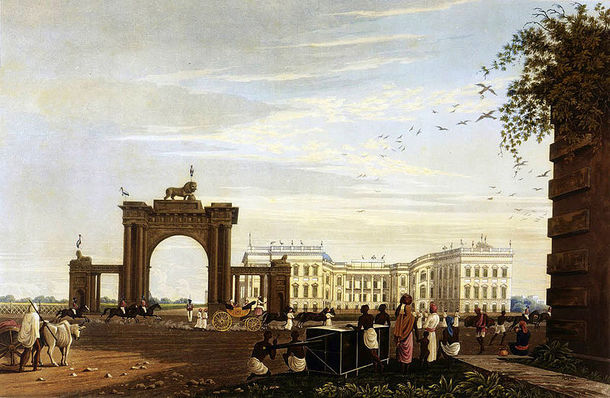
A view of Calcutta in 1819 by R Havell,
Jr. based on James Baillie Fraser. image via Wikipedia
Online Books by James Baillie Fraser @Online Books <http://onlinebooks.library.upenn.edu/webbin/book/lookupname?key=Fraser%2C%20James%20Baillie%2C%201783-1856> が、E-text 情報豊富です。Open Library には2作品しかない <http://openlibrary.org/authors/OL4414971A/James_B._Fraser>。
[Review of The Highland Smugglers] (Southern Literary Messenger, April 1835)
The Highland Smugglers. By the author of Adventures of a Kussilbush [sic → Kuzzilbash], &c. 3 vols. Carey, Hart and Co. This book is very much praised and we think justly. It is full of exquisite descriptions of that region of romance the Scottish Highlands, and has a manner of its own. [Southern Literary Messenger, April 1835: 459]
The Highland Smugglers. By the Author of "Adventures of a Kuzzilbash," "Persian Adventurer," &c. In Three Volumes. Philadelphia: E. L. Carey & A. Hart; Baltimore: Carey, Hart & Co., 1835. e-text @Internet Archive [University of Illinois, Urbana-Champaign] Vol. 1: <http://www.archive.org/stream/highlandsmuggler01fra#page/n9/mode/2up>; Vol. 2: <http://www.archive.org/stream/highlandsmuggler02fra#page/n3/mode/2up>; Vol. 3: <http://www.archive.org/stream/highlandsmuggler03fra#page/n3/mode/2up>
lllllllllllllllllllllllllllllllllllllllllllllllllllllllllllllllllllllllllllllllllllllllllllllllllllllllllllllllllllllllllllllllllllllllllllllllllllllllllllllllllllllllllllllllllllllllllllllllll
ポーが書評した本 (23) ロックハートの『ウァレリウス』 (1821; 1835) Books Reviewed by Poe (23): _Valerius_ by John G. Lockhart (1821; 1835) [ポーの書評 Poe's Book Reviews]
続いて、ポーの最初期の批評(と想定されている文章)の中から、順番でいうと、雑誌紹介2篇に続く『サミュエル・ドル―伝』のつぎの『ナポレオン伝』のつぎの『万国著名裁判』のつぎの『ノー・フィクション――最近の興味深い事実に基づいた物語』 のつぎの『万国著名女性回顧録』のつぎの『感化力――道徳物語』のつぎの『英国海賊、追剥、盗賊伝』のつぎの『詩人の告白』のつぎの『花言葉』のつぎの『実践的教育』のつぎの『ハイランドの密輸人』のつぎの記事(『サザン・リテラリー・メッセンジャー』誌1835年4月号 "Critical Notices" 459ページ)。
John G. Lockhart. Valerius. New York: Harper & Brothers, 1835.
ジョン・G・ロックハート著 『ウァレリウス』 ニューヨーク: ハーパー、1835年
ロックハート John G.[ibson] Lockhart, 1794-1854は、エディンバラの『ブラックウッド』誌で活躍した作家で、Quarterly Review の編集者でもあり、ポーにはなじみの名前。History of Napoleon (1829)を書いているので、「ポーが書評した本 (13) 『皇帝ナポレオンの生涯』 第1巻 (1835) Books
Reviewed by Poe (13): _The Life of the Emperor Napoleon_ by H. Lee
(1835)」で(ポーも言及している関係もあり)言及しました。
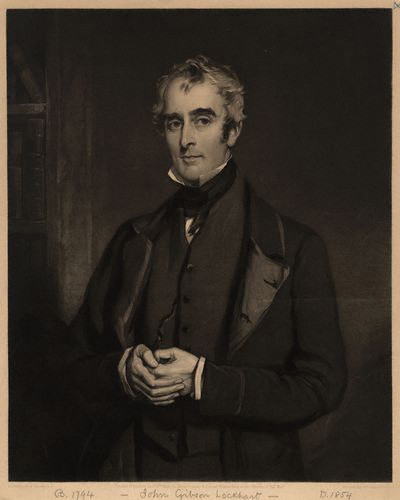
John Gibson Lockhart, image via Wikipedia <http://en.wikipedia.org/wiki/John_Gibson_Lockhart>
ロックハートは歴史ロマンスを広めたことで知られるウォルター・スコットの娘と結婚し、『スコット伝』をあらわしたことでも有名ですが、それが出るのは1830年代後半のことです。
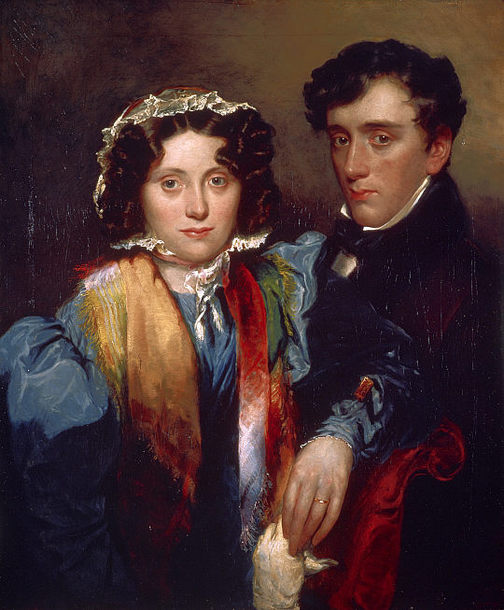
Robert Scott Lauder (1803-1869), Mr. and Mrs. John Gibson Lockhart
(c1838; National Galleries of Scotland). Oil on canvas; 76.8 x 64.8 cm. image via Wikipedia
[Review of Valerius] (Southern Literary Messenger, April 1835)
Mr. Lockhart's excellent novel Valerius, is republished by the Harpers. The scene is in the time of Trajan, and the subject is managed in that masterly style which we look for in Lockhart. We have heard objections urged to the antique nature of his tale―ill-mannered sneers, and by men who should know better, at travelling back to Roman history for interest which could as well be found at home. Procul―O procul este profani! Valerius is a book to live. [Southern Literary Messenger, April 1835: 459]
ラテン語 Procul―O procul este profani! は、ウェルギリウス Virgil の『アイニーアス』Aenead の第6巻257行にある詩句みたい。"Be far (off), O be gone far, you unitiated." みたいな感じ。「遠く離れていろ、参入せざる者たち〔卑俗な者たち〕よ」。
物語は、父親がローマ人で母親がブリトン人である息子が語り手になっているみたい(読んじゃおらんです)。ウァレリウスは何人もいるけれど、1世紀の詩人の Gaius Valerius Flaccus らしい。
1835年のハーパー社版は2巻本で出ていました。――
John G. Lockhart. Valerius: A Roman Story. New York: Harper & Brothers, 1835. 2 vols. e-text @Internet Archive [New York Public Library; Google] Vol. 1: <http://www.archive.org/stream/valeriusaromans00lockgoog#page/n12/mode/2up>
[John G. Lockhart] Valerius; A Roman Story. Edinburgh: William Blackwood, 1821. e-text@ Internet Archive [University of Illinois, Urbana-Champaign] Vol. 1: <http://www.archive.org/stream/valeriusromansto01lock#page/n5/mode/2up>; Vol. 2: <http://www.archive.org/stream/valeriusromansto02lock#page/n1/mode/2up>; Vol. 3: <http://www.archive.org/stream/valeriusromansto03lock#page/n5/mode/2up>.
lllllllllllllllllllllllllllllllllllllllllllllllllllllllllllllllllllllllllllllllllllllllllllllllllllllllllllllllllllllllllllllllllllllllllllllllllllllllllllllllllllllllllllllllllllllllllllllllll
ポーが書評した本 (24) デイヴィー・クロケットの『北へ東へカーネル・クロケットの旅の記』 (1835) Books Reviewed by Poe (24): _An Account of Col. Crockett's Tour to the North and Down East_ by Himself [ポーの書評 Poe's Book Reviews]
続いて、ポーの最初期の批評(と想定されている文章)の中から、順番でいうと、雑誌紹介2篇に続く『サミュエル・ドル―伝』のつぎの『ナポレオン伝』のつぎの『万国著名裁判』のつぎの『ノー・フィクション――最近の興味深い事実に基づいた物語』 のつぎの『万国著名女性回顧録』のつぎの『感化力――道徳物語』のつぎの『英国海賊、追剥、盗賊伝』のつぎの『詩人の告白』のつぎの『花言葉』のつぎの『実践的教育』のつぎの『ハイランドの密輸人』のつぎの『ウァレリウス』のつぎの記事(『サザン・リテラリー・メッセンジャー』誌1835年4月号 "Critical Notices" 459ページ)。
David Crockett. An Account of Col. Crockett's Tour to the North and Down East, written by himself. Philadelphia: Carey, Hart and Co., 1835.
デイヴィッド・クロケット著 『北へ東へカーネル・クロケットの旅の記』 フィラデルフィア: ケアリー・アンド・ハート、1835年
デイヴィッド(「デイヴィー」)・クロケット David ["Davy"] Crockett, 1786-1836 はテネシー出身の軍人・政治家で、「アライグマの皮を着た国会議員」の異名をとって、下院議員を1820年代から1835年まで勤めているけれど、いわゆる frontiersman として、辺境(フロンティア)のほら話や tall tales や自慢話 brag で有名であり、アラモ砦の防衛で敗れて戦死して伝説的な英雄となったひと。Alamo については、先の記事「ポーが書評した本
(4) 『テキサスの歴史』 (1836) Books Reviewed by Poe (4): _The History of Texas_
by David E. Edward」で記したように、1836年春のことです。
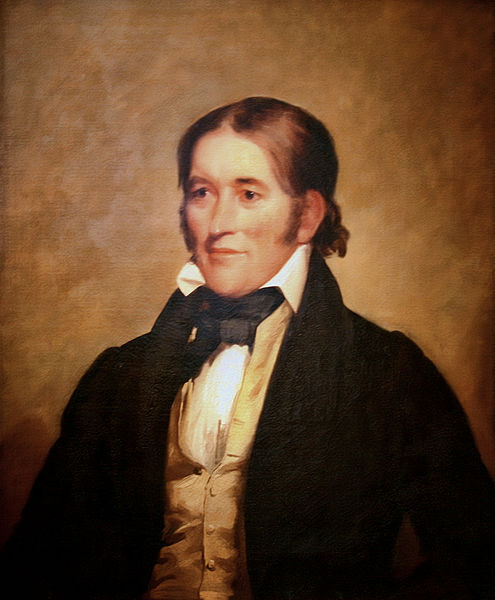
David Crockett (1834), by Chester Harding. Oil on canvas 76.2 x 63.5cm
image via Wikipedia <http://en.wikipedia.org/wiki/Davy_Crockett>
クロケットは下院議員時代にサム・ヒューストンと知り合っていて、テキサス独立に賛同したのでした。1835年3月で下院議員を(落選により)退いていますので、ちょうどその時期です。この本の前に、1833年には自伝を出版して有名人となっており、ポーの揶揄した調子の短評は、下卑た言葉遣いはもうたくさん、という感じです。
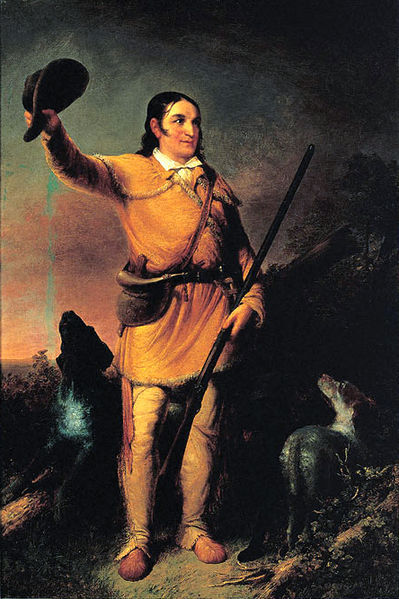
David Crockett, by John Gadsby Chapman. Oil on canvas; 76.8 x 64.8 cm. image via Wikipedia.
Source: Art Collection, Harry Ransom Humanities Research Center, The University
of Texas at Austin. <http://www.cah.utexas.edu/exhibits/Pena/images/DCrockett_Large.jpg>
[Review - An Account of Col. Crockett's Tour to the North and Down East] (Southern Literary Messenger, April 1835)
An Account of Col. Crockett's Tour to the North and Down East, written by himself. Carey, Hart and Co. We see no reason why Col. Crockett should not be permitted to expose himself if he pleases, and to be as much laughed at as he thinks proper―but works of this kind have had their day, and have fortunately lost their attractions. We think this work especially censurable for the frequent vulgarity of its language. [Southern Literary Messenger, April 1835: 459]
[David Crockett] An Account of Col. Crockett's Tour to the North and Down East, in the Year of Our Lord One Thousand Eight Hundred and Thirty-Four. His Object Being to Examine the Grand Manufacturing Establishments of the Country; and Also to Find Out the Condition of Its Literature and Morals, the Extent of Its Commerce and the Practical Operation of "The Experiment." Written by himself. Philadelphia: E. L. Carey and A. Hart, 1835. E-text @Internet Archive: The Library of Congress; Sloan Foundation <http://www.archive.org/stream/accountofcolcroc00cro#page/n5/mode/2up>; <http://www.archive.org/stream/accountofcolcroc00crock#page/n5/mode/2up>
lllllllllllllllllllllllllllllllllllllllllllllllllllllllllllllllllllllllllllllllllllllllllllllllllllllllllllllllllllllllllllllllllllllllllllllllllllllllllllllllllllllllllllllllllllllllllllllllll
ポーが書評した本 (25) スザンナ・ウォーフィールドの『イロラー・デ・コーシー』 (1835) Books Reviewed by Poe (25): _Illorar de Courcy_ by Susanna Warfield [ポーの書評 Poe's Book Reviews]
続いて、ポーの最初期の批評(と想定されている文章)の中から、順番でいうと、雑誌紹介2篇に続く『サミュエル・ドル―伝』のつぎの『ナポレオン伝』のつぎの『万国著名裁判』のつぎの『ノー・フィクション――最近の興味深い事実に基づいた物語』 のつぎの『万国著名女性回顧録』のつぎの『感化力――道徳物語』のつぎの『英国海賊、追剥、盗賊伝』のつぎの『詩人の告白』のつぎの『花言葉』のつぎの『実践的教育』のつぎの『ハイランドの密輸人』のつぎの『ウァレリウス』 のつぎの『北へ東へカーネル・クロケットの旅の記』のつぎの記事(『サザン・リテラリー・メッセンジャー』誌1835年4月号 "Critical Notices" 459ページ)。
[Susanna Warfield]. Illorar de Courcy: An Auto-biographical Novel. By Josiah Templeton, Esq. [pseud.] 2 vols. Baltimore, William and Joseph Neal, 1835.
〔スザンナ・ウォーフィールド著〕 『イロラー・デ・コーシー――自伝的小説』 ジョサイア・テンプルトン著 ボルティモア: ウィリアム・アンド・ジョーゼフ・ニール、1835年
スザンナ・ウォーフィールド Susanna Warfield, 1797-1890は、メリーランド州のひとのようですが、くわしいことはわかりません。E-text も今のところ見つかりません。タイトルの読みもぜんぜんわかりませんw。筆名のジョサイアは男の名前です。自伝的小説と副題にあるのだけれど、そのへん(ジェンダー)の仕掛けなりリクツなりもわかりません。
ポーの書評――
Illoraz [sic → Illorar] de Courcy, an auto-biographical novel, by Josiah Templeton, Esq, 2 vols. Baltimore, William and Joseph Neal. We have looked at this book attentively―for we confess it was impossible to read it. A glance over one or two pages will be sufficient to convince any reasonable person that it is a mere jumble of absurdities. The gentleman should not have thrust his name (if it be not a nom de guerre,) into the title page. [Southern Literary Messenger, April 1835, 459]
(我々はこの本をしげしげと眺めた――というのは、告白するが、読むこと不可能だったからである。一、二ページ見れば、理性的なひとに得心されるのは、これが不条理の寄せ集めにすぎないということだ。紳士は彼の名を(もしも筆名でなかったら、のはなしだが)タイトルページに記すべきではなかった。)
『サザン・リテラリー・メッセンジャー』誌の本文では "Illoraz" と誤植があり、第1巻の索引では "Illoray" と誤記されています。
![090329[SusannaWarfield].jpg](https://occultamerica2.c.blog.ss-blog.jp/_images/blog/_73b/occultamerica2/m_0903295BSusannaWarfield5D.jpg)
Susanna Warfield, 1797-1890
image via The Historical Society of Carroll County, MD <http://hscc.carr.org/index.htm>
1820年代か30年代のものと思われる肖像を掲げている記事は、 "Warfield Once
Well-known"
Carroll County Times article for 29 March 2009. By Mary
Ann Ashcraft です。<http://hscc.carr.org/research/yesteryears/cct2009/090329.htm>
紙の辞書だと、 American Women Writers: A Critical Reference Guide, from Colonial Times to the Present 2nd ed. (St. James Press, 1999) にSusanna Warfield の記事があるらしいが未確認。
///////////////////////////////////////////////////
Susanna Warfield's Grave @ Find A Grave <http://www.findagrave.com/cgi-bin/fg.cgi?page=gr&GRid=39538588> 〔diana さんによる写真〕
"Susanna Warfield" Search by Catalyst @ Johns Hopkins University Libraries <https://catalyst.library.jhu.edu/?q=%22Warfield%2C+Susanna%2C+1797-1890%22&search_field=author> 〔日記が残っているらしい〕
ポーが書評した本 (26) チャールズ・ホフマンの『西部の一冬』 (1835) Books Reviewed by Poe (26): _A Winter in the West_ by a New-Yorker [Charles Fenno Hoffman] [ポーの書評 Poe's Book Reviews]
続いて、ポーの最初期の批評(と想定されている文章)の中から、順番でいうと、雑誌紹介2篇に続く『サミュエル・ドル―伝』のつぎの『ナポレオン伝』のつぎの『万国著名裁判』のつぎの『ノー・フィクション――最近の興味深い事実に基づいた物語』 のつぎの『万国著名女性回顧録』のつぎの『感化力――道徳物語』のつぎの『英国海賊、追剥、盗賊伝』のつぎの『詩人の告白』のつぎの『花言葉』のつぎの『実践的教育』のつぎの『ハイランドの密輸人』のつぎの『ウァレリウス』 のつぎの『北へ東へカーネル・クロケットの旅の記』のつぎの『イロラー・デ・コーシー』のつぎの記事(『サザン・リテラリー・メッセンジャー』誌1835年4月号 "Critical Notices" 459ページ)。
[Charles Fenno Hoffman]. A Winter in the West. By a New-Yorker. 2 vols. New York: Harper and Brothers, 1835.
〔チャールズ・フェンノ・ホフマン著〕 『西部の冬』 「或るニューヨーカー」著 ニューヨーク: ハーパー&ブラザーズ、1835年
チャールズ・フェンノ・ホフマン Charles Fenno Hoffman, 1806-84 は、ニューヨーク州の検事総長を勤めたJosiah Ogden Hoffmanの息子で、母親も政治家の家系で、要するに名家の都会っ子なのだけれど、12歳のときにボートの事故で脚を失ない、義足となりました。ニューヨーク大、コロンビア大を出て法曹界に入るが、法律の仕事は少ししかせず、詩を書き、やがて1833年Knickerbocker Magazineを創刊し、編集者・詩人・小説家としてニューヨーク市の文壇・ジャーナリズムで活躍するようになりました。アーヴィングやクーパーやブライアントらの作家がかかわる『ニッカーボッカー・マガジン』の編集に携わったのは創刊号からの3号のみで、Lewis Gaylord Clark (1808-73) に編集を譲りますけど、そのクラークというのは後年1840年代にポーの文学的仇敵のひとりとなります。ホフマンの詩はグリズウォルドが高く評価するところとなり、そのことに対してポーは連載エッセイ「ニューヨーク市の文人たち The Literati of New York City」(1846) で反発したり、クラークについてもこきおろしたりしますけれど、それはあとのこと。さらにクラークは狂気を発して晩年の30年余を精神病院で暮らしますけれど、それは1849年秋、ポーが亡くなる年のこと。『西部の冬』はクラークが初めて出した匿名の本で、紀行文としてポーはたんたんと短評を書いています。西部と言っても、ミズーリ州セントルイスまでです。インディアンへの言及の多さについての言及と、博愛主義(人道主義)的関心についての関心が、ポーの文章で目を引きます。
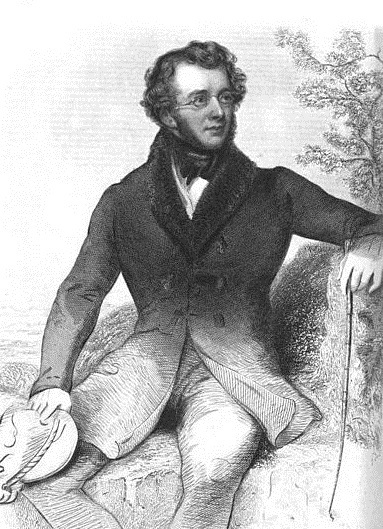
Charles Fenno Hoffman (1834)
image via The American Literary Blog, February 7, 2012 <http://americanliteraryblog.blogspot.jp/2012/02/birth-of-hoffman-takes-away-hope-from.html>
Vol. 1 337pp. <http://www.archive.org/stream/winterinwest01hoff#page/n5/mode/2up>
Vol. 2 346pp. <http://www.archive.org/stream/winterinwestho02hoff#page/n5/mode/2up>
もっとも、匿名といっても、現在のコピーライト記載のページには、Charles F. Hoffman という本名が記されています。そしてポーも書評の最後のところではホフマン氏の月刊誌編集について触れています――
ポーの書評――
A Winter in the West, by a New Yorker. New York, Harper and Brothers. This is a work of great sprightliness, and is replete with instruction and amusement. The writer evinces much talent in producing an interesting narrative of a journey performed in the most unpropitious period of the year. His observations on life in the backwoods are sensible, and we should imagine correct, and his details in relation to Michigan particularly interest us. The adventures of the road are told with great vivacity, and although there are no thrilling scenes or surprising incidents in the book, it cannot be read with indifference. The traits of Indian character scattered through its pages are vivid and striking, and the reflections on the condition of that fast falling race mark the philanthropic spirit of the author. Mr. Hoffman, formerly connected with the New York American, and now Editor of a Monthly Magazine, is the reputed author of this sprited work. [Southern Literary Messenger, April 1835, 459]
ポーが書評した本 (27) ジェレマイア・レノルズの『米国フリゲート艦ポトマック号の航海』 (1835) Books Reviewed by Poe (27): _Voyage of the U.S. Frigate Potomac_ by J. N. Reynolds [ポーの書評 Poe's Book Reviews]
ポーは、いろんな本の書評を書きました。文学書だけじゃなくていろんな本の書評を書き、いろんな本のなかには、自身の作品の「ソース source」になったものも、当然のことながら、あります。
ポーの長篇小説『アーサー・ゴードン・ピム』(1837-38) のソースとして、第16章の本文中でポー自身が言及しているのが Benjamin Morrell, Narrative of Four Voyages to the South Seas and Pacific, 1822-1831 (1832) と J. N. Reynolds, Address on the Subject of a Surveying and Exploring Expedition to the Pacific Ocean and South Seas (1836) ですけれど、レノルズについてはこのパンフレットも含めて3冊の著作の書評を書いており、いずれの本も『ピム』に影響が認められます。
(1) Jeremiah N. Reynolds, Voyage of the Potomac (1835): reviewed in the June 1835 SLM [Southernn Literary Messenger].
(2) Jeremiah N. Reynolds, Report of the Committee on Naval Affairs (1836): reviewed in the August 1836 SLM.
(3) Jeremiah N. Reynolds, Address on the Subject of a Surveying and Exploring Expedition to the Pacific Ocean and South Seas (1836): reviewed in the January 1837 SLM.
で、最初の本の書評については、Collected Works of Edgar Allan Poe の編者のBurton Pollin は Pym を入れた Imaginary Voyages の巻の解説では、1835年の、まだポーが正式に編集者として雇われる前のものだし、ポーのものじゃないんじゃないか、と書いてるのだけれど、そんなこと言ったらこのシリーズの (26)までとりあげてきた1835年4月号のSLM の書評はみな不確かで、ワヤになってしまうのと、あとは学者の研究によって、上記 (1) の本から数百語を超える「引用」が見つかっているので、ポーが読んでいるのは確かです(そしてポーリン自身が同じCollected Works の、のちの、 SLM の書評の巻の編者としては、この書評をポーに帰しています)。なお、モレルやレノルズの本だけが『ピム』の航海関係の資料というわけではなくて、30冊を超える本が資料として挙がってもいます。けど、極地への航海(かつ地球空洞説とのかかわり)というところで、レノルズは大きな源泉なわけです。
ジェレマイア・N・レノルズ(1799-1858) は、アメリカの航海者・探検家・講演家で、南氷洋への国家的探検航海を唱導したひとですが、「シムズの穴」で有名な John Cleves Symmes, Jr. の地球空洞説に共鳴し、一緒に講演ツアーをしたりします。そこんところで、極点で海水は地下に落ち込んでアビシニアあたりで出てくるとか、17世紀のアタナシウス・キルヒャーにつながったり、ポー的には極北=極南=書くことの始源みたいなイメジとつながっていく。ウィキペディアは、いっぽうで、レノルズの、伝説の白鯨についての著作 Mocha Dick (1839) がメルヴィルの『白鯨(モービー・ディック)』に与えた影響を書いているけれど、文化人類学者ミルチャ・エリアーデのことばでいう「中心のシンボリズム」のポーとメルヴィルのふたりの作家が関わっていたことは明らかだと思いますねん。"Rememiah N. Reynolds" @Wikipedia <http://en.wikipedia.org/wiki/Jeremiah_N._Reynolds>
Voyage of the United States Frigate Potomac, Under the Command of Commodore John Downes, during the Circumnavigation of the Globe, in the Years 1831, 1832, 1833, and 1834; Including a Particular Account of the Engamement at Quallah-Battoo, on the Coast of Sumatra; with All the Official Documents Relating to the Same. By J. N. Reynolds. Illustrated by Several Engravings. New-York: Harper and Brothers, 1835. 560pp.
E-text <http://archive.org/stream/voyageunitedsta00reyngoog#page/n4/mode/2up> ……これはunknown library からのE-bookなのだけれど、10倍近くダウンロードのあるOxford大学図書館蔵のもの <http://archive.org/details/voyageunitedsta01reyngoog> は Appendix の図表が空白になっていて(少なくとも Read Onlineでは)、こっちのほうがよいかと。
Voyage of the U. S. Frigate Potomac, under the command of Commodore John Downes, during the circumnavigation of the globe in the years 1831-32-33 and 34: including a particular account of the engamement at Quallah-Battoo, on the Coast of Sumatra. By J. N. Reynolds. This is a thick volume of nearly 600 pages, well printed, upon good paper, with some excellent engravings, and published by the Harpers. Mr. Reynolds, the author, or to speak more correctly, the compiler, will be remembered as the associate of Symmes in his remarkable theory of the earth, and a public defender of that very indefensible subject, upon which he delivered a series of lectures in many of our principal cities. With the exception, however, of seven chapters, the matter forming the work now published is gleaned from the ship's journal, from the private journals of the officers, and from papers furnished by Commodore Downes himself. This fact will speak much for the authenticity of th details, and very valuable information scattered through the book. Mr. R. himself was not with the Potomac during the circumnavigation, having joined her in 1832 at Valparaiso. Our readers are, of course, acquainted with the object of the Potomac's voyage, and with the outrage perpetrated by the Malays on the ship Friendship in 1831, which rendered it an indispensable duty onthe part of our government to demand an indemnity. The result of this demand, and the actionad Quallah-Battoo are graphically sketched by Mr. Reynolds. Every body will be pleased, too, with his description of Canton and of Lima. He writes well, although somewhat too enthusiastically, and his book will gain him reputation as a man of science and accurate observation. It will form a valuable addition to our geographical libraries. Southern Literary Messenger, June 1835: 594-95.
//////////////////////////////////
Daniel J. Tynan, “J. N. Reynold’s Voyage of the Potomac: Another Source for The Narrative of Arthur Gordon Pym,” Poe Studies, December 1971, vol. IV, no. 2, 4:35-37 @Edgar Allan Poe Society <http://www.eapoe.org/pstudies/ps1970/p1971207.htm>
David Standish, Hollow Earth: The Long and Curious History of Imagining Strange Lands, Fantastical Creatures, Advanced Civilizations, and Marvelous Machines Below the Earth's Surface (Da Capo Press, 2007). <http://books.google.com.eg/books?id=0z-jUbHGyzoC&pg=PA101&lpg=PA101&dq=Poe+Voyage+of+Potomac&source=bl&ots=eDCldJCVXv&sig=F7bNNC0QeLultnh-V5ehLEQ5PlI&sa=X&ei=t_41UJyRMe_4mAWxw4HICA&ved=0CCwQ6AEwBg#v=onepage&q=Poe%20Voyage%20of%20Potomac&f=false>
ポーが書評した本 (28) ジェレマイア・レノルズの『海事委員会報告』 (1836) Books Reviewed by Poe (28): _Report of the Committee on Naval Affairs_ by J. N. Reynolds [ポーの書評 Poe's Book Reviews]
Report of the Committee on Naval Affairs, to whom was referred memorials from sundry citizens of Connecticut interested in the whale fishing, praying that an exploring expedition be fitted out to the Pacific Ocean and South Seas. Senate Document No. 262, 24th COngress, 1st session; Vol. 3. 88pp. Washington, D. C., 1836.
ポーの長篇小説『アーサー・ゴードン・ピム』(1837-38) のソースとして、第16章の本文中でポー自身が言及しているのが Benjamin Morrell, Narrative of Four Voyages to the South Seas and Pacific, 1822-1831 (1832) と J. N. Reynolds, Address on the Subject of a Surveying and Exploring Expedition to the Pacific Ocean and South Seas (1836) ですけれど、レノルズについてはこのパンフレットも含めて3冊の著作の書評を書いており、いずれの本も『ピム』に影響が認められます。
(1) Jeremiah N. Reynolds, Voyage of the Potomac (1835): reviewed in the June 1835 SLM [Southernn Literary Messenger].
(2) Jeremiah N. Reynolds, Report of the Committee on Naval Affairs (1836): reviewed in the August 1836 SLM.
(3) Jeremiah N. Reynolds, Address on the Subject of a Surveying and Exploring Expedition to the Pacific Ocean and South Seas (1836): reviewed in the January 1837 SLM.
で、ふたつめの本はInternet Archive に見つかりませんでした。あるのは1817年から1870年代までの "Report of the Committee on Naval Affairs なんたらかんたら" という題の報告書が十数冊。
どうやら議会の報告書みたいなものであって、「本」というのではないみたい。アメリカ議会図書館 Library of Congress を探ると出てくるかもしれない。
いまは、しかし、"South-Sea Expedition" と銘打った長めの書評ですので、そちらの書き取りをメインに。
SOUTH-SEA EXPEDITION.
Report of the Committee on Naval Affairs, to whom was referred memorials from sundry citizens of Connecticut interested in the whale fishing, praying that an exploring expedition be fitted out to the Pacific Ocean and South Seas. March 21, 1836.
That a more accurate, defined, and available knowledge than we at present possess, of the waters, islands, and continental coasts of the great Pacific and Southern Oceans, has long been desirable, no unprejudiced individual conversant with the subject, is likely to deny. A portion of the community unrivalled in activity, enterprise and perseverance, and of paramount importance both in a political and commercial point of view, has long been reaping a rich harvest of individual wealth and national honor in these vast regions. The Pacific may be termed the training ground, the gymnasium of our national navy. The hardihood and daring of that branch of our commercial marine employed in its trade and fisheries, have almost become a proverb. It is in this class we meet with the largest aggregate of that cool self-possession, courage, and enduring fortitude, which have won for us our enviable position among the great maritime powers; and it is fi-om this class we may expect to recruit a considerable proportion of the physical strength and moral intelligence necessary to maintain and improve it. The documentary evidence upon which the report before us is based, forms an appendix to it, and is highly interesting in its character. It awakens our admiration at the energy and industry which have sustained a body of daring men, while pursuing a dangerous and arduous occupation, amid the perils and casualties of an intricate navigation, in seas imperfectly known. It enlists our sympathies in the hardships and difficulties they have combatted, places in strong relief the justice of their claims upon the nation for aid and protection, and shows the expediency of the measure which has at last resulted from their representations. The report itself is clear, manly, decided — the energetic language of men who, having examined the data submitted to them with the consideration the interests it involved seem to require, are anxious to express their sentiments with a force and earnestness suited to their views of the urgent occasion and of the course they recommend.
It is a glorious study to contemplate the progress made by human industry, from stage to stage, when engaged in the prosecution of a laudable object. Little more than a century ago, only the crews of a few miserable open boats, too frail to venture far from land, waged a precarious warfere with the great leviathans of the deep, along the shores of Cape Cod and Nantucket — then occupied, at distant intervals by a few inconsiderable fishing stations. The returns even of these first efforts were lucrative, and more appropriate vessels for the service were fitted out. These extended their cruises northward to Labrador, and southward to the West Indies. At length the adventurers, in vessels of yet greater capacity, strength and durability, crossed die Equator and followed their hardy calling along the Eastern Shore of the Southern Peninsula and on the Western and North Western coast of Africa. The Revolution of course operated as a temporary check to their prosperity, but shordy thereafter these daundess mariners doubled Cape Horn, and launched their daring keels into the comparatively unknown waste beyond, in search of their gigantic prey. Since that fortunate advent, the increase in the shipping, extent, and profits of the fishery, has been unprecedented, and new sources of wealth the importance of which it is at present impossible to estimate, have been opened to us in the same quarter. The trade in skins of the sea-otter and seal, in the fur of land animals on the North West coast, &c. has been extensive in extent and avails. The last mentioned animal, besides the valuable ivory it affords, yields a coarse oil which, in the event of the whale becoming extinct before the perpetual warfare of man, would prove a valuable article of consumption. Of the magnitude of the commercial interest involved in different ways in the Pacific trade, an idea may be gathered in the following extract jfrom the main subject of our review. Let it be borne in mind, that many of the branches of this trade are as yet in their infancy, that the natural resources to which they refer are apparendy almost inexhaustible; and we shall become aware that all which is now in operation, is but as a dim shadow to the mighty results which may be looked for, when this vast field for national enterprise is better known and appreciated.
"No part of the commerce of this country is more important than that carried on in the Pacific Ocean. It is a large in amount. Not less than $12,000,000 are invested in and actively employed by one branch of the whale fishery alone; in the whole trade there is directly and indirectly involved not less than fifty to seventy millions of property. In like manner from 170 to 200,000 tons of our shipping, and from 9 to 12000 of our seamen are employed, amounting to about one-tenth of the whole navigation of the Union. Its results are profitable. It is to a great extent not a mere exchange of commodties, but the creation of wealth by labor from the ocean. The fisheries alone produce at this time an anual income of from five to six millions of dollars; and it is not possible to look at Nantucket, New Bedford, New London, Sag Harbor and a large number of other districts upon our Northern coasts, without the deep conviction that it is an employment alike beneficial to the moral, political, and commercial interests of our fellow-citiziens."
In a letter from Commodore Downes to the Honorable John Reed, which forms part of the supplement to the report, that experienced officer observes ―
"During the circumnavigation of the globe, in which I crossed the equator six times, and varied my course from 40 deg. North to 57 deg. South latitude, I have never found myself beyond the limits of our commercial marine. The accounts given of the dangers and losses to which our ships are exposed by the extension of our trade into seas but little known, so far, in my opinion from being exaggerated, would admit of being placed in bolder relief, and the protection of government employed in stronger terms. I speak from practical knowledge, having myself seen the dangers and painfully felt the want of the very kind of information which our commercial interests so much need, and which, I suppose, would be the object of such an expedition as is now under consideration before the committee of Congress to give. * * * * * * *
The commerce of our country has extended itself to remote parts of the world, is carried on around islands and reefs not laid down in the charts, among even groups of islands from ten to sixty in number, abounding in objects valuable in commerce, but of which nothing is known accurately; no not even the sketch of a harbor has been made, while of such as are inhabited our knowledge is still more imperfect."
In reading this evidence (derived from the personal observation of a judicious and experienced commander) of the vast range of our commerce in the regions alluded to, and of the imminent risks and perils to which those engaged in it are subjected, it cannot but create a feeling of surprise, that a matter of such vital importance as the adoption of means for their relief, should so long have been held in abeyance. A tabular view of the discoveries of our whaling captains in the Pacific and Southern seas, which forms part of another document, seems still further to prove the inaccuracy and almost utter worthlessness of the charts of these waters, now in use.
Enlightened liberality is the truest economy. It would not be difficult to show, that even as a matter of pecuniary policy the efficient measures at length in progress to remedy the evils complained of by this portion of our civil marine, are wise and expedient. But let us take higher ground. They were called for — Firstly: as a matter of public justice. Mr. Reynolds, in his comprehensive and able letter to the chairman of the committee on Naval Affairs, dated 1828, which, with many other conclusive arguments, and fiicts furnished by that gendeman, forms the nudn evidence on which the late committee founded their report — observes, with reference to the Pacific;
"To look after our merchant there — to offer him every possible facility — to open new channels for his enterprise, and to keep up a respectable naval force to protect him — is only paying a debt we owe to the commerce of the country: for millions have flowed into the treasury from this source, before one cent was extended for its protection."
So far, then, we have done little as a nation to fiicilitate, or increase, the operations of our commerce in the quarter indicated; we have left the advenmrous merchant and the hardy fisherman, to fight their way among reefs of dangerous rocks, and through the channels of undescribed Archipelagos, almost without any other guides than their own prudence and sagacity; but we have not hesitated to partake of the firuits of their unassisted toils, to appropriate to ourselves the credit, respect and consideration their enterprise has commanded, and to look to their clasa as the strongest support of that main prop of our national power, — a hardy, effective, and well disciplined national navy.
Secondly. Our pride as a vigorous commercial empire, should stimulate us to become our own pioneers in that vast island-studded ocean, destined, it may be, to become, not only the chief theatre of our traffic, but the arena of our fiiture naval conflicts. Who can say, viewing the present rapid growth of our population, that the Rocky Mountains shall forever constitute the western boundary of our republic, or that it shall not stretch its dominion from sea to sea. This may not be desirable, but signs of the times render it an event by no means without the pale of possibility.
The intercourse carried on between the Pacific islands and the coast of China, is highly profitable, the immense rcttdrns of the whale fishery in the ocean which surrounds those islands and along the continental coasts have been already shown. Our whalers have traversed the wide expanse from Peru and Chili on the west, to the isles of Japan on the east, gathering nadonal reverence as well as mdividual emolument, in their course; and yet until the late appropriation. Congress has never yielded them any pecuniary assistance, leaving their security to the scientific labors of countries far more distant, and infinitely less interested, than our own.
Thirdly. It is our duty, holding as we do a high rank in the scale of nations, to contribute a large share to that aggregate of useful knowledge, which is the common property of all. We have astronomers, mathematicians, geologists, botanists, eminent professors in every branch of physical science — we are unincumbered by the oppression of a national debt, and are free from many other drawbacks which fetter and control the measures of the trans-Atlantic governments. We possess, as a people, the mental elasticity which liberal institutions inspire, and a treasury which can afford to remunerate scientific research. Ought we not, therefore, to be foremost in the race of philanthropic discovery, in every department embraced by this comprehensive term? Our national honor and glory which, be it remembered, are to be "transmitted as well as enjoyed," are involved. In building up the bric of our commercial prosperity, let us not filch the corner stone. Let it not be said of us, in future ages, that we ingloriously availed ourselves of a stock of scientific knowledge, to which we had not contributed our quota — that we shunned as a people to put our shoulder to the wheel — that we reaped where we had never sown. It is not to be controverted that such has been hitherto the case. We have followed in the rear of discovery, when a sense of our moral and polidcal responsibility should have impelled us in its van. Mr. Reynolds, in a letter to which we have already referred, deprecates this servile dependence upon foreign research in the following nervous and emphatic language.
The commercial nations of the earth have done much, and much remains to be accomplished. We stand a solitary instance among those who are considered commercial, as never having put forth a particle of strength or expended a dollar of our money, to add to the accumulated stock of commercial and geographical knowledge, except in partially exploring our own territory.
When our naval commanders and hardy tars have achieved a victory on the deep, they have to seek our harbors, and conduct their prizes into port by tables and charts furnished perhaps by the very people whom they have vanquished.
Is it honorable in the United States to use, forever, the knowledge furnished by others, to teach us how to shun a rock, escape a shoal, or find a harbor; and add nothing to the great mass os information that previous ages and other nations have brought to our hands. * *
The exports, and, more emphatically, the imports of the United States, her receipts and expenditures, are written on every pillar erected by commerce on every sea and in every clime; but the amount of her subscription stock to erect those pillars and for the advancement of knowledge is no where to be found.
* * * * * *
Have we not then reached a degree of mental strength, which will enable us to find our way about the globe without leading-strings? Are we forever to take the highway others have laid out for us, and fixed with mile-stones and guide boards? No: a time of enterprise and adventure must be at hand, it is already here; and its march is onward, as certain as a star approaches its zenith.
It is delightful to find that such independent statements and opinions as the above, have been approved, and acted upon by Congress, and that our President with a wisdom and promptitude which do him honor, is superintending and fecifitating the execution of legislative design. We extract the following announcement from the Washington Globe.
Surveying and Exploring Expedition to the Pacific Ocean and South Seas. — We learn that the President has given orders to have the exploring vessels fitted out, with the least possible delay. The appropriation made by Congress was ample to ensure all the great objects contemplated by the expedition, and the Executive is determined that nothing shall be wanting to render the expedition in every respect worthy the character and great commercial resources of the country.
The frigate Macedonian, now undergoing thorough repairs at Norfolk, two brigs of two hundred tons each, one or more tenders, and a store ship of competent dimensions, is, we understand, the force agreed upon, and to be put in a state of immediate preparation.
Captain Thomas A. C. Jones, an officer possessing many high qualities for such a service, has been appointed to the command; and officers for the other vessels will be immediately selected.
The Macedonian has been chosen instead of a sloop of war, on account of the increased accomodations she will afford the scientific corps, a department the President has determined shall be complete in its organization, including the ablest men that can be procured, so that nothing within the whole range of every department of natural history and philosophy shall be omitted. Not only on this account has the frigate been selected, but also for the purpose of a more extended protection of our whalemen and traders; and to impress on the minds of the natives a just conception of our character, power, and policy. The frequent disturbances and massacres committed on our seamen by the natives inhabiting the islands in those distant seas, make this measure the dictate of humanity.
We understand also, that to J. N. Reynolds, Esq. the President has given the appointment of Corresponding Secretary to the expedition. Between this gentlaman and Captain Jones there is the most friendly feeling and harmony of action. The cordiality they entertain for each other, we trust will be felt by all, whether citizen or officer, who shall be so fortunate as to be connected with the expedition.
Thus it will be seen, steps are being taken to remove the reproach of our country alluded to by Mr. Reynolds, and that that gendeman has been appointed to the highest civil situation in the expedition; a station which we know him to be exceedingly well qualified to fill. The liberality of the appropriation for the enterprise, the strong interest taken by our energetic chief magistrate in its organization, the experience and intelligence of the distinguished commander at its head, all promise well for its successful termination. Our most cordial good wishes will accompany the adventure, and we trust that it will prove the germ of a spirit of scientific ambition, which, fostered by legislative patronage and protection, should build up for us a name in nautical discovery commensurate with our moral, political, and commercial position among the nations of the earth. Southern Literary Messenger, August 1835: 587-89.
//////////////////////////////////////
ハリソン版のE-text by Google @Internet Archive―― <http://www23.us.archive.org/stream/completeworksed00harrgoog#page/n108/mode/2up> 〔かなり長い引用がたくさん省略されていたことがわかります〕
ポーが書評した本 (29) ジェレマイア・レノルズの『太平洋ならびに南海への調査探検航海についての弁論』 (1836) Books Reviewed by Poe (29): _Address on the Subject of a Surveying and Exploring Expedition to the Pacific Ocean and South Seas_ by J. Reynolds [ポーの書評 Poe's Book Reviews]
同じことを繰り返して書きます。ポーの長篇小説『アーサー・ゴードン・ピム』(1837-38) のソースとして、第16章の本文中でポー自身が言及しているのが Benjamin Morrell, Narrative of Four Voyages to the South Seas and Pacific, 1822-1831 (1832) と J. N. Reynolds, Address on the Subject of a Surveying and Exploring Expedition to the Pacific Ocean and South Seas (1836) ですけれど、レノルズについてはこのパンフレットも含めて3冊の著作の書評を書いており、いずれの本も『ピム』に影響が認められます。
(1) Jeremiah N. Reynolds, Voyage of the Potomac (1835): reviewed in the June 1835 SLM [Southernn Literary Messenger].
(2) Jeremiah N. Reynolds, Report of the Committee on Naval Affairs (1836): reviewed in the August 1836 SLM.
(3) Jeremiah N. Reynolds, Address on the Subject of a Surveying and Exploring Expedition to the Pacific Ocean and South Seas (1836): reviewed in the January 1837 SLM.
で、3つめなのですけれど、1837年正月の3日に、ポーは『サザン・リテラリー・メッセンジャー』社主のホワイトから、解雇されます。ですので、編集者として同誌にポーが文章を書いた、最後の号が1837年1月号なのでした。
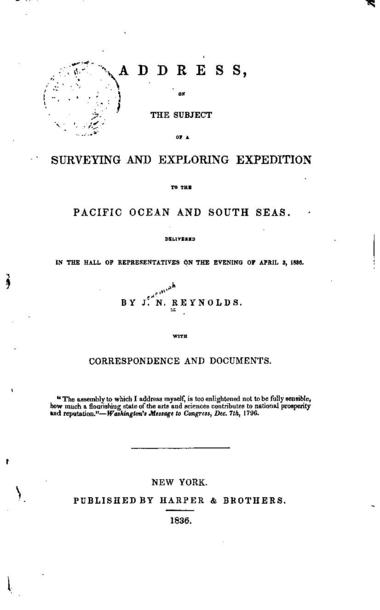
Address, on the Subject of a Surveying and Exploring Expedition to the
Pacific Ocean and South Seas. Delivered in the Hall of Representatives
on the Evening of April 3, 1836. By J. N. Reynolds. With Correspondence
and Documents. New York: Harper and Brothers, 1836. 300pp.
E-text <http://archive.org/stream/addressonsubjec00reyngoog#page/n9/mode/2up> 〔ただし、偶数ページにいくらか脱落あり〕
ポーの書評は前年のと同様に "South-Sea Expedition" を見出しとしています。これは、南洋(南太平洋)探検旅行がトピカルな話題であったことを示しています。
Address on the subject of a Surveying and Exploring Expedition to the Pacific Ocean and South Seas. Delivered in the Hall of Representatives on the Evening of April3, 1836. By J. N. Reynolds. With Correspondence and Documents. New York: Published by Harper and Brothers.
In the Messenger for last August we spoke briefly on this head. What we then said was embraced in the form of a Critical Notice on the "Report (March 21, 1836,) of the Committee on Naval Affairs to whom was referred Memorials from sundry citizens of Connecticut interested in the Whale Fishery, praying that an exploring expedition be fitted in the Whale Fishery, praying that an exploring expedition be fitted out to the Pacific Ocean and South Seas." It is now well known to the community that this expedition, the design of which has been for ten years in agitation, has been authorized by Congress; sanctioned, and liberally provided for, by the Executive; and will almost immediately set sail. The public mind is at length thoroughly alive on the subject, and in touching upon it now, we merely propose to give, if possible, such an outline of the history, object, and nature of the projet, as may induce the reader to examine, for himself, the volume whose title forms the heading, of this article. Therein Mr. Reynolds has embodied a precise and full account of the whole matter, with every necessary document and detail.
In beginning we must necessarily begin with Mr. Reynolds. He is the originator, the persevering and indomitable advocate, the life, the soul of the design. Whatever, of glory at least, accrue therefore from the expedition, this gentleman, whatever post he may occupy in it, or whether none, will be fairly entitled to the lion's share, and will as certainly receive it. He is a native of Ohio, where his family are highly respectable, and where he was educated and studied the law. He is known, by all who know him at all, as a man of the loftiest principles and of unblemished character. "His writings," to use the language of Mr. Hamer on the floor of the House of Representatives, "have attracted the attention of men of letters; and literary societies and institutions have conferred upon him some of the highest honors they had to bestow." For ourselves, we have frequently borne testimony to his various merits as a gentleman, a writer and a scholar.
It is now many years since Mr. R's attention was first attracted to the great national advantages derivable from an exploring expedition to the South Sea and the Pacific; time has only rendered the expediency of the undertaking more obvious. To-day the argument for the design is briefly as follows. No part of the whole commerce of our country is of more importance than that carried on in the regions in question. At the lowest estimate a capital of twelve millions of dollars is actively employed by one branch of the whale fishery alone; and there is involved in the whole business, directly and collaterally, not less probably than seventy millions of property. About one tenth of the entire navigation of the United States is engaged in this service ― from 9 to 12 000 seamen, and from 170 to 200,000 tons of shipping. The results of the fishery are in the highest degree profitable ― it being not a mere interchange of commodities, but, in a great measure, the creation of wealth, by labor, from the ocean. It produces to the United States an annual income of from five to six millions of dollars. It is a most valuable nursery for our seamen, rearing up a race of hardy and adventurous men, eminently fit for the purposes of the navy. This fishery then is of importance ― its range may be extended ― at all events its interests should be protected. The scene of its operations, however, is less known and more full of peril than any other portion of the globe visited by our ships. It abounds in islands, reefs and shoals unmarked upon any chart ― prudence requires that the location of these should be exactly defined. The savages in these regions have frequently evinced a murderous hostility ― they should be conciliated or intimidated. The whale, and more especially all furred animals, are becoming scarce before the perpetual warfare of man ― new generations will be found in the south, and the nation first to discover them will reap nearly all the rich benefits of the discovery. Our trade in ivory, in sandal-wood, in biche le-mer, in feathers, in quills, in seal-oil, in porpoise oil, and in seal elephant oil, may here be profitably extended. Various other sources of commerce will be met with, and may be almost exclusively appropriated. The crews, or at least some portion of the crews, of many of our vessels known to be wrecked in this vicinity, may be rescued from a life of slavery and despair. Moreover, we are degraded by the continual use of foreign charts. In matters of mere nautical or geographical science, our government has been hitherto supine, and it is due to the national character that in these respects something should be done. We have now a chance of redeeming ourselves in the Southern Sea. Here is a wide field open and nearly untouched ― " a theatre peculiarly our own from position and the course of human events." Individual enterprize, even acting especially for the purpose, cannot be expected to accomplish all that should be done-dread of forfeiting insurance will prevent our whale-ships from effecting any thing of importance incidentally-and our national vessels on general service have elsewhere far more than they can efficiently attend to. In the meantime our condition is prosperous beyond example, our treasury is overflowing, a special national expedition could accomplish every thing desired, the expense of it will be comparatively little, the whole scientific world approve it, the people demand it and thus there is a multiplicity of good reasons why it should immediately be set on foot.
Ten years ago these reasons were still in force, and Mr. Reynolds lost no opportunity of pressing them upon public attention. By a series of indefatigable exertions he at length succeeded in fully interesting the country in his scheme. Commodore Downes and Captain Jones, with nearly all the officers of our navy, gave it their unqualified approbation. Popular assemblages in all quarters spoke in its favor. Many of our commercial towns and cities petitioned for it. It was urged in reports from the Navy and Messages from the Executive Department. The East India Marine Society of Massachusetts, all of whose members by the constitution must have personally doubled either Cape Horn or the Cape of Good Hope, were induced to get up a memorial in its behalf; and the legislatures of eight different states-of New York New Jersey, Rhode Island, Pennsylvania, Maryland, Ohio, North Carolina, and we are happy to add, of Virginia, recommended the enterprize in the most earnest manner to the favorable consideration of Congress.
As early as January 1828, Mr. Reynolds submitted to the Speaker of the House of Representatives, a letter upon the subject accompanied with memorials and petitions. Among these memorials was one from Albany, dated October 19, 1827, and signed by his Excellency Nathaniel Pitcher, lieutenant governor of the State of New York; the honorable Erastus Root, speaker of the house of delegates; and by nearly all the members of the legislature. Another, dated Charleston, south Carolina, May 31, 1827, was signed by the mayor of the city; the president of the chamber of commerce; and by a very long list of respectable citizens. A third was dated Raleigh, North Carolina, December 24th, 1827, and contained the signatures of his Excellency James Iredell, the governor, the honorable B. Yancey, speaker of the senate; the honorable James Little, speaker of the house of commons; and a large proportion of each branch of the legislature. A fourth was dated Richmond, Virginia, January 1st, 1828, and was sustained by a great number of the most influential inhabitants of Virginia; by the honorable Linn Banks, speaker of the house of delegates; and by a majority of the delegates themselves. For reference, a majority of the delegates themselves. For reference, Mr. Reynolds handed in at the same period a preamble and resolution of the Maryland Assembly, approving in the strongest terms the contemplated expedition. The matter was thus for the first time, we believe, brought into a shape for the official cognizance of the government.
The letter was referred to the committee on Naval Affairs. That body made application to Mr. R. for a statement, in writing, of his views. It was desired that this statement should contain his reasons for general results, a deference to authorities for specific facts, as well as a tabular statement of the results and facts, so far as they might be susceptible of being stated in such form. To this application Mr. R. sent a brief yet comprehensive reply, embracing a view of the nature and extent of our whale-fisheries, and the several trades in the seal otter skin, the fur seal skin, the ivory sea elephant tooth, land animal fur, sandal wood, and feathers, together with observations on the general benefits resulting from these branches of commerce, independent of the wealth they bring into the country.
The Secretary of the Navy was also called upon for his opinion. In his reply he strongly commended the design, using the main arguments we have already adduced. He stated, moreover, that Mr. Reynolds' estimate of the value of our commerce in the regions in question, had been much augmented, in the view of the department, through the reports, made under his orders, of our naval officers, who had commanded vessels of war in the Pacific.
Nothing was done, however, until the next session of Congress. A bill was then proposed but did not become a law. In consequence of its failure, the House of Representatives passed a resolution requesting the President of the United States "to send one of our small vessels to the Pacific Ocean and South Seas to examine the coast, islands harbors, shoals and reefs in those seas, and to ascertain their true situation and description" and authorizing the use of such facilities as could be afforded by the Navy Department without further appropriation during the year. There was, however, no suitable national vessel in condition, at the time, to be despatched upon the service. The Peacock, therefore, was placed at the New York Navy yard, to be repaired and fitted out, and an additional vessel of two hundred tons engaged, upon the agreement that Congress should be recommended to authorized the purchase ― the vessel to be returned if the recommendation were not approved. These arrangements the Secretary of the Navy communicated to Congress in November, 1828. A bill now passed one house, but was finally lost.
Mr. Reynolds did not cease from his exertions. The subject of the expedition was not effectually resumed, however, until January 1835. Mr. Dickerson then transmitted to Congress, a Report by Mr. R., dated September 24th, 1828. This report had been drawn up at the request of Mr. Southard, in June, when that gentleman was called upon by the Committee on Naval Affairs. It occupies about forty pages of the volume now before us, and speaks plainly of the assiduity and energy of the reporter. He repaired, immediately, upon Mr. Southard's expressing a wish to that effect, to New London, Stonington, New-Bedford, Edgartown, Nantucket, and other places where information might be found of the pacific Ocean and South Seas. His desire was to avail himself of personal data, afforded by the owners and masters of the whaling vessels sailing from those ports. His main objects of inquiry were the navigation, geography and topography presented by the whole range of the seas form the Pacific to the Indian and Chinese oceans, with the extent and nature of our commerce and fisheries in those quarters. He found that "all he had before heard was confirmed by a long train of witnesses, and that every calculation he had previously made fall very far short of the truth." In February 1835, the Committee on Commerce strongly recommended Mr. Reynolds' design, and in March 1836 the committee on naval Affairs made a similar report. On May the 10th, a bill authorizing the expedition, but leaving nearly every thing to the discretion of the Chief magistrate, finally passed both houses of congress. The friends of the bill could have desired nothing better. The President gave orders forthwith to have the exploring vessels fitted out with the least possible delay. The frigate Macedonian, now nearly ready, will be the main vessel in the enterprize. Captain Thomas Ap C. Jones will command her. She has been chosen instead of a sloop of war, on account of the increased accommodations she will afford the scientific corps, which is to be complete in its organization, including the ablest men to be procured. She will give too, extended protection to our commerce in the seas to be visited, and her imposing appearance will avail more to overawe the savages, and impress upon them a just idea of our power, than even a much larger real force distributed among vessels of less magnitude. She will be accompanied by two brigs of two hundred tons each, two tenders, and a store-ship.
In regard to the time of sailing there can be but little choice ― the vessels will put to sea as soon as every thing is ready. The scientific corps, we believe, is not yet entirely filled up; nor can it be well organized until the preparations in the frigate are completed. Many gentlemen of high celebrity, however, have already offered their services. In the meantime, Lieutenant Wilkes of the Navy has been despatched to England and France, for the purpose of purchasing such instruments for the use of the expeditions, as cannot readily be procured in this country. In all quarters he has met with the most gratifying reception, and with ardent wishes for the success of the contemplated enterprize.
Mr. Reynolds has received the highest civil post in the expedition ― that of corresponding secretary. It is presumed that he will draw up the narrative of the voyage, (to be published under patronage of government) embodying, possibly, and arranging in the same book, the several reports or journals of the scientific corps. How admirable well he is qualified for this task, no person can know better than ourselves. His energy, his love of polite literature, his many and various attainments, and above all, his ardent and honorable enthusiasm, point him out as the man of all men for the execution of the task. We look forward to this finale ― to the published record of the expedition ― with an intensity of eager expectation, which we cannot think we have ever experienced before.
And it has been said that envy and ill ― will have been already doing their work--that the motives and character of Mr. Reynolds have been assailed. This is a matter which we fully believe. It is perfectly in unison with the history of all similar enterprizes, and of the vigorous minds which have conceived, advocated, and matured them. It is hardly necessary, however, to say a word upon this topic. We will not insult Mr. Reynolds with a defense. Gentlemen have impugned his motives ― have these gentlemen ever seen him or conversed with him half an hour?
We close this notice by subjoining two interesting extracts from the eloquent Address now before us:
It is the opinion of some, as we are aware, that matters of this description are best left to individual enterprize, and that the interference of government is unnecessary. Such persons do not reflect, as they ought, that all measures of public utility which from any cause cannot be accomplished by individuals, become the legitimate objects of public care, in reference to which the government is bound to employ the means put into its hands for the general good. Indeed, while there remains a spot of untrodden earth accessible to man, no enlightened, and especially commercial and free people, should withhold its contributions for exploring it, wherever that spot may be found on the earth, from the equator to the poles!
Have we not shown that this expedition is called for by our extensive interests in those seas ― interests which, from small beginnings, have increased astonishingly in the lapse of half a century, and which are every day augmenting and diffusing their beneficial results throughout the country? May we not venture on still higher grounds? Had we no commerce to be benefited, would it not still be honorable; still worthy the patronage of Congress; still the best possible employment of a portion of our naval force?
Have we not shown, that this expedition is called for by national dignity and honor? Have we not shown, that our commanding position and rank among the commercial nations of the earth, makes it only equitable that we should take our share in exploring and surveying new islands, remote seas, and, as yet, unknown territory? Who so uninformed as to assert that all this has been done? Who so presumptuous as to set limits to knowledge, which, by a wise law of Providence, can never cease? As long as there is mind to act upon matter, the realms of science must be enlarged; and nature and her laws be better understood, and more understandingly applied to the great purpose of life. If the nation were oppressed with debt, it might, indeed, it would, still be our duty to do something, though the fact, perhaps, would operate as a reason for a delay of action. But have we any thing of this kind to allege, when the country is prosperous, without a parallel in the annals of nations?
Is not every department of industry in a state of improvement? Not only two, but a hundred blades of grass grow where one grew when we became a nation; and our manufactures have increased, not less to astonish the philosopher and patriot, than to benefit the nation; and have not agriculture and manufactures, wrought up by a capital of intelligence and enterprize, given a direct impulse to our commerce, a consequence to our navy? And if so, do they not impose new duties on every statesman?
Again, have we not shown that this expedition is demanded by public opinion, expressed in almost every form? Have not societies for the collection and diffusion of knowledge, towns and legislatures, and the commanding voice of public opinion, as seen through the public press, sanctioned and called for the enterprize? Granting, as all must, there is no dissenting voice upon the subject, that all are anxious that our country should do something for the great good of the human family, is not now the time, while the treasury, like the Nile in fruitful seasons, is overflowing its banks? If this question is settled, and I believe it is, the next is, what shall be the character of the expedition? The answer is in the minds of all--one worthy of the nation? And what would be worthy of the nation? Certainly nothing on a scaled that has been attempted by any other country. If true to our national character, to the spirit of the age we live in, the first expedition sent out by this great republic must not fall short in any department ― from a defective organization, or from adopting too closely the efforts of other nations as models for our own. We do, we always have done things best, when we do them in our own way. The spirit evinced by others is worthy of all imitation; but not their equipments. We must look at those seas; what we have there; what requires to be done; ― and then apply the requisite means to accomplish the ends. It would not only be inglorious simply to follow a track pointed out by others, but it could never content a people proud of their fame and rejoicing in their strength! They would hurl to everlasting infamy the imbecile voyagers, who had only coasted where others had piloted. No; nothing but a goodly addition to the stock of present knowledge, would answer for those most moderate in their expectations.
But, not only to correct the errors of former navigators, and to enlarge and correct the charts of every portion of sea and land that the expedition might visit, and other duties to which we have alluded; but also to collect, preserve, and arrange every thing valuable in the whole range of natural history, from the minute madrapore [madrepore イシサンゴ?]to the huge spermaceti, and accurately to describe that which cannot be preserved; to secure whatever may be hoped for in natural philosophy to examine vegetation, from the hundred mosses of the rocks, throughout all the classes of shrub, flower and tree, up to the monarch of the forest; to study man in his physical and mental powers, in his manners, habits, disposition, and social and political relations; and above all, in the philosophy of his language, in order to trace his origin from the early families of the old world; to examine the phenomena of winds and tides, of heat and cold, of light and darkness; to add geological to other surveys, when it can be done in safety; to examine the nature of soils ― if not to see if they can be planted with success ― yet to see if they contain any thing which may be transplanted with utility to our own country; in fine, there should be science enough to bear upon every thing that may present itself for investigation.
How, it may be asked, is all this to be effected? By an enlightened body of naval officers, joining harmoniously with a corps of scientific men, imbued with the love of science, and sufficiently learned to pursue with success the branches to which they should be designated. This body of men should be carefully selected, and made sufficiently numerous to secure the great objects of the expedition. These lights of science, and the naval officers, so far from interfering with each other's fame, would, like stars in the milky-way, shed a lustre on each other, and all on their country!
These men may be obtained, if sufficient encouragement is offered as an inducement. They should be well paid. Scholars of sufficient attainments to qualify them for such stations, do not hang loosely upon society; they must have fixed upon their professions or business in life: and what they are called to do, must be from the efforts of ripe minds; not the experiments of youthful ones to prepare them for usefulness. If we have been a by-word and a reproach among nations for pitiful remuneration of intellectual labors, this expedition will afford an excellent opportunity of wiping it away. The stimulus of fame is not a sufficient movie for a scientific man to leave his family and friends, and all the charms and duties of social life, for years together; but it must be united to the recompense of pecuniary reward, to call forth all the powers of an opulent mind. The price you pay will, in some measure, show your appreciation of such pursuits. We have no stars and ribands, no hereditary titles, to reward our men of genius for adding to the knowledge or to the comfort of mankind and to the honor of the nation. We boast of our men of science, our philosophers, and artists, when they have paid the last tribute to envy by their death. When mouldering in their graves, they enjoy a reputation, which envy and malice and detraction may hawk at and tear but cannot harm! Let us be more just, and stamp the value we set on science in a noble appreciation of it, and by the price we are willing to pay.
It has been justly remarked, that those who enlighten their country by their talents, strengthen it by their philosophy, enrich it by their science, and adorn it by their genius, are Atlases, who support the name and dignity of their nation, and transmit it unimpaired to future generations. Their noblest part lives and is active, when they are no more; and their names and contributions to knowledge, are legacies bequeathed to the whole world! To those who shall thus labor to enrich our country, if we would be just, we must be liberal, by giving to themselves and families an honorable support while engaged in these arduous duties!
If the objects of the expedition are noble, if the inducements to undertake it are of a high order ― and we believe there can be no difference of opinion on this point ― most assuredly the means to accomplish them should be adequate. No narrow views, no scanty arrangements, should enter the minds of those who have the planning and directing of the enterprize. At such a time, and in such a cause, liberality is economy and parsimony is extravagance.
Again, if the object of the expedition were simply to attain a high southern latitude, then two small brigs or barks would be quite sufficient. If to visit a few points among the islands, a sloop of war might answer the purpose. But are these the objects? We apprehend they only form a part. From the west coast of South America, running down the longitude among the islands on both sides of the equator, though more especially south, to the very shores of Asia, is the field that lies open before us, independent of the higher latitudes south, of which we shall speak in the conclusion of our remarks. Reflecting on the picture we have sketched of our interests in that immense region, all must admit, that the armament of the expedition should be sufficient to protect our flag; to succor the unfortunate of every nation, who may be found on desolate islands, or among hordes of savages; a power that would be sufficient by the majesty of its appearance, to awe into respect and obedience the fierce and turbulent, and to give facilities to all engaged in the great purposes of the voyage. The amount of this power is a question upon which there can be but little difference of opinion, among those thoroughly acquainted with the subject; the best informed are unanimous in their opinion, that there should be a well-appointed frigate, and five other vessels ―twice that number would find enough, and more than they could do. The frigate would form the nucleus, round which the smaller vessels should perform the labors to which you will find pointed out in all the memorials and reports hitherto made on this subject, and which may be found among the printed documents on your tables. Some might say, and we have heard such things said, that this equipment would savor of individual pride in the commander; but they forget that the calculations of the wise are generally secured by the strength of their measure. The voyage is long ― the resting places uncertain, which makes the employment of a storeship, also a matter of prudence and economy. It would not do to be anxious about food, while the expeditions was in the search of an extended harvest of knowledge.
The expectations of the people of the United States from such an expedition, most unquestionably would be great. From their education and past exertions through all the history of our national growth, the people are prepared to expect that every public functionary should discharge his duty to the utmost extent of his physical and mental powers. They will not be satisfied with any thing short of all that men can perform. The appalling weight of responsibility of those who serve their country in such an expedition, is strikingly illustrated by the instructions given to Lewis and Clarke, in 1803, by President Jefferson. The extended views and mental grasp of this distinguished philosopher no one will question, nor can any one believe that he would be unnecessarily minute.
The sage, who had conceived and matured the plan of the expedition to the far west, in his instructions to its commander under his won signature, has left us a model worthy of all imitation. With the slight variations growing out of time and place, how applicable would those instructions be for the guidance of the enterprize we have at present in view? The doubts of some politicians, that this government has no power to encourage scientific inquiry, most assuredly had no place in the mind of that great apostle of liberty, father of democracy and
strict constructionist! We claim no wider range than he has sanctions; including as he does, animate and inanimate nature, the heavens above and all on the earth beneath! The character and value of that paper are not sufficiently known. Among all the records of his genius, his patriotism, and his learning, to be found in our public archives, this paper deserves to take, and in time will take rank, second only to the Declaration of our Independence. The first, embodied the spirit of our free institutions, and self-government; the latter, sanctioned those liberal pursuits, without a just appreciation of which our institutions cannot be preserved, or if they can, would be scarcely worth preserving. [pp. 69-76]
To complete its efficiency, individuals from other walks of life, we repeat, should be appointed to participate in its labors. No professional pique, no petty jealousies, should be allowed to defeat this object. The enterprize should be national in its object, and sustained by the national means, ― belongs of right to no individual, or set of individuals, but to the country and the whole country; and he who does not view it in this light, or could not enter it with this spirit, would not be very likely to meet the public expectations were he entrusted with the entire control.
To indulge in jealousies, or feel undue solicitude about the division of honors before they are won, is the appropriate employment of carpet heroes, in whatever walk of life they may be found. The qualifications of such would fit them better to thread the mazes of the dance, or to shine in the saloon, than to venture upon an enterprize requiring men, in the most emphatic sense of the term.
There are, we know, many, very many, ardent spirits in our navy ― many whom we hold among the most valued of our friends ― who are tired of inglorious ease, and who would seize the opportunity thus presented to them with avidity, and enter with delight upon this new path to fame.
Our seamen are hardy and adventurous, especially those who are engaged in the seal trade and the whale fisheries; and innured as they are to the perils of navigation, are inferior to none on earth for such a service. Indeed, the enterprize, courage, and perseverance of American seamen are, if not unrivaled, at least unsurpassed. What man can do, they have always felt ready to attempt, ― what man has done, it is their character to feel able to do, ― whether it be to grapple with an enemy on the deep, or to pursue their gigantic game under the burning line, with an intelligence and ardor that insure success, or pushing their adventurous barks into the high southern latitudes, to circle the globe within the Antarctic circle, and attain the Pole itself; yea, to cast anchor on that point where all the meridians terminate, where our eagle and star-spangled banner may be unfurled and planted, and left to wave on the axis of the earth itself! ― where, amid the novelty, grandeur and sublimity of the scene, the vessels, instead of sweeping a vast circuit by the diurnal movements of the earth, would simply turn round once in twenty-four hours!
We shall not discuss, at present, the probability of this result, though its possibility might be easily demonstrated. If this should be realized, where is the individual who does not feel that such an achievement would add new lustre to the annals of American philosophy, and crown with a new and imperishable wreath the nautical glories of our country! [pp. 98-99]
青字の長い引用は、SLM の誌面では、小さな活字になっています。
ポーが書評した本 (30) ウィリアム・ハウイットの『名所探訪記』 (1841) Books Reviewed by Poe (30): _Visits to Remarkable Places_ by W. Howitt [ポーの書評 Poe's Book Reviews]
Visits to Remarkable Places; Old Halls, Battle-Fields, and Scenes
Illustrative
of Striking Passages in [English] History and Poetry; Chiefly in the Counties of
Durham
and Northumberland. By William Howitt. Second
Series.
Philadelphia: Carey & Hart. [18411842]
Graham's Magazine, March 1841 April, 1842 [on the rear of the external wrappers of the magazine]
「W・ハウイット 『旧館、戦場、その他、歴史と詩のエピソードをあらわす場景の名所探訪記』 第2集 フィラデルフィア、ケアリー・アンド・ハート」
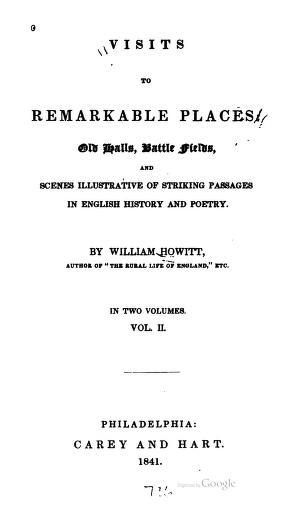
Google E-Book <http://archive.org/stream/visitstoremarka05howigoog#page/n6/mode/2up>
『グレアムズ・マガジン』誌の1841年3月号に掲載された、旅行ガイド本の書評。に続いて1842年4月号に第2集のの短評が書かれていました。
著者のウィリアム・ハウイット William Howitt
はイギリスの著述家で、この本の扱う名所旧跡はもっぱら英国であり、本も1839年末執筆の序文とともにロンドンで出ていて、前年の1840年には Second Edition が出ています。――
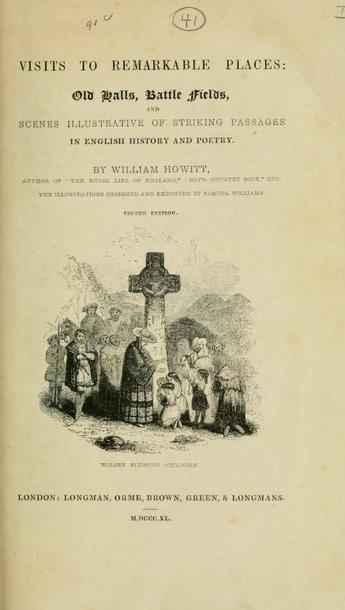
E-text <http://archive.org/stream/visitstoremarka01howi#page/n5/mode/2up>
Visits to Remarkable Places: Old Halls, Battle Fields, and Scens Illustrative of Striking Passages in English History and Poetry. By William Howitt, Author of "The Rural Life of England," "Boy's Country Book," etc. The Illustrations Designed and Executed by Samuel Williams. Second Edition. Londono: Longman, Orme, Brown, Green, & Longmans. M.DCCC.XL. [viii + 528pp.]
もっとも、"Second Edition" は巻末の広告では、 "new edition" と呼ばれ、また、広告は1841年2月を示しています。――
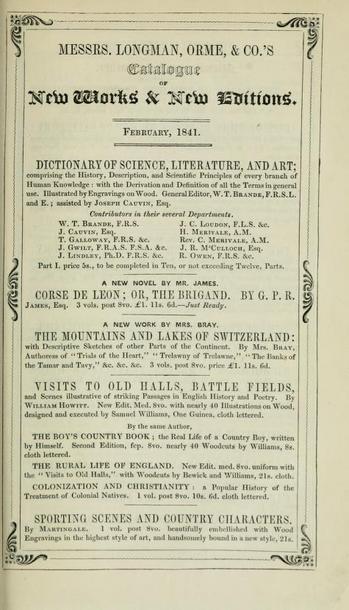
(p. 529) <http://archive.org/stream/visitstoremarka01howi#page/528/mode/2up>
ポーの短評は、雑誌の紙表紙のカバー内側に、追加の notice として書かれているもので、ポー学者のマボットなんかも見落としてきた、とボルティモアのポー協会のホームページの注にはあります。―― <http://www.eapoe.org/works/criticsm/gm42041.htm>
とても短いものです。――
Visits to Remarkable Places; Old Halls, Battle-Fields, and Scenes Illustrative
of Striking Passages in History and Poetry; Chiefly in the Counties of Durham
and Northumberland. By William Howitt, Author of the “Rural Life of England,”
“Book of the Seasons,” “Student Life of German,” &c. Second Series.
Philadelphia: Carey & Hart.
The first series of this beautiful work
will be remembered by all. The present is, perhaps, even more delightful. Few
writers are more truly popular, and at the same time, more truly deserving
popularity than Howitt. His sketches are replete with the interest of
observation and profound sensibility to beauty both in Nature and Art. The
external appearance of this volume nearly resembles that of “The Student Life of
Germany,” and does honor to the liberality of Messieurs Carey & Hart. [Fourth of the five short notices inside the rear of the external paper wrappers]
アレコレ眺めていると、いろいろと謎があります。
第一に、『グレアムズ・マガジン』に記されているタイトル。"English" が落ちているのはご愛嬌として、著者を修飾している、"By William Howitt, Author of the “Rural Life of England,” “Book of the Seasons,” “Student Life of German,” &c." のところに挙がっている著作は、アメリカ版の表紙には付いていませんし、イギリス版とも違います。
第二に、研究者に見落とされてきた、とポー協会は注釈しているけれど、100年前のハリソン版10巻の文章はなんなのでしょう。
第三に、第二巻と第二集はどういう関係にあるのか。実はイギリスでは第二集が 1842年には出ており、それは Second Edition とは異なる内容です。
・・・・・・ということで、迷宮のような問題に入り込んでしまい、解決後に別の記事で扱います。
2012年9月5日追記。朱字で訂正を入れました。第2集の短評が1842年4月号に書かれ、第1集は前年の1841年3月号に書かれておったのでした。短評でポーが扱ったのは次の本です。――
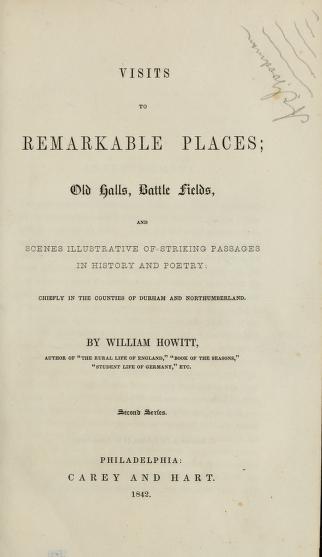
<http://archive.org/stream/visitstoremarkab02howi#page/n5/mode/2up>
Visits to Remarkable Places: Old Halls, Battle Fields, and Scenes Illustrative of Striking Passages in English History and Poetry, Chiefly in the Counties of Durham and Northumberland. By William Howitt, Author of "The Rural Life of England," "Book of the Seasons," "Student Life of Germany," etc. Second Series. Philadelphia: Carey and Hart. 1842. [xi + 467pp.]




